




things as
Because things aren’t always as they seem
One must comprehend the whole picture before arriving at conclusions.
Tiger’s ABL appraisers and data analysts are never satisfied taking just one look at a problem. They take a second, third, and fourthuntil they see the true picture. Boots-on-the-ground due diligence. Proprietary TigerInsightstm Analytics. $5b/year liquidation expertise.
Take a closer look.

Welcome to the TSL factoring/supply chain finance issue! In recent years, global supply chains have faced unprecedented challenges, from pandemic-induced disruptions to geopolitical tensions and economic uncertainties. As businesses grapple with these issues, factoring has emerged as a critical solution for managing cash flow and mitigating risks. In our feature story on page 14, SFNet members provide insight into how factoring has evolved, its impact on the supply chain, and realworld examples of its effectiveness.
To delve more deeply into the expanding supply chain finance universe, SFNet is hosting its first Supply Chain Finance Conference on December 3 in New York City. This full-day event will provide invaluable knowledge gathering and networking opportunities, featuring a diverse range of sessions designed to deepen your understanding of the evolving supply chain finance ecosystem. Details can be found on page 22, including conference insights from the co-chairs of the planning committee, Bob Grbic of White Oak Commercial Finance and Paul Schuldiner of Rosenthal & Rosenthal.
On page 28, The Secured Finance Professional’s Guide to Managing Accounts Receivable Financing Workouts, Joseph Heim of Culain Capital outlines how secured finance professionals can navigate the complexities of workouts when providing accounts receivable financing facilities.
On the cover of this issue, we feature two people integral to the success of our association: SFNet’s co-general counsels Bobbi Acord Noland and Jon Helfat. Both have contributed significantly to the industry, and their collaboration offers a unique perspective on the challenges and opportunities facing secured lenders today. TSL’s editor-in-chief sat down with them to discuss their careers, their roles at SFNet, and the future of the industry, on page 8.
In Navigating Cybersecurity Challenges in the Lending Industry on page 26, attorneys from Mandelbaum Barrett PC explore how the rising cyber threats and stringent regulations facing lenders and the essential strategies for developing robust cybersecurity programs, safeguarding data, and maintaining regulatory compliance in a rapidly changing landscape.
Cross-border secured financing present a complex challenge, where choice of law and conflict of law rules create an intricate maze. Unlike straightforward domestic transactions under the Uniform Commercial Code, international financing demands careful scrutiny of diverse jurisdictions’ laws. On page 18, David Morse of Otterbourg P.C. explores the practical
steps lenders must take to secure rights over assets like inventory and receivables across multiple countries to ensure the lender has the benefit of such security.
As we head into fall, be sure to register for SFNet’s 80th Annual Convention at the Marriott Marquis Houston, held from November 13-15. This premier event isn’t just another industry gathering; it’s where the leaders, innovators, and dealmakers converge to shape the future of secured finance. This year’s program is all about accelerating growth, including an engaging and interactive workshop where we will collectively explore how our community can proactively respond to our changing environment. Attendees will gain unparalleled insights, forge valuable connections, and be at the forefront of the latest industry trends and opportunities. I look forward to seeing you there!
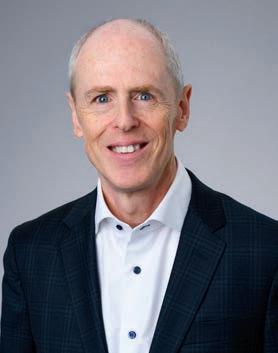
RICHARD D. GUMBRECHT SFNet Chief Executive Officer
AN INTERVIEW WITH SFNET’S CO-GENERAL COUNSELS P8 TABLE OF CONTENTS. SEPT/OCT 2024 VOL. 80 ISSUE 5
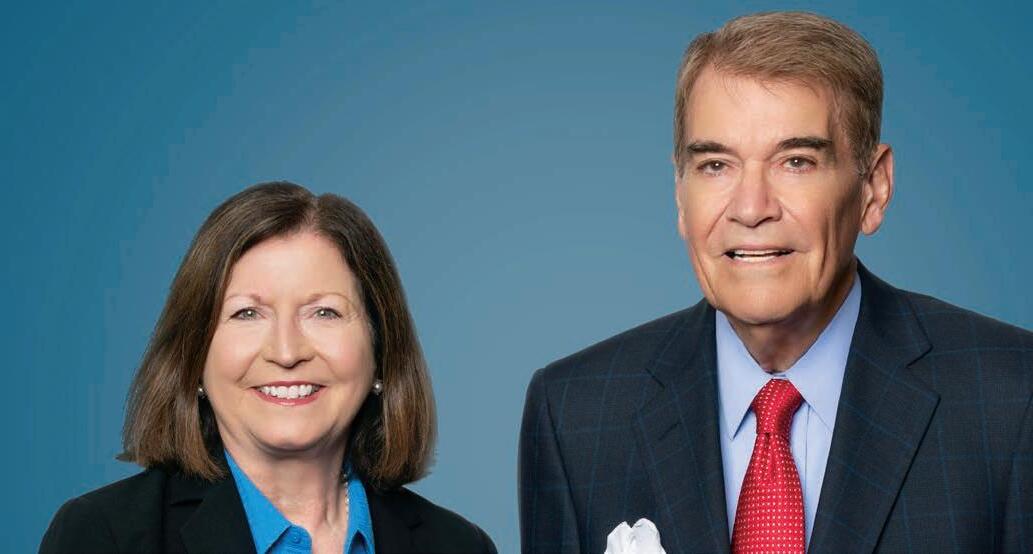
An Interview with SFNet’s Co-General Counsels: Bobbi Acord Noland and Jonathan Helfat
In the ever-evolving landscape of secured finance, few roles are as pivotal as that of general counsel for a major industry trade association. For Bobbi Acord Noland and Jon Helfat, this role at the Secured Finance Network (SFNet) has been a journey of leadership, challenge, and growth. 8 BY
MICHELE OCEJO
FEATURE STORIES
As businesses grapple with supply chain disruptions, factoring has emerged as a critical solution for managing cash flow and mitigating risks. SFNet members provide insight into how factoring has evolved, its impact on the supply chain, and real-world examples of its effectiveness. 14 BY
MICHELE OCEJO

Part 1: Taking Security in Cross-Border Lending: (How Do You Know) The Steps to Take or Whose Law Is It Anyway?
David Morse of Otterbourg P.C. explores the practical steps lenders must take to secure rights over assets like inventory and receivables across multiple countries to ensure the lender has the benefit of such security. 18 BY
DAVID MORSE, ESQ.
This full-day event will provide invaluable knowledge and networking opportunities, featuring a diverse range of sessions designed to deepen your understanding of the supply chain finance ecosystem. 22 BY
MICHELE OCEJO
Bobrow discusses the highlights of his tenure as president of SFNet, challenges and opportunities faced and advice for incoming SFNet President, Rob Meyers. 24 BY MICHELE OCEJO
In this third annual section, SFNet members are featured, highlighting their company culture, benefits, DEI initiatives, internships and fun perks. 32
Young professionals share words of encouragement for college/grad students to consider a career in the vibrant secured finance industry. 68 BY EILEEN WUBBE
THREATS AND RISK INSIGHTS
Attorneys from Mandelbaum Barrett PC explore rising cyber threats. 26 BY RICHARD I. SIMON, ESQUIRE, AND STEVEN W. TEPPLER, ESQUIRE
Joseph Heim of Culain Capital outlines how secured finance professionals can navigate the complexities of workouts when providing accounts receivable financing facilities. 28 BY
JOSEPH HEIM
We speak with Ian Fredericks, chief executive officer, Hilco ConsumerRetail, and chair of SFNet’s Technology and Innovation Task Force, a subcommittee of SFNet’s Data Committee. 71 BY EILEEN WUBBE
SFNET MEMBER PROFILE
Edge Capital Lending, f/k/a Context Business Lending, has come a long way since its inception in 2013. 74 BY EILEEN WUBBE
In this column, SFNet focuses on members’ hobbies outside of work. In this issue we explore book clubs. 76 BY EILEEN WUBBE
TOUCHING BASE 1
NETWORK NOTES 4
The Secured Finance Network is the trade group for the asset-based lending arms of domestic and foreign commercial banks, small and large independent finance companies, floor plan financing organizations, factoring organizations and financing subsidiaries of major industrial corporations.
The objectives of the Association are to provide, through discussion and publication, a forum for the consideration of inter- and intra-industry ideas and opportunities; to make available current information on legislation and court decisions relating to asset-based financial services; to improve legal and operational procedures employed by the industry; to furnish to the general public information on the function and significance of the industry in the credit structure of the country; to encourage the Association’s members, and their personnel, in the performance of their social and community responsibilities; and to promote, through education, the sound development of asset-based financial services.
The opinions and views expressed by The Secured Lender’s contributing editors and authors are their own and do not necessarily express the magazine’s viewpoint or position. Reprinting of any material is prohibited without the express written permission of The Secured Lender
The Secured Lender, magazine of the asset-based financial services industry (ISSN 0888-255X), is published 8 times per year (Jan/Feb, March, April, May, June, September, October and November) $65 per year non-member rate, and $105 for two years non-member rate. SFNet members are complimentary.
Secured Finance Network
370 Seventh Avenue, Suite 1801, New York, NY 10001. (212) 792 -9390 Email: tsl@sfnet.com www.SFNet.com
Periodicals postage paid at New York, NY, and at additional mailing offices. Postmaster, send address changes to The Secured Lender, c/o Secured Finance Network, 370 Seventh Avenue, Suite 1801, New York, NY 10001
Editorial Staff
Michele Ocejo
Editor-in-Chief and SFNet Communications Director mocejo@sfnet.com
Eileen Wubbe Senior Editor ewubbe@sfnet.com
Aydan Savaser Art Director asavaser@sfnet.com
Advertising Contact: James Kravitz
Business Development Director T: 646-839-6080 jkravitz@sfnet.com
In Memoriam: Debra Putzer
SFNet is saddened to inform you that Debra Putzer of CIT passed away on July 2. Debbie was an active member of SFNet and will be greatly missed. Putzer was born on March 2, 1961. She grew up in Bayside, NY with her parents Clara and Alan Putzer and her brother, Howard. She attended Albany University where she obtained her Bachelor’s Degree in Business. While at Albany, when she wasn’t studying, she drove an ambulance. After graduating she went on to earn her CPA. Debbie worked at CIT Financial for many years. In her spare time, she loved to travel and often would plan numerous vacations. She visited many areas of the world including Alaska, Michu Pichu, Costa Rica, Israel, and Europe. One of her favorite things to do was to cruise. She also was an avid golfer and won quite a few tournaments with her golf groups. Debbie enjoyed spending time with her nephews, Carter and Arthur, and was a loyal aunt who flew to North Carolina to share in birthdays and other celebrations. She donated time to soup kitchens, and completing taxes returns for those in need at nearby houses of worship. She was loved by family and many friends. She will be sorely missed by all who knew her.
A funeral service for Debra was held July 8, 2024, at Parkside Memorial Chapels, 114-03 Queens Blvd. in Forest Hills, NY.
Barbara Stam Appointed as CEO of ABN AMRO
Barbara Stam’s background, experience, and career achievements mean she is wellpositioned to lead ABF into the future. She brings a broad background in commercial, risk management, restructuring, and credit domain-related leadership positions. She has over 20 years of experience at ABN AMRO and Fortis, predominantly with its Corporate Banking clients, both within the Netherlands and internationally.
Assembled Brands Capital Welcomes Ann Parker as Senior Credit Risk Associate
In her new capacity, Ann Parker will play a crucial role in enhancing the company’s credit risk assessment strategies and supporting its expansion within the CPG sector. Parker brings extensive experience in inventory
appraisal and project management, having previously served as senior appraiser and project manager at Tiger Capital Group.
Blank Rome Welcomes Leading Private Equity and M&A Team in New York
Blank Rome LLP is pleased to announce that Jeffrey “Jeff” A. Fickes and Christopher “Chris” J. DePizzo have joined the firm’s New York office as partners in the Corporate, M&A, and Securities group. They bring extensive experience representing businesses and investors throughout the United States and internationally in private equity (“PE”) transactions, mergers and acquisitions (“M&A”), and other corporate matters.
Peter Williams to Join Cahill Gordon & Reindel LLP’s New York Office as a Partner and Co-Head of its Private Credit Practice
Peter Williams joined from KKR Credit where he was a managing director on the Credit Strategies team and formerly the U.S. head of Structuring. As the U.S. head of Structuring at KKR, Williams focused on structuring private credit transactions and managing documentation and negotiation for KKR Credit’s Private Credit and Strategic Investment Group teams in the U.S.
Cambridge Savings Bank Announces Leadership Changes: Kevin McGuire
Named Chief Operating Officer, Christopher Johnson as Chief Information Officer
Cambridge Savings Bank (CSB) announced that Kevin McGuire, previously the chief information officer (CIO), has been appointed as the new chief operating officer (COO), effective immediately. McGuire succeeds Michael Gilles, who is retiring after a distinguished career with the bank.
With McGuire now acting as COO, Christopher Johnson has been appointed to the role of CIO. He will report directly to McGuire, ensuring alignment with CSB’s vision and key initiatives.
Citizens Builds on Growing Presence in California with Hiring of Middle Market
Regional Executive
Michael Walker has joined the company to lead its team serving middle market
companies across the state. Walker, based in San Francisco, has more than 45 years of banking experience and most recently served as head of City National Bank’s national commercial banking enterprise. Prior to that, he was U.S. Bank’s market president of the Northern California region for 10 years.
Davis Polk Elects Six New Partners
Davis Polk has announced that Aaron Ferner, Zachary Frimet, David Kennedy, Brett McMahon, Michael Senders, and Aliza Slansky have been elected partners of the firm, effective July 1, 2024.
Davis Polk Welcomes Sponsor Finance
Partner Nick Caro
Nick Caro has joined the firm as a partner in the Sponsor Finance practice in New York. Caro’s practice focuses on leveraged finance, including broadly syndicated facilities, private credit, PIK preferred equity and other private capital solutions; recurring revenue loans; venture capital and early-stage company debt facilities; and complex debt restructurings and liability management transactions.
eCapital Announces Peter Dahill as New CFO, Cris Neely Transitions to Strategic Advisor Position
This strategic move demonstrates eCapital’s commitment to bolstering its executive team and advancing its fintech roadmap while ensuring seamless leadership succession. Assuming the CFO position at eCapital, Peter Dahill will leverage his extensive experience as executive vice president of finance at the company.
Cris Neely, who served as eCapital’s CFO for over a decade, will now take on the role of strategic advisor to the CEO. In this capacity, he will advise on major initiatives supporting the CEO and the company’s long-term objectives.
Edge Capital Lending LLC Appoints Dmitri Beregovski as Chief Financial Officer and Welcomes Two New Collateral Analysts
Dmitri Beregovski joins Edge with over 15 years of experience in financial leadership, including roles in financial planning and analysis, treasury, and investor relations. Most recently Beregovski served as senior director
of Treasury and Investor Relations at Direct ChassisLink, Inc. (DCLI) in Charlotte, NC.
Additionally, Edge is excited to welcome Mantika Gardner and Marilyn Barnes as collateral analysts to support the company’s expanding portfolio. Both are experienced account managers with extensive asset-based lending expertise.
Eisner Advisory Group LLC Admits 23 new Partners, Including Three in the Iselin, NJ Office
The three new partners in Iselin are Michele Epstein, a partner in the Audit Services Group who has more than 12 years of experience; Michael Grant, a partner in the Tax Services Group who has more than 15 years of experience and Kevin Nardone, a partner in the Private Client Services Group who has more than 15 years of experience
The other new partners will work in offices ranging from New York and Philadelphia to Minneapolis to Baton Rouge, Louisiana, and beyond.
First Citizens Bank Names Eugene Weissberger to Sponsor Finance
First Citizens Bank announced that Eugene Weissberger was appointed as a managing director in the Sponsor Finance group, where he will be focused on supporting financial sponsors and family offices in the Midwest and on the West Coast.
Emily Reeves Joins Franklin Capital as Vice President of Sales
In this role, Emily Reeves will be responsible for growing Franklin’s sales team and driving the growth of the company’s sales efforts. With over five years of experience in sales initiatives to help businesses secure working capital, Emily brings a wealth of commercial finance knowledge and expertise to Franklin Capital.
Getzler Henrich Formalizes Analytics, Artificial Intelligence, and Advanced Technologies Services and Names Michael Osment Practice Leader
In recognition of both its comprehensive advanced technology services and the depth of knowledge and expertise of managing
director Michael Osment, Getzler Henrich & Associates LLC, formalized its Analytics, Artificial Intelligence, and Advanced Technologies Services and named Michael Osment its practice leader. Osment is recognized for his thought leadership and innovation across technology, business, and industry domains.
As part of this expansion, Elijah Kaplan, managing director, Lending, and Steve Sanders, managing director, Equipment Finance, Eastern Region, have recently joined Gordon Brothers to continue to support the firm’s growth.
Kaplan works closely with the North America Lending team to accelerate the firm’s lending initiatives, taking on all aspects of deals from origination to execution to provide holistic solutions to lenders and borrowers in the middle market.
Sanders complements the firm’s existing Equipment Finance team covering the eastern sales region and provides equipment financing to market segments under served by traditional banks and lenders.
Greenberg Traurig, LLP Taps Prominent M&A Lawyer Chadi Salloum to Lead UAE Corporate Practice
Chadi Salloum will practice in the firm’s UAE and Kingdom of Saudi Arabia (KSA) locations. With 25 years of legal experience, including 14 based in the Middle East, Salloum represents sovereign entities, financial institutions, multinational companies, family businesses, investors, and sponsors operating in the UAE, KSA, and greater Middle East in a wide range of transactions.
Greenberg Traurig Expands Corporate Practice with Two Leading Investment Firm General Counsel in New York
Global law firm Greenberg Traurig, LLP has expanded its Corporate, Investment Management, and Financial Regulatory & Compliance practices with the addition of two in-house counsels from major investment firms. Shareholder Patrick J. Kassen joins from Blackstone.
Shareholder Matthew J. Bromberg joins from Exchange Traded Managers Group, LLC.
Hilco Global Announces Ian Fredericks as New CEO of Hilco Consumer - Retail
Ian Fredericks will oversee Hilco Merchant Resources, Hilco Wholesale Solutions, Restore Capital, Hilco Fixed Asset Recovery, and Restore4Retail. He succeeds Ben Nortman, who will now focus exclusively on his new role as co-chief commercial officer, a position announced earlier this year. (See interview with Ian on page 71.)
Mitsubishi HC Capital America Boosts Commercial Finance Credit Team with Two New Executive Hires
Cary Downer joins as vice president - Credit, bringing 27 years of industry experience, and Todd Thompson joins as vice president - credit officer, with over 20 years of experience. Downer brings deep cross-functional expertise in business and credit analysis, lease financing, asset-based lending, and syndications. Thompson will be building out the company’s private credit, enterprise value, structured finance, and equipment finance opportunities.
Michael Ollio Joins Mitsubishi HC Capital America as Director of Capital Markets
Michael Ollio will be focused on funding equipment finance transactions and portfolios for capital markets partners, particularly those involving industrial, IT, medical, transportation and construction equipment. He will also seek investments in federal government transactions, lender finance, project finance and EaaS structures.
Daniel Harari Joins Mitsubishi HC Capital America as Senior Vice President, Corporate Development – M&A and Investments
With 25 years’ experience in M&A and strategic advisory, Daniel Harari will be responsible for advancing acquisitions and strategic equity investments for Mitsubishi HC Capital America across the United States and Canada.
Alexandra S. Scoggin Joins nFusion Capital as Senior Executive Vice President
nFusion Capital announced that awardwinning sales executive Alexandra S. Scoggin has joined the company as a senior executive vice president. For over 18 years, Scoggin has worked with entrepreneurs, management teams, and sponsors of small and middle-market businesses to understand their working capital needs and provide customized financing solutions that leverage their assets.
Paladin Management Brings in New Partner Amy Kirschner to Strengthen Expertise in Leveraged and Corporate Financing
As a senior professional in corporate and investment banking with success in credit origination, structuring, portfolio management, and debt restructuring, Amy Kirschner is ideally suited to joining the Paladin team. Her extensive experience spans asset-based and reverse-based lending, commodity trade financing, and leveraged finance across various industries and business segments.
Rockland Trust Names Commercial Banking Officer for North of Boston Team
Rockland Trust has appointed Chris Reilly as VP and commercial banking officer for the Bank’s North of Boston team. He will build relationships with mid-size companies across Northern Massachusetts and Southern New Hampshire.
SG Credit Announces the Launch of SG Commercial Finance and Hiring of John Nooney and Mark Pickering
SG Credit Partners announced the launch of SG Commercial Finance (“SG CF”) and the hiring of career ABL executives John Nooney and Mark Pickering to lead the group. SG Commercial Finance is a new vertical under the SG umbrella formed to originate and manage both asset-based revolving loans as well as asset-backed and cash flow term loans from $5 million to $20+ million in commitment size to companies in a variety of industries.
Single Point Capital Announces the Promotion of Jonathan Leopold to President Single Point Capital, a Houston-based provider of factoring and transportation solutions, proudly announces the promotion of Jonathan Leopold to president. Leopold has been a driving force at Single Point Capital for the past five years, demonstrating outstanding leadership and strategic vision that has significantly contributed to the company’s growth.
Tradewind Finance Expands Footprint in Mexico with Two New Additions to the Americas Team
Rafael Marin Mattozzi joins the Tradewind Americas sales team as an international factoring consultant. He brings years of experience serving in account management roles in Spain as well as a deep know-how of the banking and financial sector. Cecilia Leon Gastelum, also a newly appointed international factoring consultant for the Americas sales team, has vast experience in both the public and private sectors. She began her career as part of the Corporate Banking team at BBVA, the biggest bank in Mexico.
Wells Fargo & Company Announces That Alexandra Barth Joins the Corporate & Investment Bank as Co-head of Leveraged Finance
Alexandra Barth will co-lead the Leveraged Finance team with Trip Morris. She reports to Tim O’Hara, head of Banking, and is based in New York. Alex joins from Deutsche Bank where she was most recently co-head of Leveraged Finance. Prior to joining Wells Fargo, Barth spent 25 years at Deutsche Bank, predominantly in the bank’s Leveraged Finance business.
































BY MICHELE OCEJO

In the ever-evolving landscape of secured finance, few roles are as pivotal as that of general counsel for a major industry trade association. For Bobbi Acord Noland and Jon Helfat, this role at the Secured Finance Network (SFNet) has been a journey of leadership, challenge, and growth.
Both have contributed significantly to the industry, and their collaboration offers a unique perspective on the challenges and opportunities facing secured lenders today. TSL’s editorin-chief sat down with them to discuss their careers, their roles at SFNet, and the future of the industry.
In their roles as co-general counsel, they both exemplify the dedication and expertise required to navigate the complexities of the secured finance industry. Their combined efforts, along with their advice for emerging professionals, highlight the dynamic nature of their work and the collaborative spirit that drives SFNet forward.
How did you get your start in commercial finance law and eventually to become co-general counsel of SFNet?
Bobbi Acord Noland: I started my practice after law school at King & Spalding in Atlanta in the commercial finance area. I was attracted to a transactional practice because of the complexity of the deals and also enjoyed the business aspects of this type of practice. I joined Parker, Hudson, Rainer & Dobbs more than 30 years ago, and I still enjoy so many of the same aspects of my practice that have made it interesting over the years. I am energized by the challenge of each new deal, the structuring and analysis of issues, the exposure to different types of businesses and industries and the ability to interact with a vast array of people to achieve a common goal.
I have been involved with SFNet for many years in various ways, especially at the national level. My involvement has included speaking on multiple panels; contributing to the Compendium of Commercial Law; serving on the Secured Finance Foundation corporate fundraising committee; and attending cross-border conferences, the annual conventions, the recent Women In Secured Finance conferences and the Emerging Leaders local and national programs. I always have enjoyed the networking, educational programs, camaraderie and market perspective that SFNet offers. When SFNet asked me to serve as co-general counsel several years ago, I thought that it was a great opportunity to expand my contributions to the organization and its leadership team in a unique way.
Jon Helfat: I initially became involved with SFNet (which was then known as the Commercial Finance Association) through a recommendation from my mentor and former partner Alan Weiskopf when he suggested that I might benefit from attending the annual convention. I had no idea at the time that this invitation would so profoundly shape my career.
I’ve been co-general counsel for over 20 years, originally sharing this role for many years with Richard Kohn of Goldberg Kohn.
I have had the opportunity to work with the best and brightest in our industry under whose leadership SFNet grew to become the preeminent trade association for secured lenders. This leadership, to name just a few of their accomplishments,
improved SFNet by reorganizing its financial structure, reinvented the Education Foundation, rebranded to SFNet, included service providers as full members, revitalized many of the chapters, completely revamped SFNet’s corporate governance, created the 40 Under 40 and the Lifetime Achievement Awards, published “guides” to the recent disclosure laws and hired an effective and forward- thinking chief executive officer. I was privileged to be a part of these successes by not only rendering advice when requested, but in helping in the execution of these initiatives.
I collaborated on these projects and many more with my then co-general counsel, Richard Kohn. Richard’s advice

I would counsel young lawyers with an interest in secured lending to become involved in SFNet, not just to possibly meet potential clients at the chapter or national level, but also to take part in the educational programs offered by SFNet, which include introductory and other industry-based courses that will help young lawyers learn more about their clients’ businesses.
and guidance was one of the driving forces behind the growth of SFNet. In this regard, I am indebted to SFNet for giving me the opportunity to meet and develop a life-long friendship with Richard. I now have the privilege of working with Bobbi Acord Noland. SFNet is now the beneficiary of Bobbi’s wise counsel and clearly our organization is better off for her taking on this role.
What role do you each play as co-general counsel?
Jon Helfat: Bobbi and I bring different strengths to our roles. I’ve been deeply involved in SFNet’s advocacy initiatives, helping to shape policy and responding to legal developments affecting our industry. An important aspect of our role is to alert our membership with regard to recent decisions that affect the secured lending community and, where appropriate, file amicus briefs in various state and federal courts in support or opposition to these decisions. While I enjoy co-authoring these communications and writing these amicus briefs nothing equals the thrill of seeing your name on an amicus brief representing SFNet that is filed before the United States Supreme Court in support of a secured lending issue.
The most rewarding aspect of being co-general counsel is working with our members. I have learned from our members and made lasting friendships over the years, which has been its own reward.
Bobbi Acord Noland: Jon and I enjoy collaborating on projects for SFNet. While we both field various legal issues and questions that may arise, Jon’s continued expertise on the advocacy initiatives has been indispensable. The role is multi-faceted. I assist with the development of strategy, review contracts for various SFNet initiatives, and weigh in on different legal issues. It has been especially interesting to engage in strategic planning for the future of SFNet and our industry. I have enjoyed working with industry icons and emerging leaders in our industry as part of this strategic process. Their thoughtful insights and creative ideas for the future of SFNet and our industry are invaluable.
Bobbi, you are a member of the committee that planned the SFNet Women in Secured Finance Conference. Can you tell us about your experience with that Committee?
I have enjoyed being a part of the WISF Committee and working with so many talented women from across our industry. I think that the WISF Committee has made solid in-roads in providing opportunities for young women in our industry to network, and its substantive programming is unparalleled. Relationships in our industry are important and rewarding, and the Committee provides a great forum for meeting women in different organizations with a variety of interests and areas of expertise. The Committee’s sponsorship of relevant programs provides invaluable guidance on career advancement, leadership and other timely and important topics for women.

For those just starting out, my advice is to step outside your comfort zone. Volunteer for speaking opportunities, write for industry publications, and get involved with SFNet. These activities not only enhance your knowledge, but also build your professional network and communication skills. I agree with Jon that SFNet committees and local chapters will provide valuable experiences and connections.
Jon, you have played a significant role in SFNet’s advocacy efforts. Please tell us about that experience.
I have devoted a large part of my tenure with SFNet in the area of advocacy and it has been especially rewarding to see SFNet develop contacts with organizations such as the SBA, the Office of the Controller of the Currency and various state legislators and regulators. My activities include taking part in the drafting of legislation, working with the various SFNet lobbyists and testifying before and meeting with various legislative representatives. While not always successful in our efforts, SFNet is clearly being recognized by these legislators and regulators as the “voice” of the secured lending community.
SFNet and its co-general counsel have traditionally been involved
in reacting to proposed legislation and legal decisions affecting bankruptcy. Several years ago the American Bankruptcy Institute attempted to propose legislation to rewrite the U.S. Bankruptcy Code and in so doing proposed legislation that adversely affected our members. I was deeply involved in preparing and testifying before the ABI in opposition to these recommendations. I have also prepared comments for SFNet in support of the adoption of the small business bankruptcy subsection of the Bankruptcy Code. Recently I have spent large amounts of my time on behalf of SFNet efforts to clarify and modify the various state financial disclosure laws. Unfortunately, regulation on the state and federal level affecting secured lenders is not going away and I see SFNet at the forefront of trying to first understand this developing legislation and then work with the various state legislators in an effort to improve this legislation so as to best protect our members.
What would you say are top issues facing lenders in 2024 and how do you assist your clients in overcoming them?
Bobbi Acord Noland: We continue to see competition in the marketplace that presents new challenges and opportunities, especially as lenders try to develop innovative transaction structures. Consolidation of the industry also is a big theme, even while the growth of the private credit arena offers other financing avenues to borrowers. We continue to have ongoing regulatory challenges, and SFNet has been very involved, in particular, in the financial disclosure legislation in various states.

The future of secured finance will be shaped by ongoing changes in regulation and market dynamics. SFNet’s role in advocating for our members and shaping the industry landscape will continue to be crucial. I’m excited about the potential for innovation and growth in our field.
projects that arise on a day-to-day basis and attending meetings of SFNet’s various committees may seem like a full-time job in itself, I am a partner in the insolvency practice of Otterbourg P.C. I have been at Otterbourg for my entire legal career, which I know is not the norm in today’s legal community, but it has served me well. Our practice is almost entirely representing secured lenders, many of whom are members of SFNet. However, that was not always the case. When I joined Otterbourg, a large portion of our insolvency practice was representing the credit departments of the major textile mills and factors as ABL was not the product it is today. I began my career administering assignments for the benefit of creditors and then representing unsecured creditors’ committees both in bankruptcy and out of court. The senior partner in the insolvency department when I joined Otterbourg and my “boss” was Conrad Duberstein, who went on to become a renowned bankruptcy judge. As a young lawyer, his guidance was invaluable. As our practice grew, I have had the opportunity to represent our factoring and ABL clients in some of the largest Chapter 11 cases and out-of-court workouts in the country. I would be remiss if I did not thank my partners who have supported me as Co General Counsel, allowing me both the “time” to be available to represent SFNet and supporting me whenever an SFNet project needs more than my level of expertise.
Jon Helfat: Based upon what I have seen in the past I think the future of SFNet is bright. While our industry will continue to see consolidations there will, nevertheless, be continued internal growth in SFNet membership as new factors and asset-based lenders come into existence and also externally from our cooperation with like-minded trade associations.
Tell us about your respective firms:
Jon Helfat: While working with Bobbi on the myriad of SFNet
Bobbi Acord Noland: I am the Practice Group Leader for the Commercial Finance team, and our team has been consistently recognized over the last 40 years as an industry leader in representing primarily secured lenders in secured financings and complex restructurings. Our experience covers a broad spectrum of financings, including syndicated loan facilities (representing agents and lenders), asset-based lending, cash flow lending, equipment financing, healthcare finance, DIP financing, lender finance, and cross-border loans. Our firm also is highly experienced in financings involving multiple layers of institutional debt and is uniquely positioned to provide
specialized expertise in the healthcare financing area by virtue of its significant practice in the healthcare corporate and regulatory arenas. Our firm also offers substantial expertise in complementary disciplines, including bankruptcy, tax, real estate, commercial litigation, corporate and healthcare.
What advice would you give to secured finance attorneys in the early part of their careers?
Jon Helfat: I would counsel young lawyers with an interest in secured lending to become involved in SFNet, not just to possibly meet potential clients at the chapter or national level, but also to take part in the educational programs offered by SFNet, which include introductory and other industry-based courses that will help young lawyers learn more about their clients’ businesses. It is also important for young lawyers to keep up with the advocacy issues that interest their clients and join SFNet committees dealing with specific secured lending issues.
Bobbi Acord Noland: For those just starting out, my advice is to step outside your comfort zone. Volunteer for speaking opportunities, write for industry publications, and get involved with SFNet. These activities not only enhance your knowledge, but also build your professional network and communication skills. I agree with Jon that SFNet committees and local chapters will provide valuable experiences and connections.
You both obviously spend a lot of time working, but what do you enjoy doing in your personal time?
Bobbi Acord Noland: When I’m not working, I enjoy golf, traveling, reading, and spending time with family and friends. Relationships are important to me, and I value the personal connections that enrich my life.
Jon Helfat: As I have clearly failed at retirement; outside of work I enjoy spending time with my grandchildren, sailing, the opera and attempting to play golf.
What do you think the future holds for the industry?
Jon Helfat: Change, as secured lending is a constantly evolving business. As an example, the concept of “private credit” was not even on the horizon prior to the financial crisis of the early 2000s. The industry will also face challenges, as it has in the past, from further regulations and legislation and we are now seeing from such initiatives as the SBA’s 7(a) Pilot Program. Nonetheless, our members are innovative, resilient and adaptive and I think the industry will continue to expand. I also believe that SFNet can play a role in supporting this growth with education, advocacy and networking.
Bobbi Acord Noland: I share Jon’s optimism. The future of secured finance will be shaped by ongoing changes in
regulation and market dynamics. SFNet’s role in advocating for our members and shaping the industry landscape will continue to be crucial. I’m excited about the potential for innovation and growth in our field.
Michele Ocejo is SFNet director of communications and editor-in-chief of The Secured Lender.

BY MICHELE OCEJO
In recent years, global supply chains have faced unprecedented challenges, from pandemic-induced disruptions to geopolitical tensions and economic uncertainties. As businesses grapple with these issues, factoring has emerged as a critical solution for managing cash flow and mitigating risks. SFNet members provide insight into how factoring has evolved, its impact on the supply chain, and realworld examples of its effectiveness.
Paul Schuldiner, executive vice president & chief lending officer, Rosenthal & Rosenthal, Inc., notes that the demand for factoring services has increased in response to ongoing global disruptions.
“The global supply chain disruption, coupled with a softer retail market, has led many businesses to rely more on inventory within their borrowing capacity,” Schuldiner explains. This shift has been driven by lower or stagnant sales in many retail segments, coupled with the end of government support programs like PPP and EIDL. These factors have collectively increased the need for non-recourse factoring and credit protection.
As companies face tighter credit conditions and a more uncertain market environment, factoring has become an indispensable tool. Schuldiner points out that in Rosenthal’s recourse factoring division there has been a notable influx of requests from service and manufacturing businesses. “The end of government support programs and the tightening of bank lending standards have prompted many companies to seek liquidity through factoring,” he says. This trend underscores the growing reliance on factoring as a flexible and responsive financial solution.
Martin Efron, executive vice president/head of factoring, White Oak Commercial Finance, adds: “The recent disruptions in global supply chains have highlighted some lenders’ lack of understanding of their borrowers’ business cycles. As a result, many got uncomfortable with higher loan balances and higher inventory positions. Factoring has historically played a very big role in supporting middle-market manufacturers and importers, and this time wasn’t an exception. We saw plenty of opportunities during the supply chain disruptions.”
Rochelle Hilson, senior vice president, notes a shift in demand patterns over recent years. “Prior to the COVID-19 pandemic, demand for factoring services was strong due to the need for predictable working capital,” she explains. The COVID-19 Pandemic brought mandatory shut-downs, disruptions in the supply chain, and availability of less expensive sources of capital from the government - including the Paycheck Protection Program, the Economic Injury Disaster Loan, and Employee Retention programs and credits leading to a decline in demand for factoring services in 2020, which lingered into 2021 and 2022. “Disruptions in the global supply chain have posed challenges for factoring companies. Factoring companies have worked to improve risk management and offer additional hybrid facilities which might include inventory or purchase order financing. As economic conditions have improved, companies are again looking for the consistent and predictable working capital that factoring provides,” Hilson says.
Mike Hudgens, president of CIT Commercial Services, a subsidiary of First Citizens Bank, highlights the impact
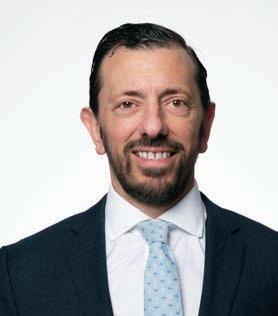
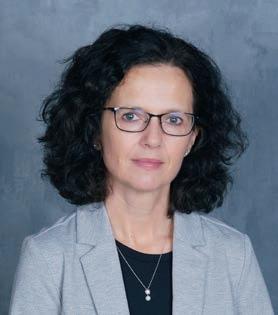
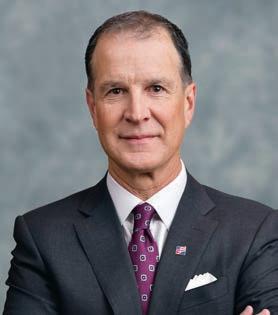
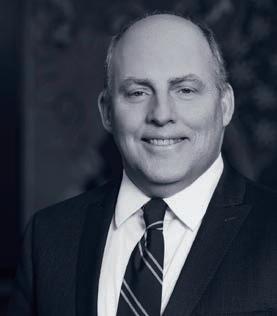
Commercial Services, a subsidiary of First Citizens Bank
of global supply chain disruptions on factoring demand. “Decreased numbers of active ships due to soft demand, attacks in the Red Sea, and drought in Panama are causing longer transit times and increased lead times for goods in the U.S.,” Hudgens explains. These disruptions have heightened the need for working capital support, making factoring an ideal solution. “Factoring provides discretionary lending that can easily increase to support growth in inventory and accounts receivable,” he adds. This flexibility is crucial for importers and retailers facing extended lead times and financial uncertainty.
“Retailers are also looking for working capital enhancement, often in the form of longer terms, which increases risk for the suppliers and leads to delays in them getting paid. That - in addition to turmoil in the retail space in the form of restructuring, mergers, buyouts, etc. - is an indication of the importance of non-recourse factoring with a partner that knows the industry, can appropriately assess the risk, and has the balance sheet to support the required financing,” Hudgens says.
Factoring services do more than just provide liquidity; they also play a pivotal role in strengthening relationships within the supply chain. Schuldiner highlights how factoring supports the entire trade cycle, from raw material purchases to the creation of finished products. “When that final product is shipped, there are related inventory-in-transit and logistics costs that must be paid and, when shipped to the end customer, ultimately creates a receivable that must be collected on payment terms. The current state of the global economy has created a real need for both domestic and international factoring as well as inventory and purchase order financing,” he says.
Efron further elaborates on the benefits of factoring for supply chain relationships. “Factoring provides flexibility to importers, allowing them to meet their obligations to suppliers on time and potentially secure better financing terms,” Efron explains. Additionally, by offering credit coverage on the importer, factoring helps suppliers obtain better financing options in their local markets. This interconnected support strengthens the overall supply chain, fostering a more collaborative and efficient network.
can use more working capital support,” Hudgens remarks. Factoring provides the necessary financing that flows to factories, importers, and buyers at the appropriate times, ensuring that all parties can meet their financial obligations and maintain smooth operations. This interconnected support is crucial for maintaining a healthy and efficient supply chain.

Hudgens also highlights the symbiotic nature of the supply chain supported by factoring. “Every party in the supply chain can use more working capital support,” Hudgens remarks. Factoring provides the necessary financing that flows to factories, importers, and buyers at the appropriate times, ensuring that all parties can meet their financial obligations and maintain smooth operations. This interconnected support is crucial for maintaining a healthy and efficient supply chain.
Hilson emphasizes that factoring offers a predictable cash flow, which is vital for managing seasonal fluctuations and maintaining strong supplier relationships. “With a reliable source of working capital, companies can manage their cash flow more effectively, leading to timely supplier payments and potentially better terms,” Hilson says. This predictability not only enhances supplier relationships but also contributes to a more stable and collaborative supply chain.
Hudgens also highlights the symbiotic nature of the supply chain supported by factoring. “Every party in the supply chain
Several case studies illustrate the tangible benefits of factoring in stabilizing and optimizing cash flow within the supply chain. Schuldiner recounts a notable example involving a century-old manufacturing company. “The client was a familyowned manufacturer and distributor of metal stampings, plastic parts and hardware to the furniture, bedding and RV/ marine sectors seeking a new alternative financing solution after experiencing pandemic challenges and supply chain issues. The company was in the midst of successfully refocusing its core business when one of its largest customers unexpectedly went out of business. As a result, the company’s existing bank was unwilling to continue lending to them. The client exited the bank on good terms and was referred to Rosenthal when an investment banking partner realized that factoring could help to stabilize the company and optimize cash flow. Lending against both account receivables and inventory, we provided a $3-million non-recourse factoring facility, which included a $400,000 letter of credit and muchneeded credit protection.”
Efron describes how temporary inventory lending and credit approvals to overseas suppliers helped clients manage supply chain disruptions. “We provided additional inventory lending and issued credit approvals to overseas suppliers,
which helped smooth out the disruptions and set all players on a path to calmer waters,” Efron says. This approach was instrumental in maintaining continuity and stability across the supply chain during a challenging period.
Hilson shares the case of ABC Sprinklers, a small manufacturing firm that faced cash-flow challenges due to extended payment terms and seasonal demand fluctuations.
“ABC sources materials from several suppliers and sells its finished products to a network of distributors and retailers.
By factoring their receivables, ABC saw an immediate improvement with cash flow. Instead of waiting up to 90+ days for payment from customers, ABC received up to 90% of the invoice amount upon issuing the invoice and the remaining 10%, less fees, after the customer payment arrived,” says Hilson.
She explains that by providing a predictable source of working capital, ABC was able to strengthen their supplier relationships, obtain more favorable terms, provide more consistent delivery of goods to customers allowing the company to focus on its core business.
Hudgens provides another example involving a large retailer that had recently undergone a successful financial restructuring.
By enhancing cash flow management and fostering stronger relationships across the supply chain, factoring continues to be a crucial tool in navigating economic uncertainties and supporting business growth.
Michele Ocejo is SFNet director of communications and editor-in-chief of The Secured Lender.

The role of factoring services has evolved significantly in response to recent global supply chain disruptions. As companies face new challenges and seek stability, factoring provides essential liquidity and credit protection. By enhancing cash flow management and fostering stronger relationships across the supply chain, factoring continues to be a crucial tool in navigating economic uncertainties and supporting business growth.
“They wanted to ensure that after the restructuring, we would be able to provide them with trade credit support, an important component of working capital for them. CIT Commercial Services has the capabilities to support them, which allows our clients to ship and borrow against those receivables and gives them peace of mind that we are standing behind the credit worthiness of the customer,” Hudgens explains.
The role of factoring services has evolved significantly in response to recent global supply chain disruptions. As companies face new challenges and seek stability, factoring provides essential liquidity and credit protection.
BY DAVID W. MORSE, ESQ.
Navigating cross-border secured financing presents a complex challenge, where choice of law and conflict of law rules create an intricate maze. Unlike straightforward domestic transactions under the Uniform Commercial Code, international financing demands careful scrutiny of diverse jurisdictions’ laws. David Morse of Otterbourg P.C. explores the practical steps lenders must take to secure rights over assets like inventory and receivables across multiple countries to ensure the lender has the benefit of such security. Part 2 of this article will appear in the November/December issue.

Choice of law rules and conflict of law rules in the realm of private international law are areas that lead into an intellectual maze of twist and turns, with results that are difficult to describe, difficult to analyze and difficult to understand. Yet, in a cross-border secured financing, the secured lender faces the very real, very practical dilemma of determining the correct steps to take to establish its rights to the accounts, inventory or other assets that are the security it may be relying on in making its loans. Those steps are dictated by the laws of the jurisdiction or jurisdictions that govern the secured lender’s rights. While these issues apply to all categories of both tangible and intangible assets constituting personal property (also referred to as moveable assets), the focus below will be on inventory and trade receivables.
When structuring a secured financing of a business with assets and operations in a single jurisdiction, the matter is (relatively) straightforward. For a business with assets in the United States and customers in the United States, the Uniform Commercial Code (UCC), even with all 50-plus versions of it (one for each State, plus District of Columbia, Puerto Rico, U.S. Virgin Islands and others), provides a clear guide for the steps necessary to create a security interest as to most (albeit not all) categories of personal property, tangible and intangible, and then to establish the effectiveness of such security interest as to relevant third parties, including the priority of the security interest relative to the claims of other creditors and in an insolvency. But when structuring a secured financing of a business with assets and operations in multiple jurisdictions throughout the world, the secured lender will necessarily have to examine the laws of such jurisdictions to know what to do.
Let’s start on the relatively easier path—tangible assets, particularly since it will provide some useful guidance in the subsequent discussion on intangible assets.
The Basics: Perfection and the Effect of Perfection Under the UCC
What if a U.S. based business has valuable assets at a location in Mexico? Perhaps the borrower under a secured credit facility is a retailer importing goods that come in through the port in Long Beach, California, get picked up at the port and taken to the facility of a “3PL” (third-party logistics company) in Juarez, Mexico? Since it is a U.S. business, for this purpose meaning a corporation or limited liability company organized under the laws of a State in the United States, the secured lender will start with the UCC to determine how to take its security. After all, in the event of insolvency, the U.S. business would most likely be in a Chapter 11 or Chapter 7 under the U.S. Bankruptcy Code in the United States.
Suppose the U.S.-based business is organized in Delaware. Since the company is organized under the laws of a State in the United States, the company is a “registered organization” under the UCC. For a registered organization, under UCC Section 9-307(e), the location of the company is its jurisdiction of organization. Under Section 9-301(a)
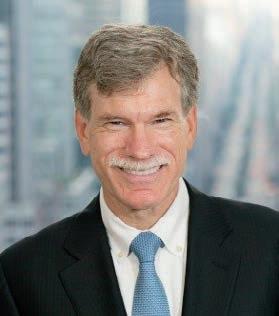
of the UCC, subject to some significant exceptions provided in such section (more on that below), the law of the location of the company governs perfection, the effect of perfection or nonperfection and priority of a security interest. So, if the company is organized under the laws of the State of Delaware, it is “located” in Delaware and the secured party would comply with Delaware law. For the perfection of a security interest in assets like accounts and inventory, this means the filing of a UCC financing statement with the Delaware Department of State.
But, in the example, this Delaware company has valuable inventory located in Mexico. Already, UCC readers are turning back to Section 9-301, the core provision for these matters, given away by its title: “Law Governing Perfection and Priority of Security Interests”. Matters start to get a bit more complex because the UCC introduces an additional concept. In particular, just to focus on “nonpossessory security interests”, Section 9-301(c) sends the secured party to the local law of the jurisdiction in which the goods are actually located to determine “the effect of perfection or nonperfection and the priority of a nonpossessory security interest in the collateral.”
Under the UCC, the laws of two different countries are now quite relevant to the secured lender. For purposes of knowing the steps to take to perfect its security interest under the UCC, the secured lender will look to the requirements of Delaware law, but to establish the “effect of perfection or nonperfection and priority” as to the inventory in Mexico the secured lender will need to turn to the laws of Mexico. This distinction between “perfection” and its “effect” is the theoretical overlay of the UCC that at least as set out in the UCC is not found in the secured transactions laws of many countries.
As a secured party it may seem enough to have a “perfected” security interest. But isn’t what really matters the “effect” of being perfected and the priority of the security interest? And, in any event, what does the “effect” of perfection (or nonperfection) really mean?
The comments to UCC Section 9-301(c) give a clear, simple example. A corporation organized under the laws of Illinois has equipment located in Pennsylvania. The secured party is perfected by filing a financing statement in Illinois, since that is where the borrower as a “registered organization” is “located” according to the UCC. But, the example goes on--if the law of the location of the borrower were to govern priority, then, for example, the priority of a judgment lien on goods located in Pennsylvania would be governed by Illinois law. Instead, the UCC says that it is the law of Pennsylvania, where the equipment is located, that will determine the priority of the secured party’s rights to the equipment relative to the holder of a judgment lien.
Actually, the introduction of the local law where a tangible asset is located as the basis for determining the “effect” of perfection and the priority of a security interest leads to a legal concept commonly found in jurisdictions throughout the world: lex rei sitae. That is, “the law where property is situated.” While legal Latin phrases are not as pervasively used in contemporary U.S. jurisprudence as in other legal traditions, this one provides a useful tool for connecting the UCC with a general principle that is at the core of most multi-jurisdictional secured financings.
The same principle illustrated in the comments to UCC Section 9-301(c) set out above with respect to the equipment of an Illinois company located in Pennsylvania may be used in the example of the inventory of the U.S. retailer located in Mexico (albeit inventory rather than equipment and located in Mexico instead of Pennsylvania). While the lender to the retailer with inventory in Mexico may be “perfected” by filing a financing statement in Delaware where the retailer is organized, under the UCC, the “effect of perfection or nonperfection and the priority” of the lender’s rights to that inventory relative to other creditors is going to be subject to the laws of the jurisdiction where the inventory is located: Mexico. And that means that even under the UCC, the lender should take the steps necessary under Mexican law to establish the rights of the secured party to the inventory and the priority of such rights.
Beyond the UCC—A Civil Code Example
Take another example to illustrate the point, now not involving the UCC.
Suppose the borrower is a company organized under the laws of Switzerland and with its chief executive office in Zurich. While its chief executive office is in Zurich, the manufacturing facility where most of its inventory and equipment is located is in Germany. As to an asset like inventory, in general, Swiss law follows traditional civil code principles. Under Swiss law, in order for a secured party to establish its rights to an asset like inventory, the company must be “dispossessed” of the inventory---that is, as the term suggests, the company cannot have possession of its own inventory.

Section 9-301(c) seems to provide the answer, at least under the UCC for United States law. It says that the “local law” of the jurisdiction in which the inventory is located governs the effect of perfection or nonperfection. The suggestion then is that the secured lender follow the “local law” intended to mean the laws of a jurisdiction other than its conflicts of law principles.
There is the practical matter of enforcement as well. While a Chapter 11 or Chapter 7 case under the U.S. Bankruptcy Code may be the more likely scenario for the retailer organized under the laws of Delaware, if the secured party were to want to enforce its rights in Mexico against the inventory located there, it would want to have rights that are based on the laws of Mexico.
As an aside, having the inventory at a location in Mexico operated and controlled by a third party (the “3PL” for example) may actually provide some distinct practical benefits to the secured lender, particularly in realizing on the inventory, if the secured lender has an agreement with the third party, as acknowledged and agreed to by the company, which provides that the third party will follow the instructions of the secured lender with respect to the inventory upon notice from the lender after a default.
Historically, where there was no public registry for security rights to let a lender or other creditor know that assets are already pledged, one can see how taking assets out of the possession of the company would be an effective way to publicly show that the assets were subject to the claims of another creditor. Clearly an effective way of giving notice of a pledge. While perhaps effective as a means of notifying creditors that a company’s assets were pledged to secure a debt, the effect of this rule makes reliance on inventory located in Switzerland quite challenging as a practical matter for obvious reasons. (Just to be more precise, there is a registry for retention of title rights in inventory in Switzerland, but in the example, the secured party’s rights do not arise on the basis of retention of title.)
Germany, on the other hand, albeit from the same civil code tradition as Switzerland, has developed the concept of a “nonpossessory” security assignment or sicherungsabtretung. So, in this example, the fortunate lender and borrower may now obtain a security right to the inventory located in Germany owned by the Swiss company—because, Swiss law says to look to the law of the location of the property (lex rei sitae) for purposes of establishing the secured party’s rights. The very same inventory, which if located in Switzerland, would not be available to the company to pledge to obtain additional credit (at least as a practical matter), is now in fact available to be pledged by compliance with
German law—which then satisfies the requirements of Swiss law where the company has its centre of main interests.
Another example assuming tangible assets owned by a company organized in a jurisdiction outside of the United States but with assets located in the United States leads to a particular wrinkle in the UCC.
Take a company organized under the laws of Ontario, a province of Canada, which has enacted the Personal Property Security Act (PPSA), a very comfortable cousin of the UCC. The company has its chief executive office in Windsor, Ontario. But, the Ontario corporation has valuable inventory located in Michigan, say Detroit, right across the Ambassador Bridge from Windsor, Ontario.
The Ontario version of the PPSA has the standard rule discussed above which says that the secured lender should look to the laws of the location of the assets to determine how to perfect. The inventory being in Detroit means the secured lender turns to Michigan law for this purpose.
Under the UCC, to determine the laws that govern perfection, it is first necessary to determine where the owner of the security is “located.” The UCC in Michigan (as in other States of the United States) has the general rules for determining where a company that is organized in a jurisdiction outside of the United States is “located.” First, it says that for a company that is not organized under the laws of a State in the United States (that is, it is not a “registered organization” under the UCC), then under UCC Section 9-307(b), the company is deemed located in the jurisdiction of its place of business or if it has more than one, its chief executive office, but only if the special rule of Section 9-307(c) applies. The general rule of Section 9-307(b) with respect to using the location of the chief executive office only applies if the law of the jurisdiction in which the chief executive office is located: “…generally requires information concerning the existence of a non-possessory security interest to be made generally available in a filing, recording, or registration system as a condition or result of the security interest having priority over the right of a lien creditor with respect to the collateral.”
If the law of the location of the chief executive office does not have a “filing, recording, or registration system” that discloses information about a security interest with such effect, then under Section 9-307(c) the company organized outside of the United States is deemed located in the District of Columbia. In other words, in order to use the location of the chief executive office of a company organized outside of the United States, the chief executive office will need to be in a jurisdiction with a lien filing system that satisfies the criteria specified in Section 9-307(c). Much has been written about the countries that may or may not have a lien filing system that satisfies these requirements.
The Ontario PPSA is, in fact, generally viewed as satisfying the requirement of having such a filing system (although the secured lender will still comply with the laws of the District of Columbia and file a financing statement there in order to avoid any question) and therefore, under the Michigan UCC, the Ontario organized company would be located in Ontario where its chief executive office is located
using the general rule of Section 9-307(b). Ontario law says that to establish the secured party’s rights it is necessary to comply with the laws of the location of the inventory, which is Michigan. Michigan law says to comply with the laws of the jurisdiction in which the chief executive office of the company is located: Ontario. (Sometimes referred to as a “renvoi” in private international law.) Now what?
Section 9-301(c) seems to provide the answer, at least under the UCC for United States law. It says that the “local law” of the jurisdiction in which the inventory is located governs the effect of perfection or nonperfection. The suggestion then is that the secured lender follow the “local law” intended to mean the laws of a jurisdiction other than its conflicts of law principles. Consequently, the secured lender files a financing statement in Michigan to address the inventory there—even though under Michigan law absent the reference back to Ontario law, a financing statement in Michigan would have no legal effect. While under Michigan law, the filing in Michigan has no effect— it does under Ontario law. And, of course, as a practical matter, the secured lender will file a PPSA financing statement in Ontario and the UCC financing statement in Michigan, so as to avoid any questions.
If the example involved a company organized under the laws of Germany which has no lien filing system, then the analysis for the inventory of the German company located in Michigan would be different. The rule of Section 9-307(c) as to the “location” of the company would be simply the District of Columbia and for purposes of the steps to take to perfect as to the inventory would involve the filing of a financing statement in the District of Columbia. This would also seem to address the requirements of German law, which on the general principle of lex rei sitae would apply Michigan law, which takes the secured lender to the laws of the District of Columbia, while the effect of perfection or nonperfection and the priority of the security interest would be governed by the laws of Michigan.
David W. Morse is a member of the finance practice of the law firm of Otterbourg P.C. in New York City and chair of its international finance practice. He represents banks, private debt funds, commercial finance companies and other institutional lenders in structuring and documenting domestic and cross-border loan and other finance transactions, as well as loan workouts and restructurings. He has worked on numerous financing transactions confronting a wide range of legal issues raised by Federal, State and international law. Morse has been recognized in Super Lawyers, Best Lawyers and selected by Global Law Experts for the banking and finance law expert position in New York. Morse has been a representative from the Secured Finance Network (formerly Commercial Finance Association) to the United Nations Commission on International Trade Law (UNCITRAL) on concerning secured transactions law and is a member of SFNet’s Hall of Fame.
Join SFNet’s December Conference for Key Insights and Networking
BY MICHELE OCEJO
On December 3, SFNet will host its first Supply Chain Conference, at Greenberg Traurig in New York City. Industry leaders and experts will converge to explore the latest trends and insights in supply chain finance. This full-day event will provide invaluable knowledge and networking opportunities, featuring a diverse range of sessions designed to deepen your understanding of the supply chain finance ecosystem
Bob Grbic of White Oak Commercial Finance and Paul Schuldiner of Rosenthal & Rosenthal are co-chairs of the event planning committee. “The growth of supply chain finance, both in the U.S. and globally, in terms of funds employed and products, warrants discussion. The underlying premise of the SFNet Supply Chain Conference, the financing of receivables on a non-recourse basis, is the core of factoring and provides new opportunities for our members,” said Grbic.
Schuldiner commented, “The timing of the Conference is perfect as we have witnessed first-hand how inter-connected the world of international trade is especially during COVID and its aftermath. Businesses are looking for more efficient working capital solutions that better facilitate cross-border trade. This is especially evident in the lower middle market which may not be able to access supply chain finance tools that were once only available to larger companies.”
Schuldiner and Grbic explained the Conference is aimed at any working capital lender who finances international trade, as well as attorneys, CPAs and logistics providers. “In order to better serve your customers, knowledge of using supply chain finance in all of its various forms should be top of mind if you are engaged in providing solutions,” said Schuldiner.
The program* will include two keynote speakers: Matt Colyar, economist at Moody’s Analytics, and Dan North of Allianz who will share his expertise and perspectives on the evolving landscape of supply chain finance.
What Makes Up This Ecosystem of Supply Chain Finance? will delve into the fundamentals of supply chain finance, including its definition and how it contrasts with offshore asset-based lending (ABL).
This panel will be followed by Forms of Supply Chain Finance, exploring the types of supply chain finance, from trade payables finance (reverse factoring) to in-transit inventory financing and purchase order finance.
The afternoon panels will begin with Key Elements in Assessing and Monitoring Buyer Credit Risk. Panelists will discuss the crucial elements in assessing buyer credit risk, including the use of multiple financing channels and the importance of timely reporting.
Next up, panelists will focus on the capital markets, delving into the various sources of funding, including banks, non-bank entities, exchange marketplaces, and intermediary conduits.
Legal issues will be spotlighted at 3:00 with a focus on navigating the complexities of legal documentation and risk management in supply chain finance. This session will cover key topics such as jurisdiction, covenants, bankruptcy risks, and the process of exiting a supply chain finance relationship.
The day will conclude with a networking reception, providing an excellent opportunity to connect with peers, discuss key takeaways, and forge new business relationships.
Schuldiner explained why he wanted to devote time to planning this event: “I am passionate about international trade and its future as it relates to secured lending. I am excited to see what new products and technologies become integrated into the working capital finance world.”
Grbic’s role as SFNet Factoring Committee chair inspired his involvement: “As the current chairman of the SFNet’s Factoring
Committee it was an easy decision give SFC’s underlying connection to factoring. Afterall, supply chain finance is often referred to as ‘reverse factoring’.”
Visit www.sfnet.com for updates and to register for the Conference. *Agenda is subject to change.
Matt Colyar is an economist at Moody’s Analytics. His work is primarily focused on the labor market and monetary policy in the U.S. He also covers the economies of Pennsylvania and several U.S. metro areas. Prior to joining Moody’s Analytics, Matt worked at the World Bank, focusing on private-sector development in South Asia, and in private industry as a financial analyst. He received his master’s degree in applied economics from Lehigh University and his bachelor’s degree in business administration from West Chester University. Matt is a regular contributor to the Moody’s Talks - Inside Economics podcast.
What risks do geopolitical threats pose to the functioning of global supply-chains?
First, there are the violent clashes that disrupt trade by damaging cargo, forcing operators to take less efficient routes to avoid conflict. This, of course, also significantly increases insurance costs. Second, is that geopolitical hostilities are forcing governments to apply sanctions and other economic measures. Together, these forces are causing global supply networks to be reconfigured.
Businesses and governments are working to mitigate potential negative effects. That in and of itself is a cost. Geopolitical alignment is quickly becoming a more and more important consideration for foreign direct investment and trade relationships. This comes at the expense of more traditional macroeconomic factors like geographical proximity and other comparative advantages.
Are recent freedom of navigation issues, (i.e., attacks on commercial ships in the Red Sea) likely to remain a persistent risk? Increasingly, this is the arena where we are seeing hostilities take place and the trendline is clear. Geopolitical threats, in isolation or combined, have the potential to put immense pressure on global supply chains. Commercial shipping could be disrupted further in the Red Sea, the Black Sea, or in the South China Sea and Taiwan Strait in the event of a Chinese invasion of Taiwan.
This trend is unlikely to reverse in the coming decade. For that reason, firms are limiting their dependence on a particular region, instead opting for more flexibility and supplier networks based domestically or friendly countries.
Industrial policy in the U.S. and elsewhere is trending increasingly protectionist – what does this mean for the production and distribution of goods?
Subsidies to promote domestic production will shrink the geographical footprint of some firms’ supplier networks. Closer to home, this should lower the risk premia for some supply chain financing.
Michele Ocejo is SFNet director of communications and editor-in-chief of The Secured Lender.
BY MICHELE OCEJO

What would you say was the highlight(s) of your tenure as president of SFNet?
Besides the animated introduction video at the annual convention where I was transformed into a superhero, I think the highlight of my tenure as SFNet president has been taking the Executive Committee through a rigorous strategic planning process during the year.
From an operational standpoint, I feel like SFNet is in great shape. Our events, educational programs and advocacy efforts are all very strong and the surveys we have done tell us they are well received by our members. We have grown our revenues and rebuilt our reserves over the past several years, which gives us more flexibility to take on new initiatives. What we did during the course of this past year was to step away from the annual program and budgeting cycle and looked forward to identify the key factors impacting our members. We also talked about how we could re-shape our efforts in the coming years to better address these. We spoke at length about how SFNet could expand its offerings and its impact directly and through partnerships with other organizations. While we didn’t come up with all of the answers, what I’m most proud of is that we took time to discuss all of the right questions and, as a result, the next group of leaders is better prepared to meet our needs in the future.
What was most challenging and how did you/SFNet overcome it?
During the past year, we responded to an unusually large number of challenges to both our bank and non-bank members where we felt we could use our advocacy efforts to voice our concerns from an industry standpoint. As an example, in response to the regulatory request for comments on the implementation of the Basel III risk and capital framework for banks, we formed a working group that wrote a detailed letter focused on several issues potentially impacting asset-based lending. In addition to the Basel III letter, we took action through our lobbyists to address the concerns of many of our non-bank members over the impact of various proposed state disclosure rules. Using the platform we have as a trade association is a great way to address the challenges our members face and I feel like we did that well over the past year.
What challenges and opportunities do you see ahead for the industry?
The biggest challenges we face are also our greatest opportunities to help our members address the economic, technological and regulatory pressures we face. From an economic standpoint our borrowers are facing an onslaught of pressure from inflation, geopolitical change, and supply chain issues. While these types of disruptions can lead to new lending opportunities for our members, we must all face the

Business Capital
challenge of evaluating the impact of these issues on our borrowers’ performance and prospects. Technological change, particularly artificial intelligence, is also both an opportunity and a risk. Finding new ways to utilize AI is an imperative for our industry participants and our borrowers. Successfully integrating AI can lead to significant efficiencies and entirely new and innovative product offerings. Those that are unsuccessful adapting may find themselves increasingly uncompetitive. From a regulatory standpoint, banks must find ways to successfully run their businesses in the context of the requirements of their regulators. While this may result in new opportunities, particularly for non-bank lenders, maintaining the safety and soundness of lending businesses is everyone’s concern.
Any words of advice for incoming president, Rob Meyers? Rob is an exceptional leader and someone who brings great energy and insight into the role of SFNet president. My only advice for him is to continue the work we have done over the last several years in strengthening our offerings to our members while also making sure the Executive Committee has the type of leaders who can truly advocate for all parts of our membership
Michele Ocejo is SFNet director of communications and editor-in-chief of The Secured Lender.
BY RICHARD I. SIMON, ESQUIRE, AND STEVEN W. TEPPLER, ESQUIRE
Attorneys from Mandelbaum Barrett PC explore how the rising cyber threats and stringent regulations facing lenders and the essential strategies for developing robust cybersecurity programs, safeguarding data, and maintaining regulatory compliance in a rapidly changing landscape.
The lending industry, encompassing both traditional banks and non-traditional financial institutions, has become a prime target for cyber-attacks. These attacks range from sophisticated phishing schemes to ransomware assaults, posing significant risks not only to financial assets but also to sensitive customer data. The increasing frequency and severity of these cyber threats have prompted regulatory bodies to impose stringent cybersecurity requirements. Lenders must navigate these regulations to maintain defensible compliance and avoid substantial civil and regulatory penalties.
Evolving Threat Landscape: Cyber threats are continually evolving, with attackers employing increasingly sophisticated techniques. Traditional lenders, such as banks, and nontraditional lenders, including fintech companies, are both at risk. The diversity of these attacks, ranging from data breaches to malware, makes it difficult for lenders to stay ahead.
Complex Regulatory Environment: Lenders must comply with various federal and state regulations designed to protect consumer data and ensure cybersecurity. Key regulations include:
Gramm-Leach-Bliley Act (GLBA): This federal law mandates that financial institutions explain their information-sharing practices to their customers and safeguard sensitive data. Key requirements include developing a comprehensive information security program, conducting risk assessments, and implementing safeguards to protect customer information. Additionally, institutions must provide annual privacy notices to customers and ensure that third-party service providers maintain appropriate security measures.
New York Department of Financial Services (DFS) Part 500: This regulation requires financial services companies to establish and maintain a cybersecurity program designed to protect consumers and ensure the safety and soundness of the state’s financial services industry.
New York General Business Law (GBL) 899bb: This statute imposes additional cybersecurity requirements on businesses handling private information.
Resource Constraints: Implementing robust cybersecurity measures requires significant investment in technology, personnel, and training. Smaller lenders, in particular, may struggle with the financial and human resources needed to achieve and maintain compliance.




W. TEPPLER
Data Management Challenges: Lenders handle vast amounts of sensitive customer data, making them attractive targets for cybercriminals. Ensuring the security and integrity of this data while maintaining accessibility for legitimate business purposes is a critical challenge.
Develop a Comprehensive Cybersecurity Program: Establish a cybersecurity program that addresses the specific risks facing their organization. This program should include risk assessments, regular vulnerability testing, and incident response plans. Under DFS Part 500, for example, financial institutions are required to conduct annual risk assessments and implement a written cybersecurity policy approved by the board of directors.
Implement Robust Data Protection Measures: Protecting sensitive customer data is paramount. This includes encrypting data both at rest and in transit, using multi-
factor authentication, and implementing strong access controls. Compliance with GLBA requires financial institutions to develop, implement, and maintain a comprehensive information security program to protect the confidentiality and integrity of customer information.
Regular Training and Awareness Programs: Employees are often the first line of defense against cyber threats. Regular training and awareness programs can help employees recognize and respond to potential threats. This is crucial for compliance with various regulations, including GLBA, which mandates employee training as part of an institution’s information security program.
Third-Party Risk Management: Many lenders rely on third-party vendors for various services, which can introduce additional cybersecurity risks. It is essential to conduct thorough due diligence on third-party vendors and require them to comply with the institution’s cybersecurity policies. DFS Part 500, for instance, includes specific requirements for the oversight of thirdparty service providers.
Continuous Monitoring and Improvement: Cybersecurity is not a one-time effort but an ongoing process. Lenders must continuously monitor their systems for vulnerabilities and update their security measures to address new threats. This proactive approach is necessary to maintain defensible compliance and minimize the risk of cyber incidents.
improving their security measures, lenders can achieve and maintain defensible compliance, thereby safeguarding their operations and customer trust.
Richard Simon is a shareholder, co-chair of Mandelbaum Barrett PC’s Banking and Financial Services Practice Group, and Partner in Charge of the New York Office. With over 30 years of legal experience, he specializes in commercial lending, including assetbased lending, factoring, trade finance, and finance litigation. Simon advises clients on business structure, planning, finance, corporate governance, cybersecurity, and privacy issues.

Employees are often the first line of defense against cyber threats. Regular training and awareness programs can help employees recognize and respond to potential threats. This is crucial for compliance with various regulations, including GLBA, which mandates employee training as part of an institution’s information security program.
Engage with Legal and Cybersecurity Experts: Navigating the complex regulatory landscape requires specialized knowledge. Lenders should engage with legal and cybersecurity experts to ensure that their cybersecurity programs meet all regulatory requirements and can withstand scrutiny from regulators.
The lending industry faces significant cybersecurity challenges that require a proactive and comprehensive approach to compliance. By developing robust cybersecurity programs, protecting sensitive data, training employees, managing third-party risks, and continuously monitoring and
He previously served as principal and general counsel for a trade finance company, managing legal affairs and corporate compliance. Simon established the firm’s commercial banking finance practice, representing banks and non-bank institutional lenders in loan negotiations and restructuring transactions. He is rated AV Preeminent by MartindaleHubbell, the highest level of peerrated professional excellence.
Steven W. Teppler is a partner, chair of Mandelbaum Barrett PC’s Privacy and Cybersecurity Practice Group, and Chief Cybersecurity Legal Officer. He focuses on cybersecurity and privacy work, advising on potential class action and mass tort liability related to security vulnerabilities and code defects.
As an ISACA Certified Data Privacy Solutions Engineer (CDPSE), Teppler has been at the forefront of cybersecurity, data privacy, and eDiscovery since 2000. He has extensive experience in technology, blockchain, and class action litigation. Teppler also leads the blog Litigation Intelligence and teaches Electronic Discovery and Cybersecurity Law at Nova Southeastern
BY JOSEPH HEIM
Joseph Heim of Culain Capital outlines how secured finance professionals can navigate the complexities of workouts when providing accounts receivable financing facilities.
Accounts receivable financing (factoring) is a robust solution for small and medium-size businesses (SMBs) that are a start-up, experiencing rapid growth or in distress. Accounts receivable financing provides short-term funding and benefits a company’s working capital cycle by providing improved cash flow when the company can immediately receive an advance while allowing the account debtor the normal terms of sale. Cash flow increases and allows the company to take advantage of supplier discounts, increase inventory and meet seasonal funding requirements. In addition, the company can experience an increase in sales when the factor extends credit, provides funding and assume the credit risk. This allows the company to provide more services or sell more merchandise to customers than they would otherwise. The company might extend longer terms of sales to customers, enabling them to generate new business or do more business with existing customers.
In accounts receivable financing, the focus shifts from assessing the company’s overall cash flow to assessing the collateral value of the accounts receivable. In accounts receivable financing, the key credit decisions are effectively based on an evaluation of the account debtor and the underlying collateral. It is not primarily based on traditional cash flow and balance sheet ratios. Not to say that the condition of the company is irrelevant in a factoring relationship, rather the traditional assessment of the financial statements take a back seat in importance to an assessment of the collateral. To a factor, the likelihood of the company’s failure is less important than the liquidation value of the collateral.
However, when clients face financial distress, properly managing accounts receivable financing workouts becomes critical. Ensuring these workouts are handled on a costeffective basis requires a combination of strategic planning, efficient processes, and robust risk management. Important to the workout is the alignment of the needs of the various
stakeholders, such as the secured finance company, suppliers, and owner/ shareholders, each with different perspectives on what constitutes a successful workout. The primary aim is to avoid loss and maximize value recoverable through refinancing, going concern sales, or liquidation.
This article explores key strategies that commercial finance firms can employ to manage accounts receivable financing workouts effectively and economically.
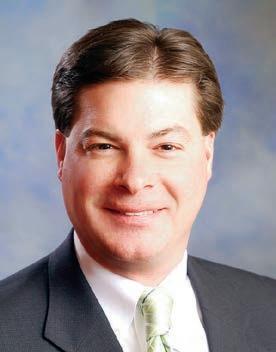
JOSEPH HEIM
Proactive Risk Assessment and Monitoring - Early Detection and Regular Reviews:
The factor’s ability to identify the early warning signs is crucial for preventing business failure including a potential write-off. Implementing advanced analytics and continuous monitoring early and often will help to identify potential issues in clients’ accounts receivable in a timely manner. Early detection allows firms to take preemptive actions, mitigating the risk of defaults.
Key signs include deteriorating financial performance, management issues, and external pressures. Effective monitoring and early intervention can preserve options and improve the likelihood of a successful workout. Common internal causes of failure include ineffective management, failure to manage risks, excessive debt, and fraud. External causes encompass economic conditions, competitive changes, and governmental actions.
In the Occupational Fraud 2024: A Report To The Nations , the Association of Certified Fraud Examiners reports internal issues such as fraud, mismanagement, and other internal control weaknesses are significantly more likely to lead to business failure compared to external problems. Specifically, internal causes are estimated to be about six times more likely to lead to business failure than external causes. This emphasizes the importance of strong internal controls and effective risk management within organizations.
A fine line exists between ineffective management, sloppy bookkeeping and fraud. The secured finance professional evaluates this fine line by identifying the early warning signs of collateral deterioration through the gathering of information and conducting regular financial reviews and credit assessments of clients and their account debtors to ensure their financial health and credit worthiness remains stable.
These reviews help in adjusting financing terms proactively rather than reactively. A sample of early warning signs appears in the table below.
Cost-effective and timely workouts require thorough information gathering. This involves analyzing a host of financial information from original invoices to agings to financial statements, assessing management capabilities, understanding industry trends, and using diagnostic tools, data extraction and other software to identify potential financial distress. Financial and management analyses help the secured finance professional understand the client’s situation and respond appropriately. Ongoing monitoring and a proactive approach to detecting issues are essential for timely intervention.
Aging of accounts receivable Skipped invoice numbers
Unusual invoice amounts Payments where invoices are skipped
Payment no longer going to lockbox Unidentified sources of non-factored cash
Unsatisfactory verifications Returned product or canceled contracts
Large contra offset Delinquent taxes
Secured finance professionals can effectively detect collateral deterioration by leveraging technology and automation. Third-party service providers, off-the shelf software and a robust portfolio management software will provide automated monitoring systems that provide the factor’s account executives and management the ability to continuously track receivables and flag potential issues, which reduces manual effort and enhances accuracy. These systems use algorithms to identify anomalies and trends that may indicate collateral risk. Additionally, digital platforms facilitate efficient communication and documentation, ensuring that all stakeholders have realtime access to relevant information. This realtime access minimizes delays and administrative costs, enabling auditors to promptly identify and address any signs of collateral deterioration. By integrating these technological tools, auditors can maintain a proactive approach to managing and safeguarding collateral.
When a credit facility becomes problematic, the secured finance professional must decide on the best course of action. This decision is influenced by considerations such as the client’s financial health, the credit worthiness of the account debtor, the value of the collateral, and the potential for recovery. Finance companies may opt for restructuring the credit facility, working with turnaround professionals, or initiating foreclosure proceedings. The primary goal is to maximize recovery while minimizing losses.
Whichever path the finance company determines to be the best course of action for all stakeholders, it will be critical that all parties maintain effective communication and negotiations. Without effective communication and negotiations, a successful outcome is unlikely. Maintaining transparent and consistent communication with clients and understanding their client’s financial situation allows finance firms to tailor workout solutions that are mutually beneficial. Factors have a host of remedies from lowering advance rates to the application of non-factored proceeds to address a collateral deficiency.
In situations involving allegations or determinations of fraud, effective communication and negotiations are crucial for achieving a successful outcome, particularly because emotions are often heightened, vehement and animated. Clear and transparent communication helps in managing the heightened emotional state of the parties involved. Establishing a calm and professional tone from the outset can de-escalate tensions and foster a cooperative atmosphere. It is important to listen actively to all parties, acknowledging their concerns and emotions, which can help build trust and facilitate more productive discussions.

When a team takes ownership of its problems, the problem gets solved. It is true on the battlefield, it is true in business, and it is true in life.
— Jocko Willink
Through experience and observation, the factor’s team will develop strong negotiation skills needed to navigate workouts efficiently. Effective negotiation can lead to better recovery rates and reduced legal costs. Negotiations should be approached with a focus on finding common ground and mutually acceptable solutions. This involves being empathetic and understanding the perspectives and motivations of each party. Utilizing a structured negotiation process can provide
a framework for addressing issues systematically, ensuring that all relevant aspects are considered and that discussions remain focused on resolving the core issues.
How the accounts receivable financing facility is agreed upon and structured will determine the options that the factor and the client will have to resolve a collateral deficiency. To be cost-effective and efficient, the parties can agree to have stale receivables relieved through a portion of a future advance, the swapping in of a new invoice to replace the old, having the client purchase the receivable back or relieve the receivable by applying against an established cash reserve. Should those remedies not prove successful, stopping all future advances, applying the receipt of non-factored proceeds to the stale receivables and collecting out of the remaining receivables would be a solution. In some situations, restructuring the outstanding net funds employed by converting a portion of the receivables into longer-term financing or equity can relieve immediate pressure on the client while preserving the relationship and potential future business.
Another cost-effective strategy for an efficient and effective workout is to engage legal experts who specialize in financial restructuring and workouts. Their expertise can guide the firm through complex legal landscapes, ensuring compliance and reducing litigation risks. In addition, utilizing advisory services and turnaround consulting firms can benefit the factor and the client by helping the client improve their own credit management and operational efficiency. Better-run clients are less likely to default, reducing the need for costly workouts. Finally, outsourcing collections to third-party agencies with expertise in recovering receivables may be the last remedy. This can be more cost-effective than maintaining an in-house collections team, especially for smaller firms.
Managing accounts receivable financing workouts on a costeffective basis requires a blend of proactive risk management, effective communication, flexible restructuring, and the strategic use of technology. By adopting these practices, commercial finance firms can navigate financial distress scenarios more efficiently, ensuring better outcomes for both themselves and their clients. The focus on cost-effectiveness not only preserves profitability, but also strengthens client relationships, paving the way for long-term success in the competitive world of commercial finance.
Joe Heim is the chief credit officer of Culain Capital responsible for the firm’s credit analysis, risk assessment and secured financing and oversees the
underwriting and servicing of accounts receivable financing facilities and other related transactions. Heim is a Certified Public Accountant and Certified Fraud Examiner. In 2022, he co-founded Culain Capital along with James Franz, Jim Jarosz and Fred Kulikowski to provide specialized accounts receivable financing, asset-based lending, and other working capital solutions.

THE INDUSTRY CHANGES FAST. THE TSL EXPRESS SECURED FINANCE DEAL TABLE HELPS YOU KEEP PACE




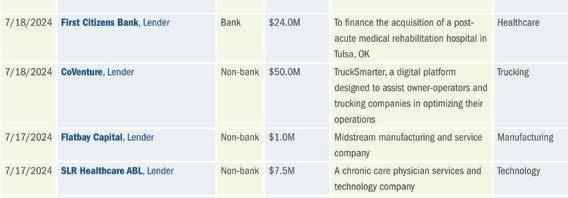


The Secured Finance Deal Table offers:
Comprehensive, interactive information that is fully sortable and downloadable
Detailed ABL, factoring and other senior secured transaction data on over 3400 deals, updated daily
Specifics including deal terms, structure, borrowers, industry, interest rates, contact information, and more
Join the ranks of industry leaders who trust the TSL Express Secured Finance Deal Table to navigate the complexities of secured finance.










I’m thrilled to connect with such a vibrant and ambitious group: undergraduate and graduate students in business and aspiring law professionals. You’re at an exciting crossroads, and I want to introduce you to an industry that’s as dynamic as it is rewarding: secured finance.
While secured finance might not be a field most people plan to enter, it’s often a serendipitous discovery that leads to a fulfilling career. Described as “the biggest industry you’ve never heard of,” secured finance is a $5-trillion powerhouse that’s integral to our economy’s success. Think of it as the engine driving countless businesses and creating significant economic impact.
A bit about us: The Secured Finance Network (SFNet), the non-profit association that publishes this magazine, was founded in 1944, and is an essential resource for all organizations and professionals who deliver and enable secured finance to businesses. Every day we strive to fulfill our purpose of providing the working capital that fuels our economy’s engines of commerce. The hub of a vibrant community, SFNet brings together the diverse people, data, knowledge, tools, and insights that put capital to work. Through a range of networking opportunities —from large-scale conferences to intimate local chapter events— SFNet fosters communities of interest that can generate opportunities, deal flow, and long-term relationships and collaborations.
Secured finance impacts about one-third of the 4.6 million U.S. businesses with at least two employees. This influence extends beyond the businesses themselves, reaching their employees, customers, communities, and the broader economy. By pursuing a career in secured finance, you’ll have the chance to make a tangible difference in the lives of many, including helping family-owned and small to medium-sized enterprises realize their dreams.
To help you explore this exciting field, we are showcasing 29 of our member companies who are eager to connect with the next generation of secured finance professionals. Additionally, you’ll read inspiring testimonials from young professionals who were once in your shoes, navigating their
career choices and finding their path in secured finance.
Whether you’re interested in lending, business development, accounting, or law, this industry offers a variety of dynamic and rewarding career paths. Our Great Places to Work profiles are just one of many initiatives SFNet offers to attract new talent, including guest lectures, scholarships, mentoring programs, internships, and professional development opportunities.

RICHARD D. GUMBRECHT SFNet Chief Executive Officer
I encourage you to reach out to the contacts in the profiles for more information about specific companies and the industry at large. And don’t hesitate to utilize our website, www.sfnet.com, for more details or contact me directly (rgumbrecht@sfnet.com) if you’d like to discuss how secured finance can be a key part of your career journey. I’d be happy to help you explore the possibilities and find your place in this vital field.

Assembled Brands is a financial services company that specializes in providing fast, flexible, and non-dilutive capital solutions to companies within the consumer goods ecosystem, with particular expertise in directto-consumer brands. We are the go-to lender for emerging consumer goods businesses looking to grow sustainably, as our specialty lies in understanding the constraints of growing businesses throughout various industries. Our flexible lines of credit have helped some of the fastest growing DTC brands across the consumer landscape meet and exceed their goals for growth. Facility sizes range from $1MM to $10MM, with borrowing bases calculated against inventory (including DTC inventory) and accounts receivable.
What specific programs do you offer to attract and retain talent?
We are proud of our inclusive culture and environment here at Assembled Brands. We understand that true diversity goes beyond superficial representation and are cultivating a culture where every voice is not only heard, but genuinely listened to. In our hiring process we are dedicated to expanding our diverse team that represents different backgrounds, perspectives, and experiences. To ensure that our commitment to diversity is translated into action, we have implemented several hiring strategies, which have created an environment where everyone feels valued, respected, and included.
We put people first at Assembled Brands, which is why we offer a multitude of benefits to our employees, including excellent medical, dental, vision, life insurance, short- and long-term disability, FSA, and dependent care. The company also strives to help its employees achieve a positive work-life balance through unlimited PTO, flexible work hours, and a hybrid office schedule with three days working from home and two days at the office, which allows for collaboration and brainstorming.
Our unique snack station with refreshments from innovative food and beverage companies we partner with are stocked by the company on office days. We partake in communal lunch at the office or nearby establishments and make sure we take the time to connect. Every year, we also plan team building events such as tours of sporting arenas, concerts, and more.
What makes your company stand out?
Our proprietary backend technology and analytics enable us to recognize potential and fund consumer goods companies faster. We leverage data to make more informed decisions, and tailor the right capital solutions to each brand. We understand that borrowing, especially in times of economic uncertainty, can be stressful and time-consuming and our goal is to make it as easy and straightforward as possible for our partners. With these facilities, fast-growing brands can feel confident about scaling their business safely by accessing the financial resources they need without depleting their own cash.
Our company also stands out through each of our team members’ commitment and passion for fueling the growth of emerging consumer companies and our wholehearted embrace of digitally native brands. As entrepreneurs, we understand the
hardships modern digital brands face as they continue to scale, especially since they have traditionally been underserved by banks. We set out to change this - with capital solutions specifically tailored to each company’s specific needs. Our portfolio includes an array of innovative CPG brands from various industries and continues to grow.
What would you say are the best things about the industry you work in? What are the challenges?
The breadth of industries we engage with is exhilarating. From manufacturing to retail, distributors and beyond, our team delves into the complexities of diverse sectors. Working with clients from various industries on asset-based transactions allows us to be immersed in an exciting learning environment that fuels personal and professional growth, continuously expanding our team’s knowledge and expertise.
Moreover, it is a pleasure to be able to offer up-and-coming brands asset-based credit lines that provide significantly more flexibility and lower costs than many alternative options that have been available in the past. Seeing young brands reach their full potential and witnessing their transition into household name brands is a very satisfying experience.
On the other hand, we also see young DTC brands having difficulty managing inventory to create enough available assets to lend against. We’ve helped many mature their operations by offering advice, and by making introductions to tools and logistics companies that support their specific needs. Rethinking how to manage inventory is, although not always easy, crucial to make the partnership successful and to stay compliant with loan terms.
Contact information for prospective employees
You can find our latest job openings on LinkedIn, or send us a message via hello@assembledbrands.com.

BDO USA, PC is a leading professional services rm with more than 80 of ces across the United States. As part of those services, we act as trusted advisors to companies facing nancial distress. When businesses don’t meet the conditions of their loan agreements or need more capital than their lenders agree to provide, the restructuring arm of BDO, BDO Consulting Group, LLC, is often called upon to provide restructuring nancial advisory to the borrowers as well as to their lenders. Our BDO Consulting Group professionals often assist these borrowers with interim management as well as advisory services.
BDO offers a rewarding career with a powerful impact. Restructuring consulting and management gives you the opportunity to make a difference by preserving jobs and saving companies that might otherwise cease operating, both of which help to expand the economy.
What speci c programs do you offer to attract and retain talent?
Our culture is focused on our core purpose - helping people thrive, every day. We’re dedicated to building high performing teams with diverse skillsets, capable of delivering excellent results for our clients. At the core of our recruitment and retention strategy is a commitment to a exible workplace. Time spent working at a BDO of ce, a client site or a remote location will vary from week to week, team to team and engagement to engagement. Embracing this reality enables BDO to recruit the best talent regardless of location and empowers our teams to manage their personal and professional obligations while still ensuring productivity, agility, and connectivity.
At BDO, we believe in the apprenticeship model, with mentorship from senior leadership on client engagements. Given the middle market focus of our restructuring practice, project teams typically range from two to ve members. This allows for signi cant exposure to client-facing senior professionals within the practice. There is also a commitment to structured training and development programs, with the goal of cultivating future leaders.
BDO also has a robust internship program. A restructuring internship is designed to prepare interns to become successful associates through on-the-job training with live deal teams, nancial modeling training, case studies and mentorship.
What makes your company stand out?
BDO believes that being purpose-driven and putting people rst have been the keys to our long-term success and have set us apart from other rms. Teams are built on trust, working toward common goals while helping each individual nd ways to meaningfully connect their purpose with our rm’s purpose. There is always willingness to collaborate with other groups within BDO to provide the best recommendations for clients. This gives junior professionals opportunities to learn from multiple senior leaders who are invested in their growth, and to develop skillsets across a wide variety of industries and specializations.
Further, because restructuring engagements are so diverse, they require skilled practitioners who can be exible in their thinking and operate within a framework of mutual respect and support. Our roster of professionals with deep experience, who have won awards for operational and nancial turnarounds, is a
testament to the success of this environment.
“Working at BDO has given me many opportunities to learn, grow and lead. Through our work, we get to interact with executives to deliver impactful change at their organizations. I am very fortunate to work with incredible leaders who complement my skillset. The experiences I have had throughout my career at BDO have meant the world to me,” says Mike Tebesceff, a BDO Consulting Group director.
What would you say are the best things about the industry you work in? What are the challenges?
An especially rewarding aspect of the turnaround & restructuring industry is the ability to have a noticeable impact on the performance of companies in distress. We take pride in representing companies and creditors in challenging situations and making recommendations that are both effective and acceptable to key constituents.
Challenges can arise out of contentious situations where parties are adverse or in litigation with each other. These circumstances can delay or hinder more positive outcomes, and further underscore the opportunities that deep knowledge and adaptability can bring. In addressing any situation, we emphasize a multi-disciplinary approach. Our teams work directly with the C-Suite, Boards of Directors and Lenders in an advisory capacity. In speci c situations, BDO Consulting Group professionals can step into interim management roles, such as CEO, CFO, or COO, to help transition leadership. These engagements are fast paced and bene t from the dedication and talent of our teams, making for a dynamic and ever-changing work pace.
Contact information for prospective employees
Contact Anna Greer at agreer@bdo.com or (630) 371-9463. If you want to learn more about how BDO can support you with this service, please contact Baker Smith at bsmith@bdo-ba.com or (404) 979-7145.

BMO US ABL is a high-growth, high-performance team, with a focus on transactions of $10 million and up and a staff of 70 people in seven offices: Chicago (group headquarters), Dallas, Atlanta, Minneapolis, Indianapolis, Phoenix, and Los Angeles. Our team covers the entire United States, and we have industry specialties in Metals, Retail, Food and Consumer, and Healthcare.
What specific programs do you offer to attract and retain talent?
BMO US ABL has a close-knit team that is characterized by a culture of mentorship and colleagues who genuinely like and care about each other. Though we operate with workplace flexibility where colleagues have the ability to work from home one or two days a week, many of our colleagues choose to come in every day into what is an active office in our new BMO tower in Chicago. We believe in hiring the strongest talent and pushing responsibility down to colleagues that have demonstrated they can effectively handle it early in their careers. Training, including classroom and in-the-field, is key to BMO’s success. New analysts have the opportunity to work on meaningful assignments early in their careers, including pre-screening at the opportunity stage, new deal underwritings and being the portfolio manager on certain accounts. At the vice president level, top performers will often have the ability to transition to business development or be promoted to a portfolio and underwriting team leader role. BMO is competitive with pay, benefits, and promotes work/life balance.
BMO US ABL generally has two rising junior/senior interns and one rising sophomore intern each summer, who have a fulsome experience working with the entire team.
What makes your company stand out?
BMO is an employer of choice in the banking industry: BMO has been recognized externally for multiple awards, including:
• Best Commercial Bank in US and Canada by World Finance Magazine: https://newsroom.bmo.com/202406-25-BMO-Named-Best-Private-Bank-and-Retail-Bank-inCanada-and-Best-Commercial-Bank-in-US-and-Canada
• World’s Most Ethical Companies by Ethisphere: https:// newsroom.bmo.com/2024-03-04-BMO-Named-One-ofthe-Worlds-Most-Ethical-Companies-by-Ethisphere
• Bloomberg Gender-Equality Index: https://newsroom. bmo.com/2023-01-31-BMO-Recognized-by-BloombergsGender-Equality-Index-for-Eighth-Year-in-a-Row
• World’s Most Innovative Companies: https://newsroom. bmo.com/2024-03-21-BMO-Recognized-Among-FastCompanys-2024-list-of-Worlds-Most-Innovative-Companies
BMO is a top five Commercial Bank in North America
BMO is committed to Diversity, Equity, and Inclusion, with important initiatives such as Zero Barriers to Inclusion 2025, a multi-year strategy that supports, equity, equality, and inclusion for our employees, customers, and communities. BMO’s Employee Resource Groups are employee-led and a key enabler of diversity and inclusion
(examples are BMO Black Professionals Network, BMO Pride, and BMO Alliance for Women).
For new college graduates, the Commercial Analyst Development Program has a mentorship program, exposure to top levels of management, training and case studies from different areas of the bank, and a rotational period to give new Analysts a sense of the actual work they would do in each group before making a final determination on placement.
Exploring different opportunities within BMO is actively encouraged through a formal Sector Mobility program that has the support of the entire bank.
With the BMO Tower in Chicago, we offer a world-class collaborative office space.
What would you say are the best things about the industry you work in? What are the challenges?
A significant advantage of a job in secured finance is the opportunity to work with companies of various sizes, industries and ownership structures. Relationship managers and portfolio managers alike have the opportunity to develop strong client relationships, and those that do it well act in an advisory capacity. There is a strong mentorship aspect in the industry, where junior colleagues learn from senior colleagues on how to effectively manage client relationships, analyze and mitigate risk, and negotiate term sheets and loan documents. Challenges include unpredictable timelines that can at times be very compressed and the necessity of working on multiple assignments at once. The ability to multitask and switch back and forth between different work streams is of critical importance.
Contact information for prospective employees
Mike Scolaro, Group Head michael.scolaro@bmo.com (312) 391-9128
Kara Goodwin, Managing Director kara.goodwin@bmo.com (773) 383-2622
commercial.bmo.com/abl

Chapman and Cutler LLP is a law firm focused on finance. We work with the most sophisticated financial companies and institutional investors in the world on matters that are interesting, challenging, and innovative. We share our insight to help clients advance their business goals and help develop financial products that result in numerous firstto-market transactions. Our clients span the global financial markets and have for more than a century. Today, Chapman is a multidisciplinary team of 250+ attorneys across the US and is recognized for industry-leading practices spanning the financial services marketplace, including secured finance.
Unique among law firms is Chapman’s Practice Innovations (CPI) group, a department focused entirely on innovation and emerging technologies, including AI. Our CPI team collaborates with our attorneys to design, develop, and deploy technology to reduce friction in service delivery and improve processes and deliverables, both for our clients and for our firm.
What specific programs do you offer to attract and retain talent?
Chapman is a firm that delivers on our commitment to attract and retain a diverse group of talented professionals who believe in doing business in a manner that contributes to a better world. We develop and support our people by providing an inclusive and inspiring environment in which to learn, innovate, collaborate, and practice.
Chapman’s robust talent development programs are designed to support professional growth, learning, and advancement. Our Mentoring Circles, Business Resource Groups, Business Development Roadmap, and Leadership Academy are designed to develop legal, business, and leadership skills. These programs provide supportive and inclusive forums for sharing experiences, mentoring junior attorneys, engaging with clients, and participating in events and training to prepare for leadership roles.
We retain talent by offering best in class benefits and hybrid and remote work opportunities that are consistently recognized as best among law firms. Chapman is recognized as a Best Law Firm for Women and Diversity (16 years) and has received a perfect 100% score on the Human Rights Campaign Corporate Equality Index for LGBTQ+ equality (14 years). Representation matters and we are proud that Chapman’s Chief Operating Partner, a significant number of our leadership team, and 50% of our governing Policy Committee members identify as diverse.
We developed our innovative two-year Finance Law Development Program (FLDP) to create a pathway for business and finance college graduates to gain experience before pursuing a law degree. We help FLDP participants with law school applications, offer financial assistance during law school, and provide opportunities to return to Chapman for summer programs, with the goal of having them return to Chapman as associates and continue their career with us. We offer summer internship programs designed for college students who want to gain experience in finance law or law firm administration. We also support pipeline programs to encourage high school and college students from underrepresented groups to consider a career in law.
Our attorneys engage in pro bono and civic work for causes they care about and collaborate with our clients on projects that have positive and life-changing impacts on people’s lives and our communities. Our workplaces are thoughtfully designed to promote wellness and an agile workforce. With bright and inviting floor plans designed for collaboration and efficiency, Chapman’s offices
are a hub of hybrid in-person and virtual work and operate in ecofriendly ways to offset our carbon footprint.
What makes your company stand out?
What sets us apart is our culture which is defined by teamwork and a freedom to innovate. We enjoy working together across offices and departments to present ideas and solutions for our clients. Associates have client facing interactions from day one, which accelerates their learning and collaboration with peers in client organizations. The close working relationships forged among our attorneys and support team members provide a supportive career platform where individuals can grow, succeed, and support our next generation of partners and leaders over the long-term. Chapman values longevity, and with it, the experience and wisdom that can be passed to others. We invest in our people because we want them to stay. Nearly half of our partners (49%) began their legal careers at Chapman, and many of our professional staff (40%) have worked at the firm for 15 or more years because of our cohesive culture, strengthened by our agile and inclusive workplace policies.
What would you say are the best things about the industry you work in? What are the challenges?
Chapman’s secured lending group works on a high volume of transactions with leading financial institutions in the industry. Collaborating with our clients to solve for complex issues and to get deals done is what we enjoy best. The secured finance market and products are always evolving, which makes the work both rigorous and exciting.
For more information, contact:
Stacey M. Kielbasa, Chief Talent Officer (312) 845.2997 kielbasa@chapman.com
Jessica A. Hoffer, Director of Talent Acquisition (312) 845.3462
hoffer@chapman.com

CIBC US is a trusted financial institution providing tailored solutions for clients with North American operations. With US headquarters in Chicago and the backing of a 155-year-old global financial institution based in Toronto, we offer commercial, wealth management, personal and small business banking, along with cross-border banking solutions.
Our client-centric approach focuses on building enduring relationships, guided by our values of trust, integrity and innovation. We invest in our businesses, clients, people and communities to make a positive impact. By exceeding expectations and fostering meaningful connections, CIBC helps clients make their ambitions a reality.
What specific programs do you offer to attract and retain talent?
CIBC offers a range of programs aimed at attracting and retaining talent, including our internship opportunities.
The Commercial Banking Training Program is a full-time, 18-24 month program based in our Chicago office led by professionals from our organization as well as select industry and topic experts. Individuals gain real-world experience alongside seasoned relationship managers in all types of lending practices such as Asset-based Lending, Commercial Real Estate, Middle Market Banking, Leveraged Lending and Specialty Banking. They also gain in-depth product knowledge in the areas of financing, treasury management, wealth management, foreign exchange and derivatives.
Alongside our Commercial Banking Training Program, we offer competitive compensation packages and prioritize professional development through training and development programs. CIBC also emphasizes mentorship and coaching, enabling our professionals to reach their full potential. We recognize the importance of work-life balance and provide flexible work arrangements, wellness programs and employee assistance programs.
More importantly, CIBC fosters a diverse and inclusive workplace with programs that value and respect employees. We recognize and reward employees for their contributions through various recognition programs.
What makes your company stand out?
There are several aspects that set CIBC apart, including: Strong focus on customer service and building long-term relationships
CIBC prioritizes understanding our clients’ needs and providing personalized solutions to help them achieve their financial goals.
Commitment to corporate social responsibility
We actively engage in initiatives that support the communities we serves, including philanthropic efforts, environmental sustainability and social impact programs.
Inclusive environment
We value diversity and ensure that employees from all backgrounds feel included and empowered to contribute their unique perspectives, fostering innovation,
collaboration and a sense of belonging.
Strong financial performance and stability
We have a solid track record of delivering consistent results and managing risk effectively. This financial strength provides confidence to clients and stakeholders and demonstrates CIBC’s ability to navigate challenging economic environments.
What would you say are the best things about the industry you work in? What are the challenges?
There are several aspects that make the ABL industry rewarding. First, our customer base—whether family-owned or sponsor-backed—owners work tirelessly to innovate and stay ahead of their competition. This ingenuity does not go unnoticed and we strive to provide creative solutions to help them achieve their goals.
Second, we have the opportunity to work closely with companies that operate in the “old-world economy” from manufacturers, to distributors and wholesalers. It is these businesses that are the backbone of the private US economy. It is truly fulfilling to collaborate with these owner-entrepreneur to help them succeed in a highly competitive and increasingly global marketplace.
Last, within our ABL team we take a personalized approach to financing. We carefully analyze businesses from the perspective of their owners, enabling us to fully comprehend their unique financing requirements. Whether it’s workingcapital support or term debt/capital expenditures facilities, we strive to help businesses realize and achieve their ambitions. However, like any industry, we also face challenges. These challenges can vary, but often involve navigating complex financial landscapes, adapting to evolving market conditions and managing risk effectively. Despite this, we remain committed to providing the best possible solutions to our customers and overcoming any hurdles that may come our way.
For more information, please contact:
Brandon Barr Group Head and Managing Director
312-307-0728
brandon.barr@cibc.com
Boston, MA | www.cohnanddussi.com

Cohn & Dussi is a Boston-based law firm that provides full-service solutions to our client’s complex business problems.
With our principal office in downtown Boston, Cohn & Dussi has created a robust network of attorneys all over the U.S., uniquely offering a national solution for our clients — no matter where they do business. Our team of 40 attorneys and staff delivers personal service to all of our clients, focusing on pre-legal collections, recovery and workouts, replevins, litigation, arbitration, bankruptcy, real estate default, probate, insurance subrogation and more.
At the heart of our practice, inclusion is a vital aspect of how we do business and an integral part of our outreach efforts, operations, and strategic plans. Cohn & Dussi is committed to recruiting, developing, retaining, and promoting talented lawyers and staff with diverse backgrounds and experiences to provide clients with the leadership, personal attention, and integrity they deserve.
We are proud to have long-standing relationships in the industry and with our diverse array of clients, including banks of all sizes, equipment leasing and finance companies, and alternative lenders, among others. We tailor solutions to the client because each one is unique in the markets they serve, credit quality, collateral type, and many other factors.
We offer our clients:
A full-service, end-to-end solution that includes traditional collections, litigation, replevins, bankruptcy, and probate.
National representation using a formal attorney network that is electronically connected to Cohn & Dussi.
Centralized placements, remittances and contact for more control, productivity, and efficiency.
Formal work standards that support predictable results without scoring and skimming.
Free advice based on experience and intellectual capital accumulated over 400 years.
Consistent fee options ranging from contingency fees to flat fees to hourly.
Within the secured finance industry, we play an essential role supporting companies in controlling the risks associated with asset-based lending.
Our overall goal is to help our clients reduce delinquency, increase recoveries, improve cashflow and minimize losses –all at a fair cost with an optimized netback — and boost control with 24/7 online, real-time account statuses, reporting and file referrals.
We welcome team players with fresh ideas who are seeking to develop their practice with the full support of our firm’s talent and technology. When you couple this invitation with our level of controlled growth across a diverse range of industries, the opportunities are abundant. Our level of professionalism
and commitment to providing effective and customized assetbased lending solutions is unmatched.
Please contact managing partner Lewis J. Cohn at lcohn@ cohnanddussi.com.
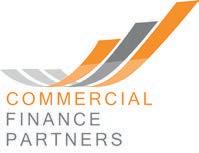
Commercial Finance Partners provides funding solutions for small to middle-market companies seeking non-traditional sources of capital and working capital. Through direct lending and consulting programs, Commercial Finance Partners is the one-stop shop for any non-bank financing need. Our product offering includes accounts receivable financing, SBA 7a and 504, asset-based loans, equipment financing, real estate loans, and other non-traditional loan products to fit almost any small to medium size financing request. We have an office in Boca Raton, Florida, where our direct lending operation is based. We additionally have satellite employees working in home offices in Boise, Chicago, New York City, New York, and Pittsburgh.
What makes your company stand out?
Commercial Finance Partners stands out from other organizations due to our approach to employee inclusion, creative workspace environment, ability to grow both individually and through a team environment, and strong benefits and perks for the team. We have a unique business model of both direct lending and consulting that covers all debt-based financing needs. Our “one stop shop” model for almost any small business financing needs allows our business development and underwriting based employees to continuously evolve their knowledge base. We’ve recently hired a business coach to help expand our employee engagement, innovation, and find out what we can do better- as well as expand on what we do great!
What specific programs do you offer to attract and retain talent?
Our goal when we founded Commercial Finance Partners was to create a business that would bring our employees together in an environment that would foster creativity, collaboration, and bringing the best out of everyone, across different roles and responsibilities. We blend employees and management to continuously provide education, support, and growth tools so that employees can learn from experienced veterans and have opportunities to carve out unique roles and responsibilities.
We champion creativity and allow employees to carve out paths of their own choosing within our business scope; for example, one of our business development officers created a niche for himself in healthcare after closing a few transactions. He now has adequate marketing and budget support to attend healthcare-related conferences, marketing events, and other tools used to generate business in this sector. We offer internships and some of our employees today started as interns. Since inception, we have had a 95% retention rate for employees who have started working for us- many of our employees were recent college graduates who have now carved out careers with us. We also champion diversity with both minorities and women represented with close to 50% of the employee headcount.
We are proud to offer some of the best benefits within our peer group; we offer health insurance, dental, vision, 401K (including matching), profit sharing, and more. We also try to incorporate a fun social aspect through optional group activities such as boat trips, golf events, promotion of organizational events such as SFNet participation, and other in-person events.
One of our favorite group past times is ordering lunch together every Friday.
What would you say are the best things about the industry you work in? What are the challenges?
The best thing about our industry is the creative approach to solving small business financing needs that often need a holistic approach to understanding the business we are assisting. We enjoy the ability to serve customers that are often unable to find a traditional solution, while still providing competitive programs that can meet the business needs. The challenges we face are that we are in a highly competitive environment, so it’s critical to evolve our company and evolve individually to make sure we continue to have a competitive edge amongst a growing field of unique players in our space. There are very few barriers to entry in our space so staying ahead of others through product offers, technology, and customer service are key for us to remain successful.
Contact information for prospective employees
Commercial Finance Partners
Darren Palestine, Managing Partner (561) 948-2329
1200 N. Federal Highway Suite #200 Boca Raton, FL 33432
CSC is the trusted partner of choice for more than 90% of the Fortune 500®, more than 90% of the 100 Best Global Brands®, and more than 70% of the PEI 300. We’re the world’s leading provider of global business administration and compliance solutions, specialized administration services to alternative asset managers, transactions involving capital markets participants in both public and private markets, domain name system management and digital brand and fraud protection, and corporate tax software solutions. Founded in 1899 and headquartered in Wilmington, Delaware, CSC prides itself on being privately held and professionally managed for more than 125 years. CSC has offices and capabilities in more than 140 jurisdictions across Europe, the Americas, Asia Pacific, and the Middle East. We are a global company capable of doing business wherever our clients are—and accomplish that by employing experts in every business we serve. We are the business behind business®.
What specific programs do you offer to attract and retain talent?
CSC’s company culture is based around our values of service, teamwork, tenacity, agility, and being genuine. Our people are hired for their individual expertise and skill sets, and trusted to do their jobs. We work in teams and are entrusted and encouraged to innovate.
We go beyond traditional benefits and offer an excellent Total Rewards package. Our benefits and perks include flexible work schedules and remote work options to support work-life balance, as well as international mobility; 401(k) match; health, life, vision, and dental insurance; paid time off and holidays as well as paid parental leave; tuition assistance for continuing education; thousands of online courses; and paid annual variable bonuses. We also support healthy teams through well-being and employee assistance programs, and activities around mental and physical health.
CSC has long been a proponent of diversity and inclusion—now we switch the focus to bringing a sense of belonging. Though we have many diverse employees, we’re one global company that encourages everyone to bring their best, most authentic selves to work every day. Our Diversity and Belonging program focuses on five pillars:
Diversified talent: Increasing the number of diverse candidates at the beginning of the pipeline.
People development: Increasing diversity in leadership at all levels.
#CSCGivesBack: Supporting causes related to historically marginalized communities as an extension of our philanthropic program.
Connection and celebration: Building colleague resource groups and celebrating our diverse heritages.
Shared commitment: Living Our Values while taking action to increase awareness, understanding, and appreciation of our differences.
We also reach a diverse talent audience and support professional development through our Community Ambassador Program and our Strategic Equality Alliance Mentoring program. Our colleague resource groups foster a culture of inclusion for all through education and workplace education for our worldwide workforce.
CSC also offers a robust summer internship program in locations around the world and partnerships with local organizations to support growing our team. Interns work alongside experts in their field of choice, getting hands-on, reallife experience in helping businesses run smoother and smarter. Our interns also work in teams to support a philanthropic cause of their choice during their time with us and go through diversity and belonging education.
What makes your company stand out?
CSC’s global headquarters and many of our other offices feature the latest technology and modern workspaces. Through technological advances, many at CSC can seamlessly work remotely in the U.S. and abroad, providing excellent work-life balance for our people.
CSC is also built on a foundation of giving back to our communities. Our people and teams help make our local communities better off tomorrow than they are today by fundraising, volunteering, and donating to causes that mean the most to them as part of our CSC Gives Back program. Individuals and teams across CSC supported more than 200 causes around the world last year.
What would you say are the best things about the industry you work in? What are the challenges?
Structured finance allows clients to leverage their assets into flexible financing solutions not offered by traditional financial institutions. No matter the industry or business, structured finance provides solutions that can adapt to the client’s needs, maximizing growth and enabling their success. A strong focus on building deep client relationships, balanced with strong risk mitigation, and compliance-driven approach are the keys to success in this industry.
Contact information for prospective employees
Learn more about what makes us different and how to join our team at cscglobal.com/service/careers.

Edge Capital is a family office-backed specialty finance company focused on providing working capital solutions to businesses looking for flexibility and to those that may not have access to traditional bank financing. Edge is free from the layers of approvals, one-size-fits all approach, and regulations of most financial lending institutions. Instead, we craft bespoke capital solutions that meet the unique needs of the businesses we work with, taking a holistic view of its challenges and opportunities. We are national in scope and sector agnostic, working with businesses in the manufacturing, distribution, wholesaling, consumer products, e-Commerce, undercapitalized industries and service industries. Our firm’s mission is to question and improve long-held industry practices, maximize flexibility for the companies we work with and partner with our borrowers through transitions both expected and unexpected. Our lending agreements and borrower relationships are not fraught with tripwires and financial covenants, designed for us to profit when our customers are in the most need. Instead, we pass along our edge to our customers, capitalizing on the flexibility of our capital source and growth mindset.
What specific programs do you offer to attract and retain talent?
At Edge Capital, we foster a flat culture that empowers and encourages every member of our team to question the status quo. Embracing a learning culture, our team engages in a bi-monthly book club to discuss a wide range of topics, from probabilistic thinking to recognizing unconscious biases. Our decision-making processes are grounded in decision sciences, and we use data to inform our strategies. We value a positive work culture and understand that people perform best when they are playing to their strengths. To determine that, as part of our hiring process we require candidates to take an assessment that evaluates their communication style and workplace motivators. We map their results against that of the existing team’s to determine if the candidate’s natural communication style and skill set aligns with existing team dynamics and skill gaps. Also, each manager at Edge has the responsibility of understanding the career aspirations and interests of their direct reports. As a fully remote organization, it is crucial that we are intentional in exposing our younger employees to different roles in the organization, enabling them to attain their future career plans. We do offer internships and hosted two interns this summer!
What makes your company stand out?
At Edge, our goal is to modernize asset-based lending. We believe in applying novel automation tools and data analytics into our procedures to achieve more objective results. Our team is comprised of industry veterans as well as professionals from other domains with objective prospectives to challenge industry norms. With over 50% female team members and an all-female middle-management team, our diversity equips us to better tackle problems from multi-faceted vantage points. We base decisions on objective factors rather than hierarchy, intuition, or one-off past experiences in an industry. We approach solving borrowers’ problems on a bespoke basis, tailoring our lending structures to the individual needs of businesses in order to maximize availability. We also actively seek to lend to undercapitalized industries including firearms, aircraft parts and CBD products. Our team is united in our
mission to lead innovation in the non-bank ABL industry. Also, a pillar of Edge is our strict “no jerks” hiring policy. Ask any Edge employee; we work hard and also genuinely enjoy interacting with each other.
What would you say are the best things about the industry you work in? What are the challenges?
A challenge in our industry is finding experienced people who also have a growth mindset, those excited by taking restrictions off the table to see what is possible. At a time where bank appetites for taking on new loans and the state of the US economy in general is uncertain, non-bank ABL will play an increasingly vital role in providing financing solutions to American businesses, helping to refuel our economic growth and retain jobs for countless people. When Edge evaluates a potential borrower, we look past industry biases and preconceived “old-school ABL” restrictions resulting in the ability for Edge to help a wider net of businesses thrive during this volatile time in history.
Contact information for prospective employees
Veronica Lamb Team Administrative Assistant VeronicaL@EdgeCL.com (484) 787-2618

FGI Worldwide LLC (“FGI”) is a global leader in the commercial finance industry, equipping small and medium enterprises with the tools they need to expand and grow. Our innovative solutions help clients meet their goals throughout the credit ecosystem, from financing to risk mitigation to data management through our three principal business units, FGI Finance, FGI Risk, and FGI Tech. With a worldwide presence, we offer an in-depth understanding of international trade and its complexities, arming businesses with resources to safely expand into new markets. Headquartered in New York City with offices across the US, Canada, Mexico and the UK, FGI delivers perfectly tailored and relationship-focused solutions for clients worldwide.
What specific programs do you offer to attract and retain talent?
FGI is a global organization, and it is our goal to foster a culture in which team members feel connected, respected, and heard, all over the world. We empower our employees to reach their full potential by encouraging them to seek new opportunities through internal movement between divisions and continuing to learn and develop their skill sets through educational opportunities and conference attendance. We recognize the importance of a strong company culture, whether in-office or remote. Our hybrid work model allows employees to work from home and in the office, providing flexibility and the chance for in-person collaboration. Regular team-building events including volunteering in the community, birthday celebrations, picnics, trivia games, and cooking classes, ensure time for connection outside of the workspace. We strive to stay competitive within the market with lucrative total compensation packages including medical, dental and vision insurance, 401K matching, paid time off, and more. The most celebrated of our activities is the annual company-wide summit, a meeting held at the beginning of each year in a different location, designed to bring our employees from around the globe together in one place. Paul Bower, Director, FGI Tech, based in London said, “FGI has an amazing sense of creative energy and purpose. Whether working with colleagues in the US, Mexico, Europe or the Middle East, everyone is looking to push the boundaries and find better ways of doing things. Nothing is off limits, and everyone is supported to try ideas and cut through challenges. This means we move quickly and have a real sense of ownership- if it makes sense, we go for it! I love that and with the range of skill sets, cultures and experience in the business, it makes for a powerful mix as well as a great place to work.”
Additionally, FGI offers summer internships for college students to gain work experience and introduction to the finance industry. FGI interns work in various departments within the organization, exposing them to different roles and responsibilities. We provide interns with the opportunity to explore the aspects of business that interest them the most, allowing them to have a more specialized experience during their internship.
FGI leadership believes that people are the most valuable asset within any organization. Our employees have diverse backgrounds with different stories to tell, all with a shared vision to continue to move FGI forward and provide exceptional
service to our clients. Our team is spread across four countries, and we make a significant effort to support our employees so that they always feel engaged. Based in New York, Underwriting Analyst Allie Hart said, “I started my first job out of college as a business development representative analyst for FGI and decided later that I wanted to pursue my interest in underwriting through an internal move to our underwriting department. At the time, this was a huge adjustment. Not only did the entire team at FGI support me transitioning roles, but they also assisted me through the entire process. I am now well into my role as an underwriting analyst, and FGI still continues to support me in every way possible.”
What would you say are the best things about the industry you work in? What are the challenges?
Our industry provides unique working capital solutions when traditional banking partnerships may not be an option. Structuring solutions can be challenging, as more creativity, flexibility, and diligence are required than for a traditional lending solution. However, the expansion and goal achievement made possible for businesses as a result, are more than worth the additional efforts. At FGI, we offer three products to add value for clients. We support a wide variety of industries and company types and enjoy the opportunity to partner with domestic and international businesses with complex financing and risk mitigation needs. Each day presents our employees with the chance to learn something new and an opportunity to provide remarkable service for our clients.
Contact information for prospective employees
Olivia Karcz Okarcz@fgiww.com

Great Rock Capital is an asset-focused lender that supports middle market companies across North America by maximizing liquidity and providing growth capital. We offer senior secured financing solutions that include flexible revolver, term-heavy, and term-only structures, which range in size from $15 million to $100 million. The firm has received significant capital commitments from its partners, a private equity business and a large institutional investor. We have a team of 30 professionals located across the United States and Canada.
What specific programs do you offer to attract and retain talent?
Great Rock has a highly flexible hybrid work environment. Our headquarters is a vibrant and refurbished industrial office space along the Saugatuck River in Westport, CT. We prioritize in-person team building gatherings throughout the year to celebrate our professional and personal successes, strengthen internal relationships, and to learn from one another. It is a priority to have fun together, so we encourage weekly lunches, happy hours, and friendly competitions that range from go-cart racing to cornhole tournaments to fantasy sports.
Great Rock is dedicated to building a team that includes best-in-class talent from different backgrounds, skill sets, and experience to enhance our corporate culture. We have onboarding plans for new hires at all levels to integrate them with the culture on day one. Great Rock also offers credit training, collaborating with both in-house subject-matterexperts and third-party providers to ensure that our up-andcoming talent is benefiting from certain aspects of training rigor that the larger commercial banks provide.
Interns have played an essential role in building our junior talent pipeline. The team currently has three full time employees that started their career at Great Rock as interns and are now key contributors to the Marketing, Underwriting, and FinOps functions.
What makes your company stand out?
Everyone has a voice. No matter your level or experience, each member of the Great Rock team makes an impact and contributes to our growth. The leadership team, which is comprised of over 40% women, operates with an open-door policy, and everyone on the team is more than willing to roll up their sleeves to dive into deals. Together, we have focused on creating a diverse team where each new hire makes the overall team stronger. Cultural fit and skills are equally important when evaluating candidates, and our hiring process is a team effort.
What would you say are the best things about the industry you work in? What are the challenges?
The best thing about the secured finance industry is the community. Real friendships are formed, and even though we compete for business, there is a sense of true happiness for others’ success. A close second would be learning so much about different companies, including production processes, their contribution to the business world, and the dynamics affecting each business. No two deals are the same!
Competition is always a challenge, but as a lender, there
is also the intellectual challenge of fully understanding the situation each borrower is facing and providing a fulsome solution. A highlight for the team is interacting with management and founders who are enthusiastic about their companies, and it creates an added drive to be able to provide financing and help them achieve their goals.
Contact information for prospective employees
Jenn Cronin Managing Director, Head of Marketing cronin@greatrockcaptial.com 203.557.6277
Dallas, TX | www.haversinefunding.com
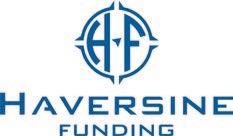
Headquartered in Dallas, Texas, Haversine Management is a specialty finance firm dedicated to helping commercial lenders grow. Since starting in 2018, we’ve become a trusted partner to factors and asset-based lenders, offering fast, flexible, and fair funding solutions tailored to their unique needs. Our innovative approach includes senior and junior lender finance lines of credit up to $25 million, as well as participation funding programs up to $15 million. We’re not just a capital provider - we’re an industry resource. In 2022, we launched Lead Line, a referral platform for our lending partners, and in 2023, we premiered the “In Focus with Haversine” podcast, where we delve into the trends and challenges shaping the specialty finance landscape.
What specific programs do you offer to attract and retain talent?
At Haversine, we believe that our people are our most valuable asset. We’ve built a culture that values not just hard work, but also collaboration, innovation, and individual growth. Here’s what we offer to attract and retain top talent:
Strong Values-Driven Culture: Our five core values – Show up for the game, be proactive and responsive, commit to a ‘No Surprises’ philosophy, achieve operational excellence, and create inspiring stories.
Flexible Work Arrangements: We understand the importance of work-life balance. Our team enjoys a mix of in-office and remote work, allowing for greater flexibility and autonomy.
Well-being Focus: We prioritize health and happiness. From gym memberships and healthy (and not so healthy) snacks to team-building events and social gatherings, we work hard so we also want to have fun along the way.
Comprehensive Benefits: We offer a competitive benefits package, including full health insurance coverage.
Growth Mindset: We’re committed to continuous learning and development. We provide training, mentorship programs, and encourage employees to explore new skills and tackle new challenges.
Entrepreneurial Culture: We encourage employees to explore ventures of interest to them that fall within our model. Many of our most innovative initiatives are a result from the open creativity of our team.
What makes your company stand out?
Innovative Model: We exclusively finance lenders, fostering trust and collaboration.
Flexible Funding Options: Our diverse range of funding solutions caters to lenders at all stages of growth.
Deep Industry Expertise: Our team has a wealth of experience as lenders ourselves, allowing us to understand our clients’ needs intimately.
Innovative Spirit: We embrace cutting-edge technology to streamline processes and enhance decision-making.
What would you say are the best things about the industry you work in? What are the challenges?
Secured finance is a vital tool for businesses needing access to capital. Lenders use assets like unpaid invoices or inventory
as collateral, providing funding when traditional banks cannot provide loans. Haversine employees take a unique pride in providing a service that assist “mom and pop” businesses across the United States.
Haversine’s “why” is simple: we saw a gap in the market where lenders themselves struggled to secure the funding they needed to support growing businesses. They too sometimes need more funding than a traditional bank can provide. We fill that gap with flexible financing solutions tailored to the lender’s needs. By empowering lenders, we indirectly support countless businesses across the country, fostering economic growth and creating jobs.
While the specialty finance industry faces challenges like increased regulation and competition, we see growth opportunities as banks tighten credit with even more innovation initiatives underway in this niche segment. Interesting times are ahead, and we’re excited to play a part in it all.
Contact information for prospective employees
If you’re passionate about finance, innovation, and collaboration, we’d love to hear from you. Reach out to Jeff Whaley, CFO, at jwhaley@haversinefunding.com or Gen MerrittParikh, President, gmerritt@haversinefunding.com to explore career opportunities at Haversine.
Cleveland, OH | www.huntington.com

Huntington Business Credit (“HBC”) specializes in senior-secured, asset-based lending solutions for middle-market businesses and large corporate clients with sales revenues of $50 million and greater, providing working capital and term loan facilities to support acquisitions, growth, recapitalizations, cyclical needs and more. HBC solutions provide greater liquidity for companies with high leverage, customer concentrations, operating issues and cyclical/seasonality tendencies. Our national team is comprised of experienced asset-based lenders, with each having an average of more than 25 years of industry experience. HBC is a division of Huntington National Bank, headquartered in Columbus, OH.
What specific programs do you offer to attract and retain talent?
Huntington Bank is built on the diversity of our team members — the one-of-a-kind talents, backgrounds, and work styles that each of our colleagues brings to their roles. We believe this so strongly that we’ve chosen inclusion as a guiding principle. At every level of our organization, our commitment to inclusion demonstrates an understanding and acceptance of diverse points of view, abilities, backgrounds, and experience. To support our commitment to fostering an inclusive and engaging work environment for all, our colleagues came together and created Business Resource Groups, Inclusion Councils, and Communities of Practice.
If you’re just starting in your career and eager to take on an exciting new role, Huntington is here for you, ready with the leadership and coaching you need to focus on creating the career you’ve always wanted. Just bring us your can-do attitude, strong customer service skills, and ability to problem solve and we’ll provide you with opportunities to do meaningful work.
As an ambitious student looking to gain valuable hands-on experience, Huntington’s 12-week paid internship program is structured to give students from rising sophomores to postgraduates a unique experience tailored to their level of education. Internships address numerous areas of our business, including Finance, Audit, Risk, IT, Analytics, Operations, and more. As a Huntington intern, you will be a valued member of our team and will experience meaningful job-specific projects and shadowing opportunities. In addition, interns are offered Huntington-specific trainings and lunchand-learns with industry experts and will attend events with Huntington leaders, including the Executive Leadership Team and CEO. In line with Huntington’s core value of Service Heart, interns are also given the opportunity to volunteer within local communities. Huntington interns have the potential for full-time employment after graduation. Huntington posts intern positions in late Summer/early Fall with a goal to fill the positions by the end of the calendar year. Discover why Vault named us to its list of the 100 Best Internships in its 2023 rankings.
At Huntington, “looking out for people” is at the heart of what we do. And we know that you’ve got a life full of people you care about, goals at work and home, plans for the future –and the weekend. We’re here to make life better with rewards that are anything but basic. We have all the benefits and perks
you’d expect from a strong, fast-growing company - Competitive benefits, PTO, and health and wellness programs to name a few.
What makes your company stand out?
Welcome is a word we take seriously, and it applies to our work culture as well as the desire to meet each customer’s specific needs. Our team of highly committed, engaged, and passionate colleagues works in an open, high-energy, and highperforming environment that embraces both teamwork and individual excellence. Here, you’ll quickly discover that we’re a people-first, digitally powered bank. Everyone – no matter their position – plays a key role in our mission to look out for people, every day, in every banking way.
What would you say are the best things about the industry you work in? What are the challenges?
The asset-based lending community is a tight-knight group of professionals, which provides for lifelong client and peer relationships. Huntington Business Credit is a financial partner with clients nationwide and has worked with companies in all parts of their business life cycle. Meeting business owners and learning about different types of businesses is exciting. Providing creative solutions that allow clients to achieve their goals is rewarding and helps build strong community commitment. We understand that a strong financial relationship is essential for our clients to operate their businesses successfully and prosper. HBC is a talented and experienced group of 90 professionals and is continuing to grow.
Doug Winget, EVP, The Huntington National Bank; President, Huntington Business Credit | doug.winget@huntington.com | (216) 515-0789
Joe Kwasny, SVP, Managing Director Business Development | joe.kwasny@huntington.com | (216) 515-0754
New York, NY | Global: Amstelveen, Netherlands | www.home.kpmg.com
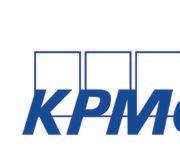

KPMG is one of the world’s leading professional services firms, with more than 75 offices and 40,000+ employees and partners throughout the US. Providing innovative business solutions and Audit, Tax, and Advisory services to many of the world’s largest and most prestigious organizations, our firm’s size and strength make us agile and responsive to changing trends. By helping other organizations identify risk and grasp opportunities, we’re driving positive, sustainable change for our clients, our people, and society at large.
What specific programs do you offer to attract and retain talent?
At KPMG, we inspire confidence in our clients by empowering our people and their success. Our award-winning culture enables personal and professional development, collaboration, integrity, ethics, diversity, and inclusion. KPMG has numerous programs that serve as powerful differentiators from our competitors and help create an environment we can all be proud of. ‘Heads Up Thinking’ and ‘Flex with Purpose’ are programs that are part of our everyday culture. Heads Up Thinking represents a mindset and orientation that helps define who we are and what we stand for. Flex with Purpose embraces the new way of work, offering in-office, remote, and hybrid experiences based on role. Another differentiator is our firm’s commitment and efforts to build Diversity, Equity, and Inclusion (DEI) into our culture. This strategic imperative is rooted in our vision to offer a diverse workforce where our professionals can reach their fullest potential in an inclusive work environment. Developing the best and most diverse talent, providing access to meaningful opportunities, and creating an environment where everyone can thrive and grow professionally is our goal. Accelerate 2025 is the firm’s commitment to retain and attract underrepresented talent as their employer of choice and provide the opportunity to reach their full potential.
In addition to our culture and values, KPMG is committed to investing in our employees’ career development. The firm not only offers extensive learning and development opportunities, but also a comprehensive internship program. KPMG internship programs are a terrific way for college students to learn business skills, build their networks, and get real-world experience before graduation. We also offer a Global Internship Program offering college students the opportunity to work abroad to gain a global perspective of KPMG.
What makes your company stand out?
In addition to our culture, values and development opportunities, KPMG has taken a strong position in developing an ESG (environment, social and governance) strategy and investing in this initiative. KPMG is helping organizations understand and baseline their current performance, set ESG goals, evaluate both the financial and ESG impact of potential initiatives and develop roadmaps for improved ESG financial value. KPMG Firms have designed their service to put ESG at the core of company’s operations. KPMG has built a dedicated ESG Advisory team that is helping to develop responsible and sustainable strategies, business models, operations, and investments.
What would you say are the best things about the industry you work in? What are the challenges?
Andrea Pipitone Beirne, Partner, Advisory, Deal Advisory & Strategy at KPMG says “When it comes to the secured finance industry, the best part is the deep relationships developed with lenders and borrowers. In addition, there are a wide variety of lenders and industries where secured finance is utilized. Many clients have become friends and my relationships have allowed me to become an extension of the financial institution with the borrowers. The working relationships we have established with the borrower’s management team ensures they are comfortable reaching out with any questions throughout the year. Different lenders work in different industries on deals of different sizes and varying levels of complexity. Even though I have been in this business for 25 years, I am always learning something new from either an industry or jurisdiction perspective.”
If you are interested in learning about current opportunities at KPMG, please reach out to Andrea Beirne at abeirne@kpmg.com.
The KPMG name and logo are trademarks used under license by the independent member firms of the KPMG global organization.
General Disclaimer: The information contained herein is of a general nature and is not intended to address the circumstances of any particular individual or entity. Although we endeavor to provide accurate and timely information, there can be no guarantee that such information is accurate as of the date it is received or that it will continue to be accurate in the future. No one should act upon such information without appropriate professional advice after a thorough examination of the particular situation.
Some or all of the services described herein may not be permissible for KPMG audit clients and their affiliates or related entities.
Baton Rouge, LA | www.mcglinchey.com
Celebrating its 50th anniversary in 2024, McGlinchey Stafford is a premier mid-sized business law firm offering services in more than 30 practice areas through a highly integrated national platform. McGlinchey attorneys leverage bold innovation, diverse talent, and leading-edge technology across our powerful network to serve clients at the local, regional, and national levels. With 160 attorneys licensed in 34 states, McGlinchey operates from 17 offices nationwide. The firm currently has 25 attorneys and 10 practice areas recognized in Chambers U.S.A. and Chambers FinTech 2024, 74 attorneys recognized by Best Lawyers and 47 practice areas recognized by Best Law Firms. In 2023, McGlinchey became Mansfield Certified. McGlinchey is ranked among the top law firms in The American Lawyer’s Diversity Scorecards in the Women in Law and LGBTQ+ categories and is ranked nationally among the top 30 firms in 4 categories of the Best Law Firms for Diversity by Vault.
What specific programs do you offer to attract and retain talent?
McGlinchey Stafford is committed to creating a workplace that values diversity, inclusion, and support. We offer a range of programs to attract and retain top talent, emphasizing equity and overall employee well-being.
Our Midsize Mansfield Certification ensures at least 30% of women and other historically underrepresented lawyers are considered for hiring, promotions, and leadership roles. We celebrate our diverse workforce, with 65% of employees and 43% of attorneys being diverse. Additionally, 50% of our Associates and Of Counsel, 56% of our Senior Professional Leadership team, 40% of our Policy Committee members, and 60% of our Office Managing Attorneys are diverse.
We have launched several initiatives to support our employees, including Uplift, our Women’s Initiative, which provides networking, connection, and collaboration opportunities for women attorneys. Our McGlinchey PRIDE and McGlinchey Bold affinity groups foster a welcoming environment for LGBTQ+ attorneys and attorneys of African, African American, Black, and Caribbean descent, respectively.
In addition to our pledge to advance equity in the profession, we work diligently on multiple initiatives to create an inclusive work environment. These efforts include:
Generous benefits, including student loan assistance for all employees, pregnancy and parental leave, infertility benefits, gender reassignment benefits, coverage for domestic partners, and pet insurance
Remote work flexibility and regular, ongoing, transparent communication from leadership regarding everything from the state of the firm to operational updates encouraging connection
McGlinchey’s Wellness Works initiative and the Ministry of Fun promote mental, emotional, physical, and financial well-being through programs that encourage connectivity, education, and camaraderie.
McGlinchey offers a Summer Associate program for aspiring legal professionals with valuable experience and mentorship opportunities. Since 2008, we have participated in the Leadership Council on Legal Diversity (LCLD) 1L Scholarship Program for first-year law students.
McGlinchey stands out for its collaborative and innovative culture. From the beginning, we have welcomed lateral hires at all levels, encouraging new ideas that shape our firm’s culture and business. This openness to innovation and creative thinking allows our attorneys to take calculated risks and establish their own paths.
Our #McGlincheyForward initiative focuses on change, culture,
empowerment, growth, and gratitude, driving our efforts to create a more inclusive and supportive workplace. Launched in 2021, this initiative is designed to address the rapidly changing legal industry, our clients’ needs, and our internal operations. It encompasses various programs and strategies that promote professional development, diversity, and employee well-being, ensuring we stay ahead of industry trends and maintain a forward-thinking approach in all aspects of our operations.
Professional development is a cornerstone of our firm. We provide associates with the tools necessary for their professional growth through a competency model that outlines core abilities at each level of experience. This model, combined with regular guidance and constructive feedback, helps associates develop progressively within the firm. Our “lunch and learn” and “coffee break” trainings and firmwide business development training luncheons further enhance our associates’ skills and knowledge, ensuring they are well-equipped to succeed.
Leadership at McGlinchey is another key differentiator. We have undergone significant succession planning to develop multigenerational, diverse, and dynamic leadership firm wide. Our leaders are integral to our firm’s success, driving our inclusive culture and ensuring we deliver quality service to our clients.
McGlinchey’s mid-size platform is a differentiator for employees and attorneys – we offer a small-firm culture while providing the national footprint and resources of a larger firm.
What would you say are the best things about the industry you work in? What are the challenges?
The secured finance industry fosters a dynamic and engaging environment. One of the best aspects is the opportunity to work with a diverse array of clients, from large corporations to small businesses, helping them secure the necessary financial resources for growth and success. This variety makes the work intellectually stimulating and rewarding, allowing us to make a tangible difference to our clients’ businesses.
However, the industry also presents challenges. The complex and ever-evolving regulatory landscape requires continuous learning and adaptation. Staying current with these changes is demanding but essential for providing the best-in-class service that McGlinchey is known for.
Contact information for prospective employees
Please email recruiting@mcglinchey.com or visit www.mcglinchey.com/careers.
Norwalk, CT and Chicago, IL | www.mhccna.com

Mitsubishi HC Capital America is a specialty finance company that has extensive capabilities throughout North America with its affiliate, Mitsubishi HC Capital Canada, combining a consultative approach and expansive digital platform to help organizations of all sizes accelerate growth. With $7.5 billion in assets and more than 800 employees, the company is the largest non-captive, non-bank commercial finance company in North America. Mitsubishi HC Capital America partners with equipment manufacturers, dealers and distributors, as well as end customers, in providing customized financial solutions, including transportation and commercial finance. Dedicated to improving the communities where it operates, the company is committed to the United Nations Sustainable Development Goals.
What specific programs do you offer to attract and retain talent?
What sets Mitsubishi HC Capital America apart is our deep commitment to the clients and communities we serve, and each other.
When it comes to our clients, we see ourselves as partners, taking a consultative and collaborative approach to creating customized solutions that meet their unique needs. We are driven by an innovative spirit, and we leverage technology and our deep expertise to effectively address business challenges and opportunities.
We believe the best measure of a great place to work is how employees feel working for the company. We are committed to providing them with a supportive, team-oriented culture where all contributions are valued, all voices are heard, and everyone feels welcome and comfortable to be themselves. In fact, diversity of thought is so important to us that we leverage Insights Discovery, a world leading personality profiling tool, to help employees gain deeper insights into themselves and their colleagues to foster respectful and supportive interactions.
Our employees also benefit from a robust benefits package, benchmarked this year to be in the 85th percentile across nearly 6,000 companies. They enjoy best-in-class benefits, including medical, dental, and vision coverage, a 401(k) plan, flexible spending and employer-seeded health savings accounts, life insurance, disability benefits, paid time off, an employee assistance program, tuition reimbursement, sales trainee programs, a rewards and recognition program, ongoing training and career development opportunities, fitness and stress management programs, and more.
Celebrating successes is an essential part of our culture. We regularly recognize achievements and enjoy time together through sports, volunteer activities, meals, and social events. Our interest forums, including our Employee Engagement Committee, provide opportunities for employees to network, develop, and learn.
What makes your company stand out?
Corporate-wide, Mitsubishi HC Capital America is committed to contributing to a prosperous and sustainable future and maximizing the potential of assets for each and every customer. It is our mandate, and that of our parent company, to innovate throughout the organization to make the business more efficient, both internally and externally.
Tactically, this commitment is demonstrated through developing and maintaining a culture of innovation in every operation, every employee and every customer interaction. We have created both a Sustainable Development Group to help customers meet their sustainability goals and a dedicated Digital Transformation Group.
Team members are located across the United States and Canada, offering a combined, multi-national approach and skillset. In recognition of the groundbreaking sustainability work our team has accomplished, the company was recently recognized as a top ESG innovator in the equipment finance industry.
To continuously innovate for both internal and external clients, our Digital Transformation team is working with an evolving roadmap that impacts experiences at every level, from sales and credit underwriting to integration of third-party apps, operations and funding.
Our digital transformation strategy includes a focus on productivity and cost efficiency while delivering a better customer experience. Through partnering with select service platforms such as Salesforce and Microsoft, we are integrating customized third-party apps to develop a more robust customer solution. And as we move forward, we intend to continue building on our AI strategy with future enhancements designed to improve not only the customer experience, but also operational efficiencies.
For us, innovation is imperative to succeed and grow. The resulting agility, nimbleness and flexibility are what lead us to create the tailored, customized customer financing solutions for which we are known.
What would you say are the best things about the industry you work in? What are the challenges?
A significant advantage of working in the commercial finance industry is the opportunity to drive noticeable change and business growth for our clients. Mitsubishi HC Capital America provides customized financing solutions in a lending environment that requires creative problem-solving. We enjoy the ability to serve clients that are looking for solutions beyond traditional lending and helping them achieve further business growth.
Of course, like any industry, there are challenges. Things like staying at the forefront of market and technology trends and economic changes will always be ever present. However, adapting and rising to the challenge with a growth mindset will continue to spur change, innovation and valuable strategic initiatives.
Contact information for prospective employees
To learn more about working for Mitsubishi HC Capital America, visit our careers page at www.mhccna.com/en-us/careers.

Morgan Lewis is a global law firm providing comprehensive corporate, transactional, litigation, and regulatory services in major industries, including energy, financial services, healthcare, life sciences, retail and ecommerce, sports, technology, and transportation. We focus on immediate and long-term goals with our clients, helping them address and anticipate challenges across vast and rapidly changing landscapes. Our global depth reaches across North America, Asia, Europe, and the Middle East with the collaboration of more than 2,200 lawyers and specialists who provide elite legal services for clients ranging from established, global Fortune 100 companies to enterprising startups.
Our transactional finance practice represents lenders, borrowers, and debt investors in transactions. We handle syndicated, club, and bilateral facilities; leveraged and investment-grade financings; cash flow and asset-based transactions; first- and second-lien deals; senior secured and unsecured mezzanine financings; and front-end transactions. We also guide clients through bankruptcies, workouts, restructurings, and debtor-in-possession (DIP) financings.
What specific programs do you offer to attract and retain talent?
Morgan Lewis provides law students, practicing lawyers, and legal professionals with abundant opportunities to share their knowledge and passion for the law with clients and colleagues. Morgan Lewis’s culture emphasizes inclusion by ensuring that all lawyers get professional and legal training, mentoring, and access to promotion. We focus on promoting diverse legal teams that contribute various perspectives to better solve clients’ most complex challenges.
We provide access to numerous programs for legal and non-legal personnel. Our firmwide initiatives include, but are not limited to:
Pro Bono Program engages our attorneys in serving the public good. We provide more than 1,800 pro bono clients with the highest possible level of service annually. Our focus is on helping economically disadvantaged individuals and families in communities where we live and work. We also provide legal services to nonprofit and nongovernmental organizations whose mission is to serve vulnerable communities. Our lawyers use their skills to ensure access to justice for people who otherwise could not afford it.
ML Community Engagement harnesses the collective power of collaboration, commitment, and community to create meaningful social impact through charitable giving, volunteerism, and sustainability initiatives.
ML Well promotes health and wellness through intellectual, physical, emotional, and occupational well-being. ML Well aims to enable our lawyers and professional staff to find what works best for them through various programs such as meditation, yoga, educational programs, and movement challenges.
ML Women creates opportunities for women to come together around a shared industry or practice. Whether it is hosting a roundtable for women featuring speakers from Morgan Lewis, our clients, and external experts, or leveraging our vast network of successful women alumnae to discuss leadership and the power of women consumers, we are proud to support women leaders in business.
ML Affinity Networks provide lawyers with formal and informal support, mentoring, and fellowship focused on creating community and bringing enhanced opportunities to everyone. We have several active and popular lawyer networks/affinity groups for those who support and/or identify with specific populations. These groups
educate and engage our workforce through heritage celebrations that highlight the unique history, achievements, and contributions of our diverse lawyers.
We offer internships for professional staff, and a summer associate program for students currently in law school. Our summer and trainee programs give an immersive experience, providing real-life insight into the workings of an established, broad reaching law firm. Each office creates a unique program of events, giving law students a taste of life and work in that office. Visit www.morganlewis.com for details.
What makes your company stand out?
Morgan Lewis is one of the largest law firms in the world led by a woman. Under Jami McKeon’s leadership, we have grown into a principal global provider of legal services, assisting clients around the world. Every person at Morgan Lewis is treated with respect, supported with extensive resources and training, and exposed to a broad range of experiences. We believe that hard-working, dedicated, skilled lawyers and professionals come from different backgrounds, with various needs and career aspirations.
What would you say are the best things about the industry you work in? What are the challenges?
Many leaders in secured finance, both at our firm and our clients, are great mentors and care deeply about the development of talent in the pipeline. Working in this role, one is exposed to transactions across different industries day in and day out, which can be challenging, but is extremely valuable experience, as it provides opportunities to learn about a variety of businesses and how they operate. Our finance lawyers also act as business advisors to their clients. Clients look to us to create practical solutions that are mutually beneficial to both sides involved in transactions.
Contact information for prospective employees
Hillary Maropis Director, Attorney Recruiting hillary.maropis@morganlewis.com
| +1 (215) 963-5076
Garden City, NY, New York City, NY and Fort Lauderdale, FL | www.moritthock.com

Moritt Hock & Hamroff LLP (MHH) is a full-service firm with over 90 attorneys and offices located in Garden City, NY, New York City and Florida. Leading national and regional financial institutions in the secured lending industry have relied upon MHH’s Secured Lending Practice group to draft and negotiate complex loan agreements, syndication and capital markets transactions, workouts, structured specialized loan programs and portfolio sales, secured by a broad range of asset classes. MHH has also leveraged its experience as a nationally recognized Secured Lending practice, along with its Equipment and Transportation Leasing practice, in a broad range of lender finance transactions, with recent transactions, including, but not limited to, representing a specialty finance division of a regional bank in the disposition of a portfolio of vehicle and equipment leases and loans in which the seller retained the servicing, and representing a lender in the issuance of an approximately $75,000,000 revolving line of credit to a national motor vehicle finance company secured by a pledge of special units of beneficial interest in the borrower’s titling trust.
What specific programs do you offer to attract and retain talent?
MHH is committed to cultivating a diverse and inclusive environment that supports and celebrates the diverse voices of its professionals, staff and client base. By mere example, MHH is a signatory of the New York City Bar Association’s Statement of Diversity Principles and participates in its Diversity Fellowship Program. MHH also participates in the Long Island Law Student Diversity Internship Program. To help further MHH’s diversity and inclusion efforts, MHH created, and Julia Gavrilov, a partner of the firm, chairs, its Women’s Initiative program, which provides the women of MHH with insight, opportunity and a platform to assist in their professional development and advancement, while working toward eliminating gender bias within the legal and finance industries. Ms. Gavrilov, on behalf of MHH, regularly speaks on the topic of diversity and inclusion at webinars and conferences. MHH measures its commitment and progress in promoting DE&I within the firm and in the legal community by, first and foremost, fostering an environment that encourages, supports and celebrates diversity and inclusion and promotes the advancement of diverse individuals. In doing so, MHH has, among other things, implemented a robust internal mentorship and sponsorship program, in which senior mentors advise and provide guidance to junior employees, including those senior mentors who are in a position to sponsor such employees. MHH’s commitment to DE&I is a core value of the firm, and MHH understands and appreciates that creating a diverse legal team to represent its client base will lead to better decision-making, work product and results.
What makes your company stand out?
True to its “Strength in Partnership” guiding principle, one of MHH’s distinguishing features is its commitment to keeping its clients knowledgeable and informed, which is a vital component of its partnership with clients. The attorneys in MHH’s Secured Lending, Equipment & Transportation Finance department frequently contribute to MHH’s Secured Lending blog with articles on important legal topics, trends and the latest developments in the law, which are often published in leading leasing and finance publications and subsequently emailed to its clients. MHH provides its client base with continued access to MHH’s Secured Lending
blog posts and other published articles on its website. MHH also regularly circulates newsletters and/or alerts to its clients, in which important legal topics, trends and developments are highlighted. Moreover, MHH offers complimentary “Lunch and Learn” sessions to its clients to further educate them on, among other things, legal trends and developments in the leasing and finance industry.
What would you say are the best things about the industry you work in? What are the challenges?
One of the most rewarding aspects of practicing law within the secured finance space, particularly on the transactional side, is that it enables you as an attorney to work together with, rather than opposite to, counterparties toward a common goal of successfully closing a transaction while still protecting your client’s interests. Moreover, attorneys on front-end transactions are often tasked with negotiating and documenting the terms of the deal. Doing so not only hones their skills as attorneys, but also as businesspeople, which helps provide an even better understanding of their client’s business and what matters most to them. The keen business acumen demonstrated by MHH’s attorneys, coupled with their extensive legal experience, is a value add to its client base in the secured finance industry.
Contact information for prospective employees
Moritt Hock & Hamroff LLP
400 Garden City Plaza, 2nd Floor Garden City, New York 11530
Tel: (516) 873-2000
Attn: Lisa Markus, Human Resources
Email: lmarkus@moritthock.com

With a team of 25 employees, nFusion Capital is a leading commercial lender supporting the cash flow and liquidity needs of entrepreneurs, small businesses and middle market companies in the U.S. and Canada. Our services include traditional factoring, asset based lending, and term loans ranging from $500,000 to $25 million. We serve clients across a wide range of industry verticals, with a specialty focus on the construction sector. Headquartered in Austin, TX, a major center of entrepreneurial activity, we also have sales offices nationwide.
What specific programs do you offer to attract and retain talent?
Everything we do is driven by our core values; from the companies we work with to the employees who join our team. One of our core values is “Own Your Own Experience.” We as a company do not define the culture or the workplace – our employees are responsible for establishing and nurturing the type of environment they desire and take ownership of that. Simply put, as a team we are better together. We enjoy collaborating with each other, focusing on where each of us excels, and challenging team members to be their best. Each employee receives a training budget per year to use on external training, online webinars or conferences.
Located in Austin, we have a casual dress code and a laidback atmosphere. From the very beginning, each employee could choose the work environment where they would be the most effective and happy – in the office, work from home, work at a co-working space, or a mix of all of the above. Additionally, we have an open and flexible office layout that fosters collaboration – no offices or closed doors. Every desk has the same technology setup where anyone can plug in and be ready to work. We have floater desks for a number of people who do not live in Austin but choose to come in and work here on an intermittent basis. We have a very competitive benefits package with a 401(k) and employer match, plus 100% paid health coverage for employees and 50% for their families. Lastly, we have a free catered lunch every day in the office.
We are the optimistic lender. We always start from a position of “Yes, we can” and work aggressively on behalf of our clients to help ensure their success. We believe in our clients and work to find creative solutions for them. That positivity and creativity does not just affect the salespeople; it flows throughout the organization and keeps employees engaged.
In addition, we were founded by a team of entrepreneurs, so our attitude is naturally more focused on problem-solving and innovation. We have a unique perspective because we were business owners before we became lenders and saw first-hand the challenge of not being able to grow due to a lack of cash flow. Everyone here has the freedom, and the responsibility, to be innovative, whether in developing a financial solution for a client or recommending a new software system that increases efficiency. Any employee can produce an idea and take responsibility for it. One more point that makes us different is our construction focus. To best serve our construction clients,
we hired people with more construction industry experience than financial experience. We can teach the finance aspect – but understanding the construction industry’s nuances is crucial.
What would you say are the best things about the industry you work in? What are the challenges?
The specialty lending industry has always been a niche, but it continues to grow and evolve which keeps it challenging and exciting. While factoring is one of the oldest forms of finance in the world, it still plays a major role in supporting businesses and helping them grow. What’s more, the culture of our industry is very inclusive and collaborative. While we may be competitors with other lenders in certain situations, we spend a great deal of time collaborating and supporting each other. We can always pick up the phone and ask other lenders how they approach a certain aspect of the business or situation, and they are happy to help.
Contact information for prospective employees
Recruiting top talent in our industry is always our highest priority. Contact Jason Lippman, CEO, at (512) 775-1987.

nFusion Capital is a team of optimists, starting from a position of “yes we can” and aggressively working on behalf of our customers with a range of working capital solutions.
We are a team of nimble, responsive entrepreneurs who were business owners before we were lenders, giving us a unique perspective on business finance.
We’re excited to form long-term relationships with our clients, remaining available to answer questions, solve challenges, and focus on their success. That’s how we can deliver decisions in hours, funding in days, and relationships for life. If that sounds like a team culture you’d thrive in, say ‘yes’ to a career at nFusion Capital and come work for the business growth experts.
Call Jason Lippman at 512-775-1987 and let’s talk!
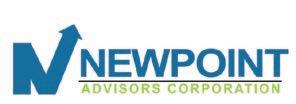
Newpoint Advisors Corporation is a North American financial advisory firm dedicated to improving troubled and financially underperforming businesses with revenues of $5-50MM for a fixed fee and on a fixed timeline. Since 2013, Newpoint has recovered $1,131,000,000 in debt and saved 13,080 jobs.
Our tool kits provide a tangible deliverable to assist in monitoring and predicting cash flow. We’re driven by satisfying client needs and working together to build a stronger community and economy. We are the first and only nationally based, consistent backdrop for lower middle-market companies in trouble. We’re passionate about collaborating with clients to solve problems at an affordable cost and in an empathetic manner. Using a tech-enabled and structured approach, we deliver tools and recommendations that maximize profitability, pay back creditors, and save jobs.
What specific programs do you offer to attract and retain talent?
Newpoint provides its employees with a variety of benefits, including a 401K match, four medical plans with different deductibles, and voluntary vision, dental, short-term and longterm disability insurance. The company pays the majority of the premium for these plans. Furthermore, Newpoint’s current vision and dental provider, also provides a robust Tuition Benefits Rewards Program for those seeking higher education.
At Newpoint, we value education and prioritize it in our company culture. Twice a year, we hold in-person training events to improve our understanding of the industry and promote ongoing growth. Additionally, we invest significant time each month in team training and have implemented an LMS system covering culture, administration, marketing, and projects. Our culture is further enhanced by the ability to work from home as needed, access to a dedicated sales coach, and collaboration with experienced colleagues across various industries and markets. At Newpoint, we strive to be our best in order to do our best.
What makes your company stand out?
Newpoint operates with a One-Team mindset, fostering a supportive and entrepreneurial atmosphere among our talented and skilled staff and where we can. Our team confidently delivers unparalleled opportunities to small businesses, resulting in significant growth and success. Despite having a national presence with multiple offices and staff, we foster a supportive environment that values entrepreneurship at Newpoint. We adhere to a structured approach while also encouraging our team to continuously seek out better delivery and cost-saving methods and options.
What would you say are the best things about the industry you work in? What are the challenges?
In today’s world, it can be difficult to distinguish oneself from others. However, Newpoint has managed to do so by concentrating on serving lower middle-market businesses within the $5-50MM revenue range. By having this specific focus, we are able to make a significant difference to a crucial aspect of the US economy - small to medium-sized businesses. This particular market is frequently overlooked by conventional consulting firms.
Our aim is to offer distressed companies a new path forward in a manner that benefits the greatest number of people. Assisting these businesses and preserving jobs is one of the most rewarding aspects of working in our industry. However, one of the challenges we face when working with our clients is finding the best solution to their problems. At times, the answer is not something they want to hear, especially for entrepreneurs who have invested a great deal of time and effort into their work. In such situations, our primary objective at Newpoint is to ensure a smooth transition and create an environment that allows our team members to deliver those results while growing professionally.
Contact information for prospective employees
For more information, contact Tim Stone at tstone@newpointadvisors.us or visit our website www.newpointadvisors.us.
NY | www.otterbourg.com

Otterbourg offers clients a unique combination of legal insight and practical solutions. We are known for our integrity, stability, market knowledge and business sense, and with a home office based in New York – as well as some attorneys working in other locales –we have been the firm of choice for over a century for an elite group of leading financial institutions and commercial businesses on deals of all sizes, ranging from the millions to the billions.
The firm has particular expertise in:
Asset-based lending, junior lien lending, general corporate lending, venture and growth lending, international finance and leveraged and structured finance.
Representation of committees of fiduciaries and unsecured creditors in large and complex bankruptcy reorganization cases throughout the United States.
Representation of individual institutional lenders, bank groups, commercial enterprises, hedge funds and other secured and unsecured creditors in complex, high-profile litigation.
General corporate and securities matters, including mergers and acquisitions, public and private offerings of debt and equity securities, and debt and equity restructurings.
Real estate matters, including real estate acquisitions, sales, joint ventures, 1031 tax deferred exchanges, real estate development, financing and leasing across different asset classes
Trusts and estates law, including the development of sophisticated estate plans to transfer wealth while minimizing tax implications.
What specific programs do you offer to attract and retain talent?
We offer a competitive summer associate program for law students with a very selective hiring process that enables us to attract and retain talented individuals at the beginning of their legal careers. During the summer, these law students experience what it is like to be a first-year lawyer at Otterbourg, with important, substantive work assigned accordingly. By reviewing the work product produced by the summer associates and observing them in professional interactions, including with firm clients, the firm is able to identify who we think will be a good match for our culture and who meets the high professional standards required by the firm – and we have a terrific history of holding onto the talent we start out with.
Our young associates are exposed to clients right away. We see this as part of the maturation process and another reason why people feel fulfilled here at Otterbourg. In addition, good work is recognized and rewarded.
We like to think of our firm as an extended family. We have many social events throughout the year to foster relationships in addition to the time we spend working together. We are proud of the fact that during COVID, we did not lay off or furlough one attorney or other employee. The partners were very concerned about the well-being of all those that the firm employs and kept everyone on – even those who could not perform their jobs remotely.
What makes your company stand out?
At our heart, we are a creditors rights firm, known internationally for our solid lending and creditors rights practices. For several decades, we have also served as co-general counsel of Secured Financing Network (SFNet), which gives us authority and credibility among other firms. With a nod to our deep bankruptcy roots, we are often referred to as the “cradle of bankruptcy judges,” with five Federal Bankruptcy Judges, including two Chief Judges, having worked at the firm. Most of our financial transaction attorneys are cross-trained with bankruptcy law expertise, so deals are documented in a manner to best protect our lending clients in the event that the borrower becomes financially distressed.
With very little turnover, we have consistency with the institutions we represent. This also allows us to be more sensitive to the needs of our clients, and encourages long-standing relationships with our clients.
What would you say are the best things about the industry you work in? What are the challenges?
Working in the secured finance industry gives one an entrée into all other industries and businesses across the spectrum, both domestically and internationally. With every deal, whether it’s a frontend loan transaction, a workout or restructuring, you never really know what you’re going to get. We have in-depth exposure to every industry (including retail, manufacturing, pharmaceuticals, staffing, logistics and energy, to name a few) as well as the myriad of issues that could come up, all within the context of secured transactional-based work. We also have the luxury of being at the top of the list of firms that specialize in secured lending work.
One of the biggest challenges we see in our industry is the turnover of personnel. Some of it is a function of cost-cutting, but regardless of the reason, losing experienced people with valuable institutional knowledge – as with any other industry – can be challenging for institutions.
Contact information for prospective employees
Otterbourg P.C.
230 Park Avenue
New York, NY 10169-0075
Tel: 212-661-9100
Fax: 212-682-6104
Email: info@otterbourg.com
Atlanta, GA | www.phrd.com
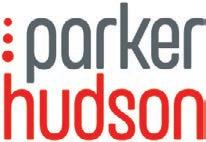
Parker, Hudson, Rainer & Dobbs LLP is a mid-sized law firm based in Atlanta, Georgia, with an integrated collection of boutique practices dedicated to helping our clients excel. The firm has represented and served clients across the country in the areas of finance, bankruptcy, commercial litigation, real estate, corporate law, and healthcare for more than 40 years and continues to grow and develop its expertise and new talent in all areas.
Our Commercial Finance team has focused on, and carved out a significant reputation in, representing clients in the financial services industry, particularly in asset-based lending, cash flow lending, syndicated loan facilities (representing agents and lenders), healthcare finance, lender finance, multi-currency cross-border loans, acquisition financing, DIP financing, factoring, franchise finance, and trade financing in transactions ranging in size from $5 million to over $1 billion.
What specific programs do you offer to attract and retain talent?
Attorneys are attracted to Parker Hudson because of our entrepreneurial culture, sophisticated practices, and people. We pride ourselves on having a positive and inclusive culture where everyone works hard to serve our clients and enjoys spending time with each other. We offer our junior attorneys early opportunities to substantively interact with clients and work directly with partners on all of their matters.
Attorneys joining the firm are assigned mentors with the goal of a seamless assimilation into the firm’s culture. The firm often sponsors internal gatherings, whether in the form of trainings or social events to promote and foster collegiality. The firm also has a robust diversity and inclusion program, which regularly offers training and programming. We are proud to have achieved Mansfield Rule Certification Plus for 2021-2023, where the goal is to boost the representation of diverse and female lawyers in law firm leadership by broadening the pool of candidates considered for these opportunities. Each summer, the firm sponsors a class of summer law students and regularly offers full-time employment opportunities at the firm upon graduation from law school.
What makes your company stand out?
Parker Hudson operates at a sophisticated level with high-profile clients. Our unique culture and core values have been nurtured for more than 40 years. Our goal is to provide clients with the highest quality legal representation with unsurpassed client service.
Many of our attorneys have left larger firms in favor of a more entrepreneurial culture and close working relationships. We have a deep bench of finance lawyers, including some of the most prominent senior and junior women in secured finance. We believe our firm offers the right combination of experience, expertise, and efficiency to be the perfect fit for our clients.
We further distinguish ourselves by investing from day one in the careers of our new attorneys. We pride ourselves on providing substantive legal training to our attorneys on a variety of topics that affect our clients. We are known for our dedication to expanding and constantly refining our attorneys’ legal knowledge but also providing training to our clients and other industry groups.
What would you say are the best things about the industry you work in? What are the challenges?
The secured finance industry is fairly close-knit and that creates a special camaraderie among clients, attorneys, and other industry players. It is common to form long-term relationships with people that span the course of decades. We are fortunate to work with many bright and dedicated people and work together to achieve a successful result for our clients. Our industry also is unique because no two transactions are the same and that ensures that our work stays novel and interesting. The industry also serves many start-up and middle market businesses, and it is a great feeling to help those businesses continue to grow and succeed.
One challenge each of us faced when joining this industry is a learning curve. It takes time, energy, and attention to detail to learn a new language. Another challenge arises from our constant preparation for the “worst-case scenario”– it can be difficult to balance closing a transaction efficiently, while at the same time appropriately addressing all areas of risk. Despite these challenges, the good news is that many such obstacles are nullified, at least in part, by the satisfaction of a successful closing.
Contact information for prospective employees
Bobbi Acord Noland, Partner – (404) 420-5537
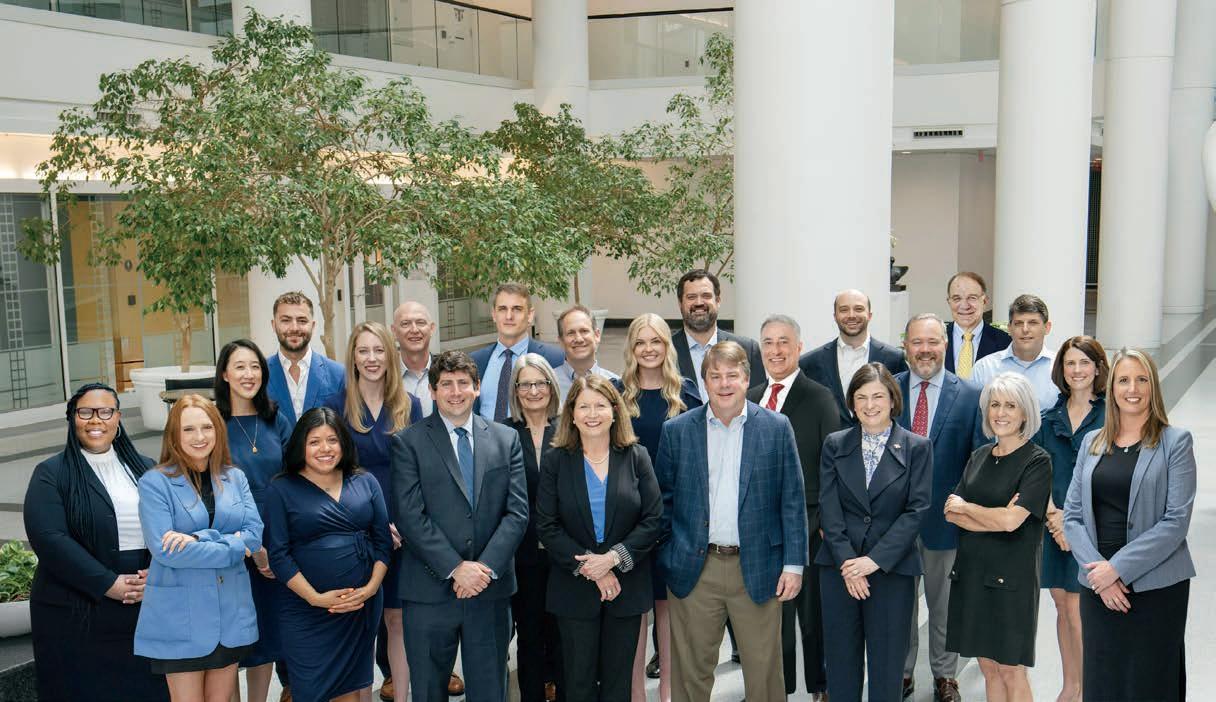
For more than 40 years, Parker Hudson has been dedicated to providing exceptional legal representation and unparalleled client service in sophisticated commercial lending transactions. The firm has an entrepreneurial spirit and collaborative environment that fosters close working relationships internally and with its clients and other industry professionals.
Parker Hudson has extensive experience in asset-based lending, cash flow lending, syndicated loan facilities, healthcare finance, lender finance, acquisition financing, DIP financing, cross-border loans, and factoring. The firm also is recognized for its depth in complex restructurings and bankruptcies.
With a deep bench of finance and restructuring lawyers, Parker Hudson offers the ideal blend of experience and efficiency to meet our clients’ needs and exceed their expectations.
New Orleans, LA | www.republicbc.com
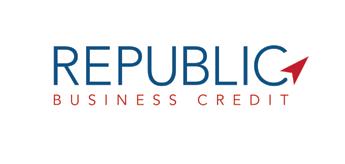
Republic Business Credit is a market-leading commercial finance company supporting the working capital requirements of private equity and entrepreneurial-owned businesses. Republic provides asset-based lending, ledgered lines of credit, traditional factoring, direct to consumer loans and Fast AR Funding. Republic partners with clients to rapidly grow businesses, start-ups and companies experiencing recoverable distress.
Republic was acquired by Renasant Bank in 2022, which is one of the Southeast region’s strongest financial institutions with roughly $17.5 billion in assets. The partnership with Renasant Bank opened to Republic a vast network of resources and relationships that have exponentially increased partnership opportunities. Republic is headquartered in New Orleans with additional offices in Chicago, Los Angeles Houston and Atlanta.
What specific programs do you offer to attract and retain talent?
Our employees are challenged and supported throughout their careers whether they come to us with a formal education and an MBA, or through our SFNet industry groups.
Among the specific highlights of our workplace experience:
Incentives for growing: In addition to our competitive salary and benefits package, we don’t hesitate to offer bonuses, raises, cost-ofliving adjustments and incentives for a job well done.
Benefits: We offer a suite of additional benefits that include life insurance, vision and dental for staff and their families.
Diversity, equity and inclusion: We have been recognized by industry groups for our commitment to a diverse and inclusive workforce. Our team members have created employee-led discussion groups, reflections, book and movie clubs and a company culture that strengthens our workplace environment. Republic has also gained expanded access to DEI programs after its acquisition by Renasant.
Community commitment: We support numerous charity and philanthropic outreach and support, including Toys for Tots, the Alzheimer’s Association and New Orleans-based, Son of a Saint. We also encourage our employees to participate in volunteer activities by providing extra company time off to accommodate volunteer opportunities.
Educational reimbursement: We provide a framework to supplement our internal training and empower our employees to continue learning throughout their careers, including external education opportunities, trainings, MBAs, executive education, industry workshops and various certificates.
Project-based learning: With a presence in several major cities, our team members experience a variety of high-level, independently led project work. We’re not a top-down company, and we’re proud of that.
Team building: Our annual holiday party, usually held over a weekend with “plus ones” welcome, is an all-expenses-paid, relaxing getaway that helps us renew bonds and build friendships. We also host quarterly outings, happy hours, team meetings and dinners.
Rotational programs: High-potential new hires work across several departments during their early years to provide alignment with their development and career goals.
Flexible schedules: We value and encourage work-life balance. Our employees work a hybrid schedule that includes in-office and athome workdays. We also are generous with time off, especially for any unexpected emergencies or personal needs.
What makes your company stand out?
Our talent. As a trailblazer in the industry, Republic boasts a dynamic and incredibly knowledgeable leadership team. Our executives have over 90 years of combined experience in the secured finance field.
Our staff is comprised of a diverse and talented team of professionals. We believe in constantly fostering a growth mindset in our employees. We encourage our employees to attend as many professional development opportunities as possible. We know that an investment in our employees is an investment in our future.
Republic also boasts six “40 Under 40” winners, two “Top Women in Secured Finance” and a “Top Women in Asset Based Lending” winner by the Secured Finance Network and ABF Journal, respectively. Most recently, William Kemp, SVP, Business Development Officer, was selected as a SFNet “40 Under 40” honoree.
Our team leaders also volunteer in positions that further our industry. Our company president, Robert Meyers will step in as SFNet’s president — the youngest president to hold the role — in October. William Kemp serves as the SFNet Houston Chapter president and as a member of the National Young Professionals Committee.
What would you say are the best things about the industry you work in? What are the challenges?
Republic attracts a unique type of finance professional. Our team shares a common goal to support small businesses and entrepreneurs. This is one of the greatest things about our industry and our individual company.
Secured finance allows us to take a hands-on, client-focused approach to our work, which stands out from other industries, even within the financial sector. This creates an industry that is filled with creative, motivated and talented professionals from a wide range of backgrounds, all with the common goal of seeing our secured finance community succeed as a whole.
In terms of challenges, our industry can be overshadowed by the actions of others. The well-publicized collapse of Silicon Valley Bank last year, for example, cast a cloud over our broader industry, which can lead to regulatory issues that can be expensive and cumbersome. Fortunately, we are able to navigate those issues with our customers directly due to our trusting, hands-on relationships.
Contact information for prospective employees
Robert Meyers, President | Email: rmeyers@republicbc.com
At Republic, we approach each of our team members’ career goals with the same voracity and growth mindset we use to grow the company. As a result, more than 50% of our employees have been with Republic 5 years or more.

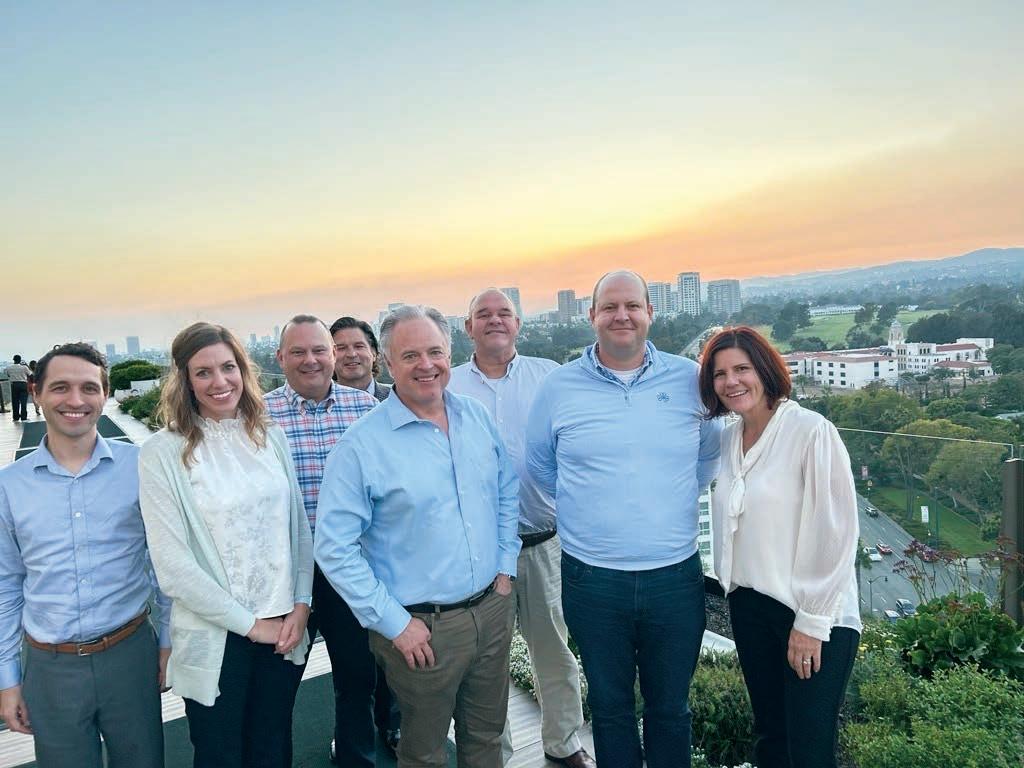

We proudly offer a competitive benefits package that includes:
Financial compensation options: bonuses, cost-of-living adjustments and more
Professional development opportunities




Flexible schedules, including a hybrid work schedule


Republic Business Credit is a market-leading commercial finance company supporting the working capital requirements of companies nationwide Republic partners with its clients to provide up to $15 million in senior credit facilities to rapidly growing businesses, start-ups and companies experiencing recoverable distress.
The company is proudly headquartered in New Orleans, with additional offices in Los Angeles, Chicago, Houston and Atlanta

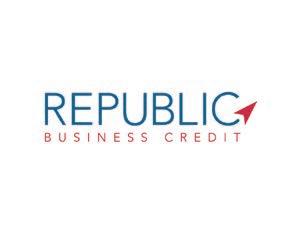
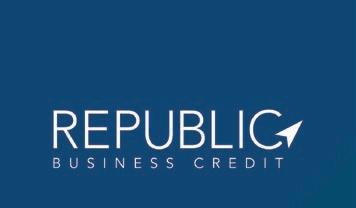










REV Capital is a leading provider of factoring and cashflow financing in North America. We support thousands of businesses with invoice management, credit underwriting, and collection services. By offering dedicated support and transparent access to the factoring process, we help our clients grow their operations and become leaders in their industries.
The REV banner strives to reimagine the future of cashflow, with a refocused mission statement: To Reinvent Factoring. At our core, REV Capital operates under a set of six dynamic guiding principles to help achieve this goal: Question Everything, Set Industry Standards, Promote Education, Invest in New Technology, Reach New Markets, and Frictionless Funding. With most working from our headquarters in Woodbridge, Ontario, REV Capital has just under 100 employees located across North America.
What specific programs do you offer to attract and retain talent?
We strongly believe in creating an inclusive, supportive, and empowering workplace culture where employees can thrive. Every year since 2022, REV Capital has been named a Great Place to Work™, along with being listed on the Best Workplaces for Inclusion, Best Workplaces in Financial Services, and Best Workplaces in Ontario lists. REV Capital was also ranked 7th on the 2023 list of Best Workplaces in Canada.
Last year, we launched three new internal committees.
Our Diversity, Equity & Inclusion Committee encourages employees to share and educate others about any part of their identity that is important to them. For example, the committee hosted a ‘Passport & Pastries’ themed event at our head office, introducing a variety of foods from different cultures, promoting cultural awareness and encouraging mutual understanding and respect within our workplace community.
Our Newcomers to Canada Committee focuses on providing support and a sense of community for employees who are new to the country, aiming to welcome them and make them feel at home. This year, the committee hosted a Q&A to learn about an employee’s journey arriving in Canada from the Philippines in 2021 and receiving their permanent residency in January 2024. The employee shared their experience applying for a Post-Graduate Work Permit, navigating the Permanent Residency Express Entry Pool, and securing a nomination from a Provincial Nominee Program.
As REV’s employee base is over 50% women, our Women in Finance Committee aims to bring women together to share their experience in a traditionally male-dominated industry. The committee is a safe space for employees to listen, voice their thoughts or experiences, and motivate one another.
We host social events, in-office celebrations, free lunches, quarterly movie nights, and Slack challenges with various prizes ranging from basketball tickets to cash prizes. Our state-of-the-art facility is equipped with a gym, showers, a spacious lounge with a pool table and video games, and a wellness and prayer room.
We offer RRSP and 401K contribution matching, tuition and training reimbursement, and compassionate leave in cases of family emergency. Earlier this year, we were incredibly proud to launch our new maternity and bonding leave top-up program, ensuring maximum support and flexibility for all new parents at REV.
We’re continually finding ways to support the well-being and success of our people as we strive toward even greater achievements in the future, together.
What makes your company stand out?
We pride ourselves in our ability to deliver transparency, flexibility, and excellent service to all our clients.
In doing so, we refrain from using misleading fine print or hidden fees. With our 24/7 accessible portal, our clients have full visibility into every transaction. There are no surprises or hidden costs because we believe in building trust through clear and open communication.
Recognizing the diverse needs of our clients, we refuse to take a one-size-fits-all approach that is all too common within the finance industry. Understanding that each business has its unique challenges and requirements allows us to service a wide range of industries. Whether our clients need funding weekly or daily, prefer wire transfers or cheques, or require support in the morning or evening, we have the flexibility to accommodate their preferences.
Most importantly, we prioritize building genuine relationships with our clients. You won’t find big call-centers or automated emails when working with our teams. We build personal connections to better understanding our clients’ financial goals.
By embracing these principles, we ensure that our clients receive personalized attention and support throughout their journey with us and establish a strong foundation for connecting our clients with financial solutions specifically tailored to their unique businesses and industries. We take pride in our ability to truly understand our clients’ needs and go the extra mile to meet and exceed their expectations.
What would you say are the best things about the industry you work in? What are the challenges?
Invoice factoring dates back thousands of years and still stands as one of the most flexible forms of cashflow financing today. Since it relies on the creditworthiness of a company’s client, it’s a perfect solution for rapidly growing companies who need access to capital but may not qualify for a traditional bank loan. Factoring helps them scale their business faster than ever before, paving the way for them to become leaders in their industry.
We fund more than $3 billion a year and service 1400+ companies across industries, including, but not limited to, transportation, staffing, and manufacturing. The more businesses we reach, the more experience we gain for ourselves and our team members.
Contact information for prospective employees
To join our team, please reach out to our Director of HR, Susan Himelfarb, at (855) 879-1511, visit our careers page at revinc.com/ careers, or email us at careers@revinc.com. We look forward to meeting you!

Rosenthal & Rosenthal is the leading factoring (international, recourse & nonrecourse), asset-based lending, purchase order financing, and DTC inventory financing firm in the United States. Founded in 1938 by Imre J. Rosenthal, the firm is now led by the third generation of the Rosenthal family. Loan size ranges from $500,000 to $30MM, serving small to middle-market clients. As a privately held company, Rosenthal is committed to providing personalized service and flexible lending to clients across a broad range of industries. With offices in New York, California, Georgia and North Carolina, Rosenthal’s team of nearly 210 commercial finance professionals covers the U.S. from coast to coast and nearly everywhere in between.
What specific programs do you offer to attract and retain talent?
Rosenthal offers a broad range of professional development and training opportunities for our employees, from various continuing education and certification programs via industry associations, to our own internal training programs. We are fortunate to have an incredibly talented team of professionals at Rosenthal, and our goal is to make sure each one can learn, broaden and enhance their understanding of our industry and of our clients’ businesses. We listen closely to our employees and evolve our programs to ensure we offer the most relevant and meaningful development opportunities. We make it a point to promote from within, whenever possible, ensuring that our invaluable talent is recognized for their contributions to the firm and to our clients. We have an open mind to remote work and have embraced a hybrid work environment that offers many of our employees the option to work from home if their job responsibilities allow for it.
What makes your company stand out?
After more than 85 years in business, Rosenthal is still a family-run business. Our independence allows us to be more flexible and to offer more personalized attention, not only to our clients but also to our employees. In fact, many of our colleagues often say that our company culture resembles that of an actual family. Perhaps that’s why so many have called Rosenthal home for decades, with many of our employees celebrating their 10th, 15th, 20th and even 30th anniversaries with the company this year. Every individual at Rosenthal is treated equitably and with respect, which is reflected in our generous benefits packages, our flexible work environment and our focus on developing and promoting talent from within the organization.
What would you say are the best things about the industry you work in? What are the challenges?
It’s a difficult time right now with economic instability, inflation concerns, rising interest rates and supply chain slowdowns that are affecting nearly every business and organization, regardless of sector or geographic location. However, having successfully ridden out virtually every economic cycle over the
past eight decades--from market upswings to downturns and recessions—we also know there can be opportunities amid the challenges. Our team at Rosenthal is adept at helping our clients weather the challenges they face. We pride ourselves on being creative and nimble when it comes to finding solutions, so our clients have the working capital and financing they need to keep their businesses running smoothly. What could be more meaningful than working in an industry filled with smart, talented, thoughtful professionals and partners who make it their mission every day to problem solve and help countless entrepreneurs and business owners address their most pressing challenges?
Contact information for prospective employees
Michele Bracellari Vice President, HR Manager MBracellari@rosenthalinc.com
(212) 356-1720








Celebrating its 50th anniversary, Solifi is a leading global organization delivering a solid financial technology foundation automotive, equipment, wholesale, and working capital (including ABL and factoring) finance firms. Our mission is to reshape finance technology by bringing together proven solutions into a singular powerful technology platform designed to help you protect and scale your business. Solifi’s technology platform supports banks, independents and captive finance firms of all sizes, streamlining daily operational functions, supporting risk mitigation, and enhancing customer experiences. With dual headquarters in Milton Keynes, U.K., and Minneapolis, MN, U.S., Solifi’s 600+ team members span across the globe, covering the geographical areas of North America, Europe and Asia-Pacific (APAC). For more information, please visit www.solifi.com.
What specific programs do you offer to attract and retain talent?
The collaboration between our employees and our customers, alongside our expert knowledge in both our technology and the secured finance industry, are what drive Solifi’s success. Recognizing our employees’ skills and hard work enables this success to continue, and we reward them by offering a competitive employee value proposition and opportunities for development. We pride ourselves in having a diverse, global team that boasts a wide range of insights and talent.
Solifi employees enjoy include flexible remote and office work arrangements, medical and dental coverage, life insurance, retirement savings plan, employer-paid financial advice paid time off, etc. We regularly host fun, morale-boosting in-person events hosted by our social committee such as team dinners, sporting events and leisure activities, as well as initiatives such as peer-to-peer recognition programs and employer-branded merchandise giveaways.
Additionally, we offer self-learn platforms and a wide range of L&D opportunities, to support the growth and nurture the talent of our team. With unlimited online training from leading providers, our employees have access to more than 4,000 courses on topics such as technology, leadership, wellness and foreign languages.
Our employees in India also benefit from our year-long Freshers Training Program, which opens entry level trainee positions to recent engineering graduates, giving them invaluable real-world experience at the start of their career.
The team at Solifi is comprised of an impressive mix of employees, benefiting from both long tenure and more recent hires, allowing our customers and team alike to access valuable experience and fresh perspectives. We now serve over 300 secured finance companies globally thanks to the expertise and diversity of our team.
Our company culture encourages innovation as we invest and engage with our team to build proven technology solutions that support our customers’ long-term strategy. As we continue to adapt to changing trends, our teams work closely to collaborate on and execute projects creatively.
What would you say are the best things about the industry you work in? What are the challenges? (write this as if you are speaking to someone unfamiliar with secured finance)
The secured finance industry is always evolving, and in a digital age, consumers want control over their accounts. Technology is becoming smarter, more secure, and offers a high level of automation. To ensure
our customers have the best experience, and that we keep up with regulatory changes, we continually review our processes, setting both ourselves and our customers up for success.
Solifi’s solutions are designed for use in the secured finance segment (credit products secured by collateral), similar to a core system for the retail banking segment. We offer an essential system for originating and processing consumer and commercial credit products for a variety of financial firms, including banks, credit unions, and financial institutions.
In 2024, Solifi celebrated its 50th anniversary. There are three reasons why we have stood the test of time and provide ongoing support and partnership to so many businesses in the secured finance industry: Innovative: We focus on continuous innovation, taking advantage of new technologies and staying current with new trends. This posture enables us to stay ahead of the curve, offering competitive, ground-breaking solutions. Throughout the years, we have captured the needs of secured finance institutions by futureproofing our customers’ businesses. Our adaptable solutions grow as our customers grow and adapt to a constantly changing market.
Market Focused: Solifi has always been resilient through times of adversity, reacting quickly and efficiently to changes in the economic and regulatory landscapes to enable our customers to remain compliant and competitive. Our resilience, drive and passion for our customers’ success have empowered us to tackle and manage risks, while continuing to support our customers with solutions that futureproof their business.
Customer Focused: Close collaboration with our customers, some with us for over 20 years, has been key to our success. Our many forums, Summit, ECAB, TAC, User Groups, Working Groups, all provide regular opportunities for our customers to engage and partner with us.
Challenges within the industry that arise from changing market trends, customer behaviors, and regulations are embraced by Solifi, as we are confident in our experience, expertise, and most importantly, our technology.
Contact information for prospective employees
Please visit our careers page at solifi.com/careers to see our current job opportunities.
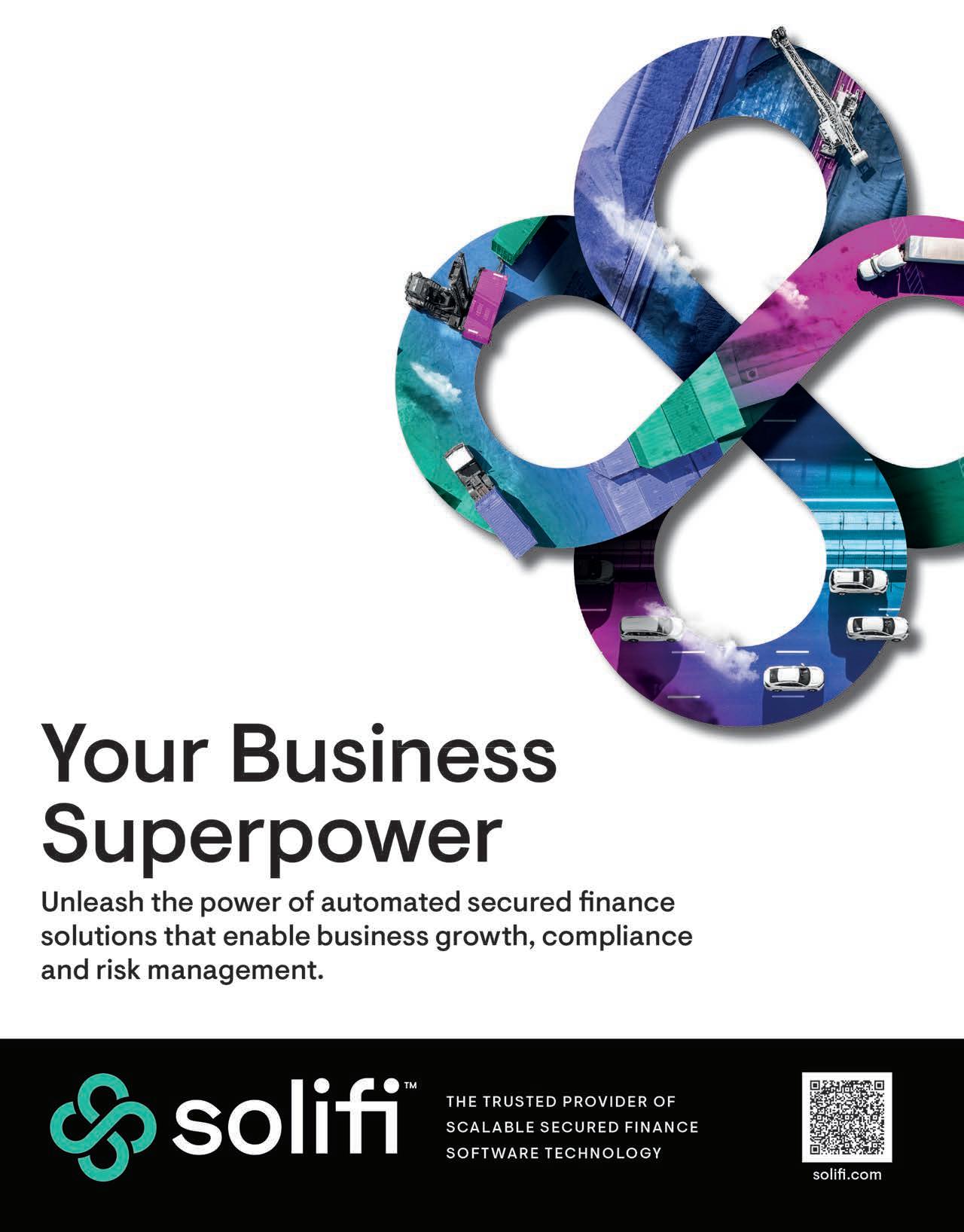
New York, NY | www.thompsoncoburn.com
Total Commitment – to our clients, to our colleagues and to our communities – is the beating heart of Thompson Coburn. We are a values-driven law firm with 400+ attorneys doing sophisticated, impactful work in more than 50 areas of law. With offices in Chicago, Dallas, Los Angeles, New York, St. Louis, Southern Illinois, Washington, D.C., and Birmingham, we serve clients across the U.S. and around the world.
Our work is interesting and meaningful. Thompson Coburn transactional attorneys lead complex deals for some of the country’s largest corporations and financial institutions. Attorneys from our team have served as president of the National Bar Association, the Association of Commercial Finance Attorneys, and currently, the American Bar Association.
What specific programs do you offer to attract and retain talent?
At Thompson Coburn, our passion for excellence lives in our colleagues. Our vibrant combination of bright, energetic and diverse lawyers, paralegals and staff working together in an open, supportive, and friendly atmosphere is a major attraction of our firm.
We integrate and support all our attorneys and give them the tools they need to deliver value to clients, expand their practices, and pursue leadership opportunities inside and outside of the firm. Our long-established mentorship program is a cornerstone of the firm’s culture. Connecting attorneys with seasoned practitioners and firm leaders is an imperative, and fosters meaningful mentorship relationships on a formal and informal basis. Attorneys of all levels receive hands-on training in the practical aspects of practicing law, through our internal CLE programs and real time exposure to practice. In addition, associates are given extensive networking and business development opportunities, such as involvement in ABA Committees, Secured Finance Network conferences and informal networking events involving clients and prospective clients.
Thompson Coburn offers a comprehensive summer program available to qualified law students from across the country. We give our summer program top priority, and invest significant resources to train and prepare summer associates for their careers following law school. Making a meaningful difference in our communities is part of who we are as a firm, and we place a high priority on pro bono work and community engagement.
For 15 consecutive years, Thompson Coburn has earned a perfect score in the Human Rights Campaign’s Corporate Equality Index (CEI) and Best Places to Work Survey. The firm has also received “Gold Standard Certification” from the Women in Law Empowerment Forum for supporting and promoting women to the highest levels of firm leadership. We are one of just 240 firms in the country that have been certified under the Mansfield Rule 6.0, a national initiative to increase the representation of diverse lawyers in law firm leadership.”
What makes your company stand out?
We want associates and partners to be engaged and fulfi lled in all facets of their lives. We understand that a balanced life of work, family and social commitment is essential to long-term success. We don’t just talk life satisfaction; we create and live it.
We focus on aligning talent and dedication with meaningful, engaging and challenging work. This focus is a key to developing our professionals to the highest possible level and giving our clients energized, focused and enthusiastic service providers.
Our firm provides formal and informal programming to increase a sense of inclusion, expand organizational knowledge, sustain a positive work environment and contribute to personal and professional growth.
What would you say are the best things about the industry you work in? What are the challenges?
A major challenge of our financial industry practice is also a major benefit, in that our representation of lenders and other deal participants requires an understanding of an array of industries and the diverse issues related to financing companies in such industries. Each day, new and challenging issues come across our desks, including those related to due diligence, documentation, negotiations, syndications, acquisitions, restructurings and insolvency events. We’ve structured, negotiated and documented substantially all types of financing transactions, including acquisition financings, debtor in possession financings, working capital financings, factoring and receivable purchase facilities, real estate lending (including construction lending), merchant cash advance financing, and special asset services. As a full service, national law firm, we have the expertise in our ranks to tackle the issues common to most (if not every) every transaction —ERISA issues, environmental concerns, employment law issues, tax and regulatory implications — as well as more deal-specific issues, such as land use regulations, state and federal economic incentives and green building considerations.
Contact information for prospective employees Emily M. Berttucci, Chief Legal Recruiting Officer (312) 580-2305 | eberttucci@thompsoncoburn.com
























Y O U P R O V I D E F I N A N C I N G F O R B U I N E O P P O R T U N I T I E S B U S I N E S S O P P O R T U N I T I E S W E
Y O U P R O V I D E F I N A N C I N G F O R








Represent 9 of the 10 largest banks in the United States AT THOMPSON COBURN WE:
Have a successful record of advising lenders on deals of varying sizes and complexities
Offer a network of national offices LET US SHOW YOU THE THOMPSON COBURN DIFFERENCE.
Provide best-in-class innovations that drive value for clients


Wells Fargo & Company (NYSE: WFC) is a leading financial services company that has approximately $1.9 trillion in assets. We provide a diversified set of banking, investment and mortgage products and services, as well as consumer and commercial finance, through our four reportable operating segments: Consumer Banking and Lending, Commercial Banking, Corporate and Investment Banking, and Wealth & Investment Management. Wells Fargo ranked No. 34 on Fortune’s 2024 rankings of America’s largest corporations. In the communities we serve, the company focuses its social impact on building a sustainable, inclusive future for all by supporting housing affordability, small business growth, financial health, and a low-carbon economy. News, insights, and perspectives from Wells Fargo are also available at Wells Fargo Stories. Additional information may be found at www.wellsfargo.com.
What specific programs do you offer to attract and retain talent?
We have several programs and internships to build a high-performing and diverse talent pipeline:
The Wells Fargo 2024 internship class came from more than 250 public and private schools across the country.
In partnership with the OneTen Coalition, Wells Fargo launched a Career Development Program, an in-house diversity-focused program that supports alternative career paths into skills-first job opportunities.
Wells Fargo Talent Acquisition partners source talent from two-year historically black colleges and universities (HBCUs), community colleges, diversity organizations, alumni networks, Wells Fargo Employee Resource Networks (ERNs) and employee referrals.
Glide-Relaunch USA is a highly competitive talent program at Wells Fargo for experienced professionals looking to rejoin the workforce after a career break of two or more years.
Alternative pipelines-hiring program focuses on hiring neurodiverse talent into Wells Fargo’s technology roles.
Building Organizational Leadership Diversity (BOLD) programs within each of our lines of business sponsor high-potential, diverse talent.
Military hiring programs include the Veteran Employment Transition (VET) program, Boots 2 Banking, Military Apprenticeship program, Corporate Fellowship program, and the Homefront Heroes Hiring (HHH) program for military spouses.
We offer a comprehensive set of benefits and variety of resources and programs designed to help Wells Fargo employees boost and maintain their physical, emotional, and financial well-being, such as:
Diverse benefit plans and programs
Included Health; 24/7 health care concierge
Mental health benefits; up to 12 free virtual and/or in-person
counseling sessions
Caregiver resources; adult and child back up care
Adoption, surrogacy, and donor reimbursement program
Health and wellness dollars
401(k) matching plans
Legal services
Leadership and career development
Functional training programs
Tuition reimbursement
Stock purchase plan
Discounts on financial products, home mortgages, and more
Additionally, Wells Fargo launched a Site Leader program that focuses on employee engagement, site and property improvements, and local community outreach. In 2023 the program hosted 350+ successful events with over 40,000 attendees. The program has put on a spectrum of fun and enriching events to engage employees while at work, including on-site BBQs, ice cream socials, Career fair and networking events, volunteer builds (on-site and off-site), food truck days, guided yoga, well-being screenings and benefits fairs, and many more.
What makes your company stand out?
Since its founding in 1852, Wells Fargo has developed a reputation for being a great place to work. We are committed to being an attractive employer for all and to advancing diversity and social inclusion.
Wells Fargo offers an inclusive environment where every employee knows and feels that they are valued. Success comes from inviting and incorporating diverse perspectives. Wells Fargo employees enjoy working together – across lines of business and geographies. Our global presence makes it possible to collaborate with co-workers around the world.
Wells Fargo’s comprehensive financial services capabilities, scale, and geographic reach present opportunities for employees to grow and expand their skills across a variety of industries and functions.
What would you say are the best things about the industry you work in? What are the challenges?
Asset Based Lending is a unique business group at Wells Fargo, as we work across industry types, which gives our employees the opportunity to learn about many different industries. We work with companies of all sizes, through the various stages of their life cycles. Our deep expertise allows us to support our clients as they navigate both stable and distressed situations, helping them find the right solutions and building lasting relationships.
Contact information for prospective employees https://www.wellsfargo.com/about/careers
Alphen aan den Rijn, Netherlands | www.wolterskluwer.com




Based in Alphen aan den Rijn, the Netherlands, Wolters Kluwer, is a global leader in information, software solutions and services for professionals in healthcare; tax and accounting; financial and corporate compliance; legal and regulatory; corporate performance and ESG. It helps its customers make critical decisions every day by providing expert solutions that combine deep domain knowledge with technology and services. Wolters Kluwer reported 2023 annual revenues of €5.6 billion. The group serves customers in over 180 countries, maintains operations in over 40 countries, and employs approximately 21,400 people worldwide. Its Compliance Solutions business is a market-leading provider of risk management and regulatory compliance solutions and services to U.S. banks, credit unions, insurers and securities firms.
What specific programs do you offer to attract and retain talent?
A 188-year market leader that keeps innovating and collaborating like a startup, Wolters Kluwer makes a difference every day. In 2024, Wolters Kluwer was recognized as one of the most trustworthy brands in the Netherlands based on research conducted by RepTrak, a leading reputation research company. In addition, it continuously strives for an inclusive culture, reflected by Wolters Kluwer becoming an official member of Workplace Pride and being named one of America’s Best Employers for Women by Forbes .
As a global employer, Wolters Kluwer offers competitive compensation and benefits in the many countries where it has employees. Its global talent management program includes training and development opportunities designed to incorporate growth and learning into daily work life, with access to resources like LinkedIn Learning. The well-being program offers a variety of resources and programs; the Employee Assistance Program provides on-demand, free access to counselors, clinicians, and assistance with personal financial and legal matters; and flexible work arrangements help employees balance their professional and personal commitments. Various types of leave programs help ensure that employees can care for themselves and those close to them, and family planning benefits are offered in various markets such as gender inclusive parental leave policies, adoption assistance, insurance coverage for fertility services, and support for childcare services.
Wolter Kluwer employees are encouraged to support programs that positively impact the communities where its employees live and work, reflected in the company’s Global Volunteer Day Off Program and Global Sustainability Awards. Two employee-led global inclusion networks, and countless other initiatives across the company—from innovation tournaments to its Green is Green network—are made up of employees who are passionate about sustainability, offering regular opportunities to grow.
While the company doesn’t currently have a global internship program, various positions exist at any given time. Wolters Kluwer invites every employee to “Be the Difference,” bringing their unique experiences and skills to make an impact with customers, colleagues, communities, and society.
What makes your company stand out?
Wolters Kluwer was established in 1836 as a publishing house but has since transformed into an information services provider offering cutting-edge technologies and expert solutions to help its customers dealing with a range of operational, risk management and regulatory compliance challenges. Its transformation presents significant opportunities for employees in terms of career development, global collaboration, and knowledge-sharing. The company continues to invest in transformative innovation, having reinvested 11% of its 2023 revenues into product development and innovation. Differentiators?
The company thrives on change and helps guide its customers through their own transitions to more automated, digital tools, including solutions for secured finance applications. Wolters Kluwer firmly believes in and continues to invest in technology to help make a difference for its customers and for their customers.
What would you say are the best things about the industry you work in? What are the challenges?
The secured finance industry plays a key role in helping ordinary people gain access to credit and, in the process, helping secure a sound financial future for themselves and their families. Managing the constant firehose of regulatory changes that secured lenders face in today’s increasingly complex world poses one of the most significant challenges to lenders across all asset sizes and institution types, as shown in Wolters Kluwer’s most recent Regulatory & Risk Management Indicator survey. Additionally, regulators are showing increased scrutiny and oversight of third-party players in financial services. That’s where an established but innovative company like Wolters Kluwer is helping transform processes and mitigate risks for its clients.
Contact information for prospective employees
For more information, visit Wolters Kluwer’s Careers site and join our Talent Community: https://careers.wolterskluwer.com/

BY EILEEN WUBBE
YOUNG PROFESSIONALS SHARE WORDS OF ENCOURAGEMENT FOR COLLEGE/GRAD STUDENTS CONSIDERING A CAREER IN THE VIBRANT SECURED FINANCE INDUSTRY.
What would you say to encourage college/grad students to motivate them to enter the secured finance industry?
Eric Dorner, VP, Business Development, Republic Business Credit
Joining the world of asset-based lending (ABL) after graduation can be very fulfilling and lucrative for those interested. The industry has seemingly struggled to find young talent in recent years - and in conjunction with the high demand of finding qualified applicants, there are great careers available with competitive compensation. Additionally, the tumultuousness around the bank closures / acquisitions have opened the door to Finco’s and non-bank ABL shops – so the new business market is frothy. However, there will always be a market for borrowers who don’t qualify for traditional financing. From those opportunities, one has access to a variety of industries, situations, and deal sizes. This variety can be quite invigorating - and it also provides situations in which one can focus on a specific vertical. Lastly, trade organizations, specifically the Secured Finance Network, provide great networking, advocacy, and educational opportunities to maximize your chances of success!
Caroline C. Gorman, co-chair, Business Department, Stradley Ronon Stevens & Young, LLP
If you enjoy working with smart people and doing interesting work, the secured finance industry is for you. While the most basic tenets of secured finance transactions remain the same over time, the secured finance industry is constantly evolving. What we do (and what you could do!) not only impacts clients and their lives, but also impacts the overall economy. No matter the economic cycle, people in the secured finance industry get creative and figure out ways to make deals work. They know how to succeed in secured finance by being adaptable and finding new ways of doing things. These are the types of people that make doing what we do exciting and why this industry is one worth exploring.
Aliah Lalani, managing director, COO, Hilco
Diligence Services
ABL is a debt capital market product that is available to SMEs who would otherwise not have access to capital and allows these companies to continue to operate and provide jobs. In addition, there is consistent demand in the ABL industry during all economic cycles, both in good and bad times. Through a variety of diverse commercial lending roles,

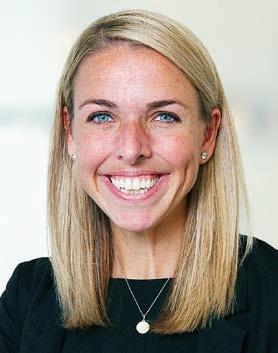

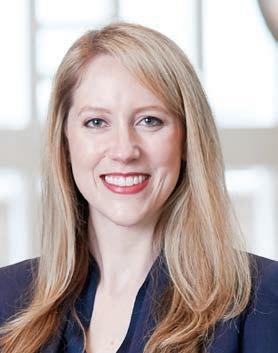
all of which emphasize analytical, technical, communication and interpersonal skills--- the ABL industry offers a lifelong career opportunity for its participants. Additionally, service providers to the ABL industry, such as attorneys, field exam and appraisal firms, also offer diverse opportunities for young professionals to get involved in the ABL world.
When seeking a role within the industry, take the time to understand all the different opportunities available to you. Spend some time with individuals in the industry and get an understanding of what they do, how and why they got to where they are. Be open to change. If something isn’t the right fit for you, don’t be afraid to make a change and find something that works for you. But take that learning with you as you will build on top of that—every experience is meaningful and adds to your professional demeanor. That being said, don’t say no to opportunities and don’t be afraid to step out of your comfort zone. You never know what you are capable of until you try.

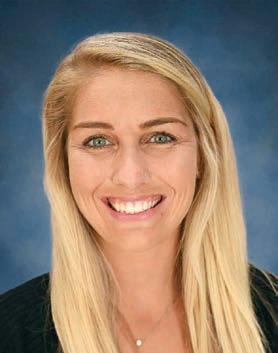
When considering a career, it is important to consider the culture of the industry as well as the organization you are joining. While there are always exceptions to any generalization, throughout my time in the industry, I have found that the ABL industry is like a family, welcoming and inclusive. Like any other industry, experienced industry veterans are an invaluable resource to get an understanding of the culture of various firm and industry participants. When considering the culture of an organization, research the company and ask to meet individuals you will be working with. You will spend a lot of time with the people you work with, and it is important that your values align with the company culture.
Take charge of your own development. Have an openness to continually learn, seek feedback from other team members and go above and beyond in your role. You will learn more and gain a better understanding of potential opportunities to further develop your career.
Developing relationships is an important part of your career. Develop relationships with those around you, even if they are not directly related to your current role. Find a mentor that is more experienced than you can help you with long-term growth in your career.
Overall, the ABL industry welcomes new professionals to its ranks, has a lot to offer and is a dynamic industry in which to spend your career.
Madison Morrow, associate, Parker, Hudson, Rainer & Dobbs
If you are interested in creative problem-solving, collaboration, or a career which encourages a scholarly mindset, secured lending, in particular on the legal side, is an excellent career choice. Each deal presents an opportunity to learn about a different kind of industry, to solve complex and nuanced problems, and to work with interesting and engaged parties (who may have a myriad of competing interests) to achieve a company’s or a lender’s financing goals. With each resolution of an issue in a transaction, you are developing a foundation
that will prepare you for the next challenge that arises, and, eventually, this will turn into expertise. The collaborative nature of secured lending also allows you to build and develop impactful relationships with others in the industry. If these challenges and opportunities appeal to you, then I would recommend a career in secured lending, which I have found to be very rewarding.
Hai Nguyen, executive director, Credit Risk Management, JPMorgan Chase & Co.
For recent grads interested in a fast-paced, dynamic and multifaced industry within financial services and banking, the ABL industry is a perfect fit. In my nearly 20 years in the industry, I can honestly say there has never been a dull moment or lack of valuable growth and learning experiences. The industry and how we view structures, collateral, perfection and transaction dynamics have evolved immensely with each economic cycle. Through growth and contraction, ABL has been at the forefront of every major cycle and has been a meaningful part of some of the most notable transactions. There are also so many different areas within ABL that one can explore – portfolio management and underwriting, operations, field exam, originations, syndications and capital markets. From a personal perspective, I’ve been fortunate to learn from some of the best in the industry and have worked at two excellent firms in the process (GE Capital, JPMorgan) as both a field examiner, account manager and underwriter. The ABL industry has provided me a long, meaningful and rewarding career and I have made it a point to pass on the learnings and knowledge that I have been fortunate to receive from managers, mentors and colleagues onto the next generation of eager industry professionals.
Shelby Pinedo, account executive, Sky Business Credit
You don’t need to have a finance degree to start working in factoring. In fact, I got a hospitality degree and had entirely different dreams. Once I started though, I realized that career wasn’t for me. So, I moved into an office setting. Figure out what you like, and you can apply it to your future roles.
Also, don’t be afraid to try new things or start at the bottom. Little by little you’ll learn the industry and, in time, gain respect and recognition. Take advantage of conferences and classes. There are so many opportunities, especially in this industry, to grow your career at a company and within the industry as a whole.
Finally, small companies can give big opportunities to learn more about the industry, which will open you up to new career opportunities. You’ll also likely get a closer look behind-thescenes, which can greatly contribute to your personal and professional growth.
Eileen Wubbe is senior editor of The Secured Lender.
BY EILEEN WUBBE
This
column highlights the hard work and dedication of SFNet’s Committee volunteers. Here we speak with Ian Fredericks, chief executive officer, Hilco Consumer - Retail, and chair of SFNet’s Technology and Innovation Task Force, a subcommittee of SFNet’s Data Committee.
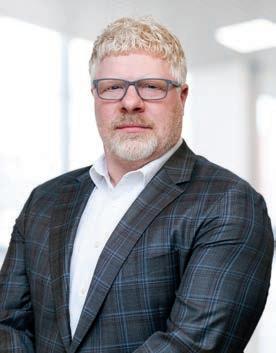
IAN FREDERICKS
Hilco Consumer - Retail
The Technology and Innovation Task Force aims to leverage best practices in lending data, analytics and technology while raising the level of capability of the industry over the near and long term.
This interview’s first draft was generated with the help of ChatGPT.
TSL: Please provide our readers with some background about your career and how you got your start in the industry.
Fredericks: I started as and was trained as a corporate bankruptcy lawyer. I was doing corporate bankruptcies for seven to eight years before I joined Hilco. So, I learned a lot that I have since been able to apply during my career. I learned how and why companies fail, learned about retail, lending, and assetbased lending in particular, as it is a big part of retail lending.
When I came to Hilco, I started in the general counsel’s office. So, I was the assistant general counsel, and I was responsible for structuring transactions. I really worked on learning the business side while I was doing that because I felt that to be the most effective lawyer, I needed to understand the business. If I understood how the business works, I could structure and document transactions more effectively.
After doing that for about four years, the retail consumer group offered me an opportunity to join the business in a half legal, half business role. About 18 months after that, they told me to push the legal
work back up to the holding company to the person who had replaced me, and they wanted me to just focus on the business.
One of the areas for growth that I saw was in the lending business, expanding our wholesale business, and developing some technology. Over the last seven years, I’ve focused on growing adjacent businesses and leveraging that asset value knowledge that we have, along with our operational execution, into diversifying the business.
About two years ago, ironically, my wife was out with friends on a Friday night, and I chose to spend my night surfing LinkedIn. I felt like we had a tremendous amount of data at Hilco, but we just were not using it effectively. It was unstructured, and it was controlled by a few individuals. If you wanted access to it, you had to go through them and rely on what they provided.
I was trying to figure out how to get better with data, how to use algorithms or artificial intelligence to interpret the data better. One of the things that popped up on my feed was a program at Harvard called the Harvard Business Analytics program. Unlike other data programs I had looked at, this one was focused on senior executives and how to implement organizational change to adopt a data-driven focus. It wasn’t for the people crunching the data and building algorithms, but for leadership on how to implement and utilize data, new technology and analytics.
So, when I saw that, I thought, “This is it.” I hadn’t come across anything like it before. I looked at Harvard’s program, and it was the only one offering this focus at that time, around the fall of 2021. I applied, completed my essay at the last minute, got accepted, and completed the 18-month program from January 2022 to June 2023.
That’s the story of how I got to where I am now.
This leads into getting involved in SFNet’s Technology and Innovation Task Force, which is new. Can you explain more about that? How did you get involved? Why was it created? Sure. I’m in my second year of being on the board of the Secured Finance Network. I was an At-Large member of SFNet’s Executive Committee, which means I was not tasked with any one committee but was a resource for special projects.
I had a passion for data, so I leaned more into that area. Around the fall last year, we had a data committee focusing on data around the ABL industry. It collected information from lenders, anonymized it, and produced reports on the ABL lending industry, including market size, distress areas, market behavior, and lender sentiment. However, it did not focus on technology or how technology and AI could improve the industry.
So, SFNet CEO Rich Gumbrecht reached out to me, recognizing the rise of AI, like ChatGPT. He wanted to explore the potential of AI in our industry and proposed a task force,
which became a subcommittee of the data committee. Our main goals are to understand and educate ourselves on the technologies that can help secured lenders do their jobs more efficiently and to explore how artificial intelligence can improve the industry.
The purpose of this task force is dual: to find technology that can make people’s lives better and more efficient and to determine how AI can benefit the secured lending community. We meet monthly, depending on availability.
How do you go about finding out this information? Are there any tools you have come across that you find useful for this industry?
The first thing we did was survey the members to understand where they thought AI could be useful or where they had concerns. We analyzed the results to focus our efforts on technology or AI that the membership would find useful.
Reliability is a huge concern when making big business decisions with AI. You want to know that the tools are giving you reliable feedback and information. So, we aim to start small, solve one problem, and test and learn from that. Starting small helps you avoid wasting time and resources on a direction that may not yield the expected results. It also helps with adoption, as people are generally wary of change and technology.
For example, I drive a Tesla with autopilot, but I rarely use it because I’m more nervous about whether the computer will get it right. People feel the same way with other AI. If you try to implement something too big without building trust, it won’t be adopted. But if you start small, show that it works and makes their life easier, and it is easy to validate, they’re more likely to adopt it and build trust.
What are some goals and plans for the Task Force? Do you have a vision for next year?
One of the things we’re looking to do is having an industry expert speak at SFNet’s 80th Annual Convention in Houston in November. We’re planning a panel, some webinars, and getting information out to SFNet members. We even used ChatGPT to draft a results paper from our survey, which we then finetuned. This shows how AI can be used as a tool.
AI should be used as a resource, with humans overseeing and refining the output. It’s still in its infancy, and for the foreseeable future, it will be a tool that requires human judgment and oversight. Predictive text in emails or phones is an example; it helps but isn’t always right. The human brain is powerful, and we need human judgment, which technology can’t yet provide.
Switching gears for a moment, you recently were named CEO of Hilco Consumer – Retail. Do you have any goals for the new role you’d like to mention?
It’s very humbling, and I’m aware of the responsibility I have for myself, my family, my team, and their families. There’s no one else to blame if things don’t go well. I have big ideas for the consumer retail industry, from healthy companies to the most distressed, offering a broad range of solutions. I’m focusing on technology and big changes in retail operations, leveraging AI to improve store performance. Retail sales still largely happen in stores, and there’s been a lack of investment there. My goal is to help bring the retail industry back to its glory days, with a new model leveraging technology.
When you’re not busy at Hilco or with SFNet, what can you be found doing?
I love spending time with my family, especially outdoors. We do a lot of whitewater rafting and activities in national parks. I also love reading, particularly books related to business. In fact, while I was in South Carolina with my wife this summer, I read two books -- one focused on retail employees and empowering them to achieve operational excellence and another on marketing.
Eileen Wubbe is senior editor of The Secured Lender.
Raffi Azadian, Change Capital
Alister Bazaz, Bank of America
Andrew Bertolina, XEN Platforms
Robert W. Bowles, Bluewater Transaction Advisors
Joe Creel, Truist
Rosanne Doyle, Solifi
Steven Dumont, White Oak Commercial Finance, LLC
Ian Fredericks, Hilco Global
Nancy Lee, ABLSoft Inc.
Alexander McKeown, Hilco Global
JR Thompson, Eclipse Business Capital
Nancy Lee, ABL Soft:
Why did you decide to join the AI Task Force?
AI has exploded into the mainstream in recent years, especially with the release of ChatGPT to the general public. People are now gaining a clearer understanding of how it can be applied to day-to-day business activities and looking for ways to leverage this powerful technology. I’m excited to see that SFNET has taken the initiative to create this task force to educate and empower community members in utilizing AI as it continues to evolve. I’m thrilled to be part of the team and hope to help guide and support its activities. Recognizing that AI’s impact will be significant and transformative, not only for businesses, but for society as a whole, it’s good to be ahead of the curve.
What are you enjoying about being on the Committee so far?
What I like most is being surrounded by a group of professionals from all across the country who are extremely knowledgeable about ABL and factoring yet truly passionate in helping others in the secured finance community. While I’ve been in the ABL software space for close to 20 years now, I’m always learning something new from this group. The talent, depth of knowledge and years of experience of this team is truly exceptional.
Joe Creel, Truist
What are you enjoying about being on the Committee so far?
It’s been a good way to connect with other secured lending professionals and to learn more about the latest tech/AI developments and how they might impact our profession. The Committee members come from a variety of professional backgrounds, so there’s no shortage of interesting perspectives.
What would you like to see this Committee accomplish in the coming years?
It would be great to see the committee identify and research the latest software and technology with practical applications in secured lending.
BY EILEEN WUBBE
Edge Capital Lending, f/k/a Context Business Lending, has come a long way since its inception in 2013. Founded by a large single-family office outside of Philadelphia, the company began by acquiring a small book of loans from a failing thrift in the area.
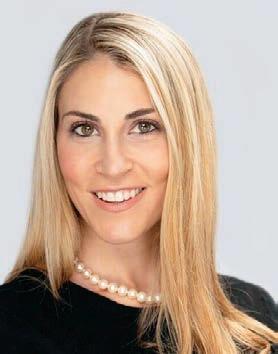
MEREDITH CARTER Edge Capital Lending
In its early years, Edge Capital operated with a small team and a credit box smaller than that of a regulated bank. Operations in the beginning were manual, with borrowing bases calculated using calculators, and the results stapled to the borrowing bases for approval.
“In 2017, the family office brought me on to evaluate the company’s viability and, if positive, create a growth plan,” explained Meredith Carter, president and CEO, Edge Capital Lending. “Leveraging the patient capital of the family office, our first year in reboot mode was dedicated to establishing a solid foundation without any pressure to add new loans. Together we identified significant potential in the ABL space, noting the general stagnation of the industry for many decades. We saw an opportunity to introduce new perspectives, apply technology and challenge long-held industry beliefs to rethink the standard approach to risk and improve efficiencies.”
With newfound focus and commitment, Edge has experienced substantial growth over the past six years. Key early hires, including Stephen Butler, now its chief operating officer and Jason King, controller, have played a big part in Edge’s success and remain integral to the team today.
In the fall of 2022 Context Business Lending rebranded as Edge Capital Lending, driven by several key factors. Initially, Edge Capital Lending was under the umbrella of Context Capital Partners (“CCP”) (now Stone Ridge Capital Partners), a seeding firm focused on alternative investment strategies in the hedge fund, liquid alternatives mutual fund, and private equity fund markets. Last year, the family office that is the primary investor in both CCP and Edge decided to invest directly in Edge rather than through CCP.
“This shift allowed for a more focused and direct relationship with the family office, and we decided that a new brand would celebrate the milestone of our graduation to being a direct investment,” Carter said. “The Edge Capital
Lending name was chosen to authentically represent our mission and the value we bring to our borrowers. The concept of “Edge” is deeply rooted in our business.”
As the company grew, it reached a point where it needed an identity that reflected its own values and mission, independent of its origins under Context Capital Partners. The rebranding symbolized this growth and its newfound independence.
The name Edge Capital Lending was also selected with future growth in mind. The brand “Edge Capital” allows for potential expansion into other verticals beyond lending, ensuring that the name remains relevant and all-encompassing as the company evolves.
What makes Edge different from other players in the ABL Industry?
In the trading world, a background shared by all of Edge’s Board members, “edge” refers to any technique, observation, or approach that creates an advantage over others.
“Edge embodies this concept by offering more availability and flexible solutions,” Carter said. “We aim to distinguish ourselves in the market through an objective approach to ABL and the capitalizing on the creativity made possible by the operational freedom afforded to us by an entrepreneurial family office backer. Unlike traditional financial institutions, Edge Capital Lending is not bound by the layers of approvals, one-size-fits-all limitations, unbendable caps, industry prohibitions, and stringent regulations that constrain most other lenders. This independence, along with the mindset of our team to truth-seek, think rationally and spend time harnessing the power of good decision hygiene, is at the heart of our competitive advantage.”
“‘Because it has always been done that way’ is never an acceptable answer to me or our management team,” Carter continued.
“Sometimes ABL industry rules and norms are there for still-relevant, rational risk-related reasons. But the longer I do this the more I see that often there are better ways to do things that companies won’t ever take time to discover because of personal biases or institutional disincentives to institute change.”
Edge Capital Lending’s competitive edge allows it to create tailored financial solutions to meet the specific needs of each borrower and lend to untraditional industries. Its flexibility extends to industries that are often overlooked or underserved by conventional finance due to perceived risks, social impact mandates or regulatory constraints. Edge Capital Lending accepts various forms of collateral, providing additional options and resources for borrowers.
Edge’s company culture is defined by a set of core principles, which is referred to as the Edge Team Non-Negotiables. They are the lenses through which all decisions at Edge are made, do not change with time or strategy and cannot be compromised. These six Non-Negotiables are published on Edge’s website for transparency with prospective borrowers and hires about what the company stands for. Employees also read and discuss books together focused on furthering these principles and take turns leading a group discussion of the application of the chapters’ lessons to practices at Edge.
“All ‘Edgesters’ share commitments to each other and to our borrowers, and we all strive to ensure our thoughts and actions are in
furtherance of these,” Carter said.
These commitments include: integrity to great customer service and to being solutions-oriented with our borrowers; commitment to truth seeking, thinking probabilistically and learning from data; a commitment to innovation, i.e. solving borrower problems in untraditional ways and bringing novel technology to specialty finance lending; a commitment to serving the “white spaces” in the market, helping companies with profiles that others can’t lend to or are afraid to; a commitment to empowering each other, and respecting each team member for their unique skills and backgrounds and a commitment to being open to change, and to changing (evolving) personally.
Edge has a flat structure, and team members from every level of experience and group within the organization are encouraged to openly share their opinions and ideas and to challenge the conclusions of those around them. “Sometimes the least informed people on a given topic have the most objective views,” Carter added.
Before hiring a new ‘Edgester,’ prospects are asked to take a DISC assessment to determine their natural communication style and workplace motivators to see if they are a fit with that of the existing team and its core values.
“I think that team members should be in positions where they can play to their strengths and communicate their blind spots so that supportive team members can pick up the ball accordingly and without judgment,” Carter explained. “Being a permanently remote team with 31 team members across 20 states, trust is key and we foster norms of regular video calls with each, impromptu or planned.”
Carter’s leadership style includes several often-repeated quotes, including “We are always in Beta,” meaning constantly in improvement mode and “Be curious before furious,” meaning giving people the benefit of the doubt and asking questions before forming conclusions and “Someone is going to disrupt this. Why not us?” to prompt problem solving on the enhanced application of AI, analytics and other efficiency tools to the ABL business.
Looking ahead, Edge plans to add complimentary business lines and global institutional referral partners. The company is also planning for the complete integration of all of its systems and information through a hub and spoke model, which will enable further data analytics and data-driven decision making. Edge’s proprietary AI interface, where all company files and information for insights can be queried is also on the horizon as is its ever-present pulse on the market to identify new niches and opportunities to provide capital to underserved sectors.
With Carter’s leadership and the company’s commitment to innovation and flexibility, Edge Capital Lending is well-positioned to continue its growth and impact in the ABL industry.
Eileen Wubbe is senior editor of The Secured Lender.
BY EILEEN WUBBE
In this column, SFNet focuses on members’ hobbies outside of work. In this issue we explore book clubs.
The Bow Tie Book Club started in 2009, but its co-founders, Gil Backenroth, senior counsel, Thompson Coburn, and Bob Grbic, senior advisor, White Oak Commercial Finance, have a friendship that goes back to the early 1990s.
“Early in my career, Gil was one of the bankruptcy counsels that I used in New York,” Grbic explained. “A few times a year, we would get together to talk about books that we read. We both have a love of history, so we would alternate sending books to each other and discussing them over a lunch or dinner. I wouldn’t say we agreed all the time, but we are like-minded in our opinions.”
As the years went on, Backenroth, who is also a religious scholar and has written two books in Hebrew, and Grbic, wanted to expand the club for more diversity of opinions on topics and to broaden their readings. They invited Paul Petrov, senior managing director and founding partner of PAS Group Ltd., LLC, to join. At the time, Petrov lived in New York and had an industry consulting practice catering to borrowers selling into retail.
“The book club is a meaningful part of my life, not only for the camaraderie of the group, but also for the intellectual challenge of the various history books that we read,” Petrov said. “As a qualitative guy, with a BS in engineering and an MBA in finance, history was not that important to me as I progressed through life, until I joined the club. The club has exposed me to a most wonderful side of human existence with a group jointly seeking meaning.”
J. Michael Stanley, who was the head of factoring at Rosenthal & Rosenthal at the time, eventually joined, followed by Walter Schuppe, who was SVP/managing director, Special Assets Group, at Pacific Western Bank. Jeanne Siegel, partner at Thompson Coburn, and Charles Scharf, who was a managing director at White Oak Commercial Finance, then joined. The book club also has had several at-large members over the years who occasionally join, in addition to a few authors. Bryan Corsini, who worked with Schuppe, is the latest member to join.
“When I joined the book club, I had never voluntarily read a non-fiction book,” Siegel admitted. “I started out as a guest and the first book I read was The Real Fidel Castro. The next was Absolute Monarchs. I was learning stuff! So, I became an official member and tried to bring a feminist influence to the group. My first pick was The Girls of Atomic City: The Untold Story of the Women Who Helped Win WWII. That was the summer of 2013 and in the last 11 years I have gained a lot of knowledge, but more precious are the friendships I’ve developed with my fellow members.”
Book club members take turns selecting books and the topics often meld together. They have read books on the Civil War, World War I and Genghis Khan and 170 titles so far. Topics often meld together.
“With Genghis Kahn and the Making of the Modern




















World by Jack Weatherford you realize how influential Genghis and his dynasty were in setting the stage for the making of the modern world.” Grbic explained. “We’ve also read about the Crimean War, and the fall of the Otterman Empire, which lead to World War I. When you dig into history, from a number of different viewpoints, things start to click together.”
The book club would meet once a month at a midtown Manhattan restaurant on a Monday evening to discuss the book. During the pandemic, the book club continued over Zoom, and today it is hybrid. The club will get together for a virtual meeting at a member’s office to allow those who can’t attend in person to take part in the discussion, and then a dinner out follows.
“I particularly enjoy the evenings when our discussions become somewhat heated, and the restaurant politely asks that we quiet down,” Petrov added.
The discussion usually centers around how well the book is written and researched and if people learned something new. It will sometimes morph into current events and how the material relates to other books the club has read.
great way to get together and have a conversation. Hopefully, we’ll have more interest in joining the book club from this article. There’s room for a few more.”
Melanie Guzman, senior account executive at nFusion Capital, is a member of the Empowered Babes Book Club. This book club was born from an idea to connect women from different backgrounds and foster a sense of community and friendship as well as to create more networking opportunities and empower women.
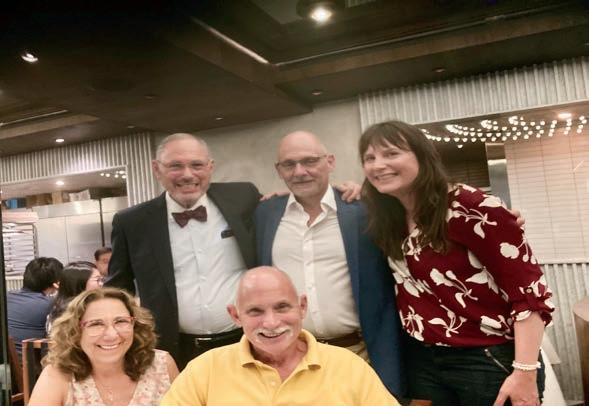
The Bow Tie Book Club’s July dinner in Manhattan. Left to right, back row: Gil Backenroth, Bob Grbic, SFNet’s Eileen Wubbe, Front row: Jeanne Siegel and Walter Schuppe. The book selection was AgeofRevolutions:ProgressandBacklash from 1600 to the Present by Fareed Zakaria.
The reason behind the book club’s name is two-fold. Co-founder Gil Backenroth always wears a bow tie, and the club’s dinners are often held in Times Square, which, due to Broadway running diagonally and crossing the vertical grid of Manhattan’s streets, forms a bow tie shape.
As of press time, the club is reading King: A Life, by Jonathan Eig, featuring newly released material under the Freedom of Information Act and in-depth interviews with people who knew Martin Luther King.
Books are typically less than 500 pages, excluding footnotes, and are almost always non-fiction. This gives people enough time to read, or listen via an audiobook, to meet monthly.
“As Churchill said, ‘History is written by the victors’ or anyone with access to the internet.” Grbic added. “History is often not complete or objective. One of the drivers of the book club is to read books that encompass many different viewpoints. Often one book’s content flows into a new reading.
“The Bow Tie Book Club is not a clandestine meeting. We’ll discuss the book, but we’ll also talk about business and what’s going on with peoples’ families and their kids since we’re all friends as well. It is a
The book club reads one book per month and meets at a restaurant in Houston. “We like to try new concept restaurants or small businesses in the area to get their name out or post online about the experience,” Guzman explained. “We have also tried to do some “themed” months and those are typically hosted at a member’s house. We did a Galentine’s theme for February and are planning a Halloween theme for October. If we do a theme for a certain month, the book choice will coincide with the theme of that month. For Halloween it will be a horror or thriller novel, for example.”
The club started out with a list of questions to discuss, but as time progressed, it became less formal and is now an open forum for people to ask questions or comment on the books.
Guzman’s favorite books so far have been, The Mountain is You: Transforming Self-Sabotage into Self Mastery by Brianna West and Born to Shine: Do Good, Find Your Joy, and Build a Life You Love by Kendra Scott.
“The memoir by Kendra Scott was very inspirational,” Guzman said. “She personally narrated the audiobook, which was biographical. She was transparent and vulnerable about her failures, successes, and family life. I personally loved how candidly she spoke about being a fulltime working mom as a business owner and the challenges presented in that dynamic. The Mountain is You really encouraged self-reflection and building self-awareness. It was very therapeutic as the writer’s approach is compassionate and understanding. She provides practical actionable steps that the reader can implement in their daily lives to master self-growth and resilience.”






When you contribute to the Secured Finance Foundation, you help fund important initiatives bene tting secured lenders worldwide.
Professional Development through online and on-demand education and leadership programs
Industry Resources such as annual data studies, market sizing reports and the Compendium of Secured Finance Law
NextGen support via mentoring, guest lectures and our 40 Under 40 Awards
Support our Corporate Fundraising Campaign today.


New members join mainly by word of mouth from someone who is already a member of the group. This year, they added two extra members from the start of the year, to replace people who could no longer commit.
“Before adding many members, we wanted to see how successful and consistent the small group could be,” Guzman explained.
Members include a business banker, a business admin, several insurance agents/brokers, a real estate agent, a credit repair/ apartment approval service, and an HVAC service company owner.
“I think relationships and networking are a valuable part of the book club. It provides a regular opportunity to connect, share experiences and support each other. We tend to discuss upcoming networking events that we know of and invite each other to those events as a way of opening our networks.”
The Project Themis Book Club
Republic Business Credit (RBC) started its book club, The Project Themis Book Club, in June 2020 as a means for RBC to create a safe space to examine the unconscious biases that may have been limiting the personal growth of its employees and limiting the professional growth of the business.
mandates of the club, so our discussion was also very open.”
For those organizations looking to start a book club, Louis advised to always have a moderator to keep the discussion moving while allowing each participant to have a voice and try to gather a diverse group of participants.
“Our book club was effective because our group honored the agreed-upon mandates of vulnerability, honesty, non-judgment, and full participation,” Louis said. “Not being able to set aside time to continue the book club was the only thing that did not work. The book club was an avenue to propel the mission of the project, and our team is now actively working to effect the change we determined was necessary. We hope to revive the book club in the future. While this book club was very specific, any book club is a great way to appreciate and respect differing perspectives.”

The Empowered Babes Book Club meeting from July in Houston, TX.
“Our mission was to explore unconscious bias, plan facilitated discussion forums, implement full inclusive procedures in all aspects of the business, and collaborate on action to effect change,” explained Danika Louis, SVP, portfolio manager, Republic Business Credit. “The book club was started to facilitate the mission.”
“As the United States began to focus on the murders of Ahmaud Arbery, Breonna Taylor, and George Floyd, the concept of fair treatment of all humans was a topic being discussed around the dinner table and in the office,” Louis said. “The emotional weight of the societal shift warranted the creation of an avenue to ensure RBC and its employees were performing a personal and professional evaluation to identify ways to appreciate and benefit from a more diverse, equitable, and inclusive business.”
The Project Themis Book Club read What If? by Steve L. Robbins Ph.D, and The Four Stage of Psychological Safety by Timothy R Clark. They also watched the Nate Parker film, American Skin. Discussions were held over Zoom each month for 1.5-two hours for each meeting.
“The What If? book was excellent because it has a set of thought questions at the end of each chapter,” Louis added. “However, vulnerability, honesty, non-judgment, and full participation were
Do you have an interesting hobby to share? Contact ewubbe@sfnet. com.
Eileen Wubbe is senior editor of The Secured Lender.


















When enough industrial pipe to run from Atlanta to DC was le unused from the Atlantic Coast Pipeline project, ARS Global turned to Hilco for a sizable bridge loan to acquire those assets and get the deal flowing fast. With timing and certainty of close critical, Hilco’s e orts enabled ARS to capitalize on a unique market opportunity. Find out how our asset valuation, underwriting and capital deployment solutions can assist your organization with its next big deal. Contact Gary Epstein at 847.418.2712 or gepstein@hilcoglobal.com.



